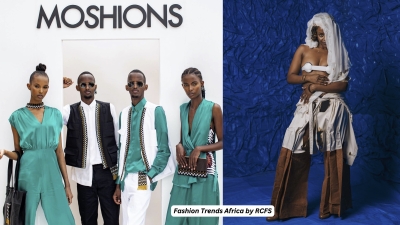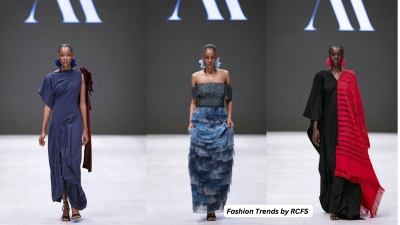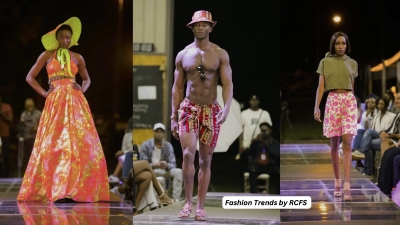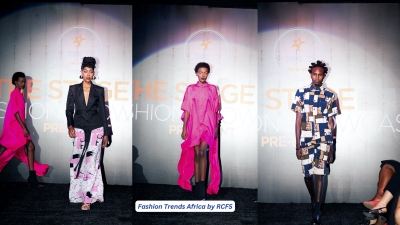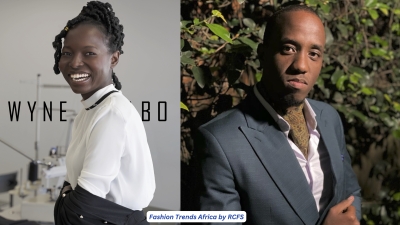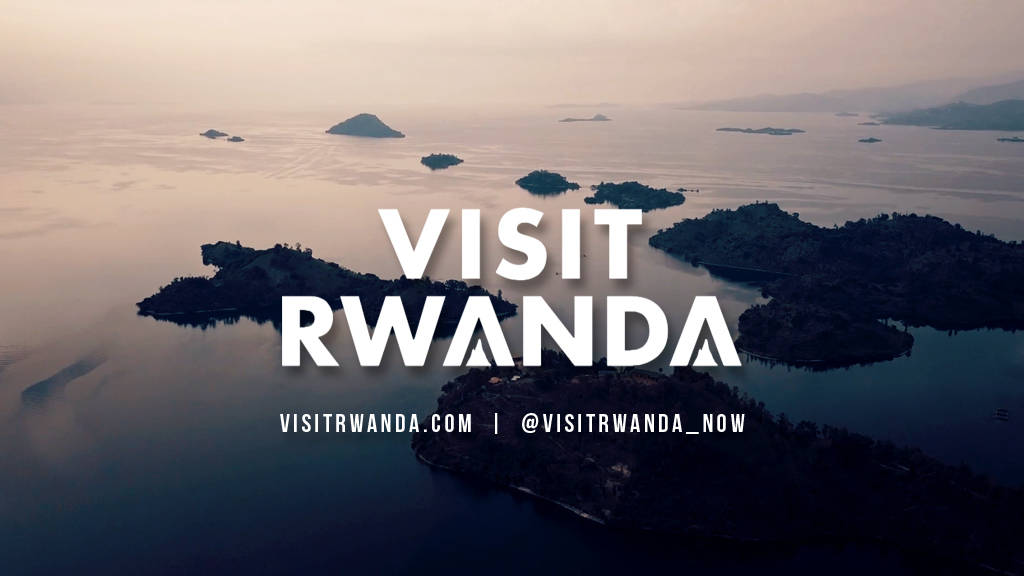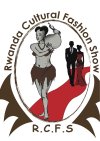
RCFS
Kwanda Season 1 and Moshions: Inzozi Fashion Experience 2024 in the Heart of the Forest
Across Africa, established fashion designers and brands are pushing creative boundaries like never before. From crafting unique garments to setting up innovative studios, organizing captivating photoshoots, and staging self-produced fashion shows to promote new collections, the continent's fashion scene is thriving with innovation.
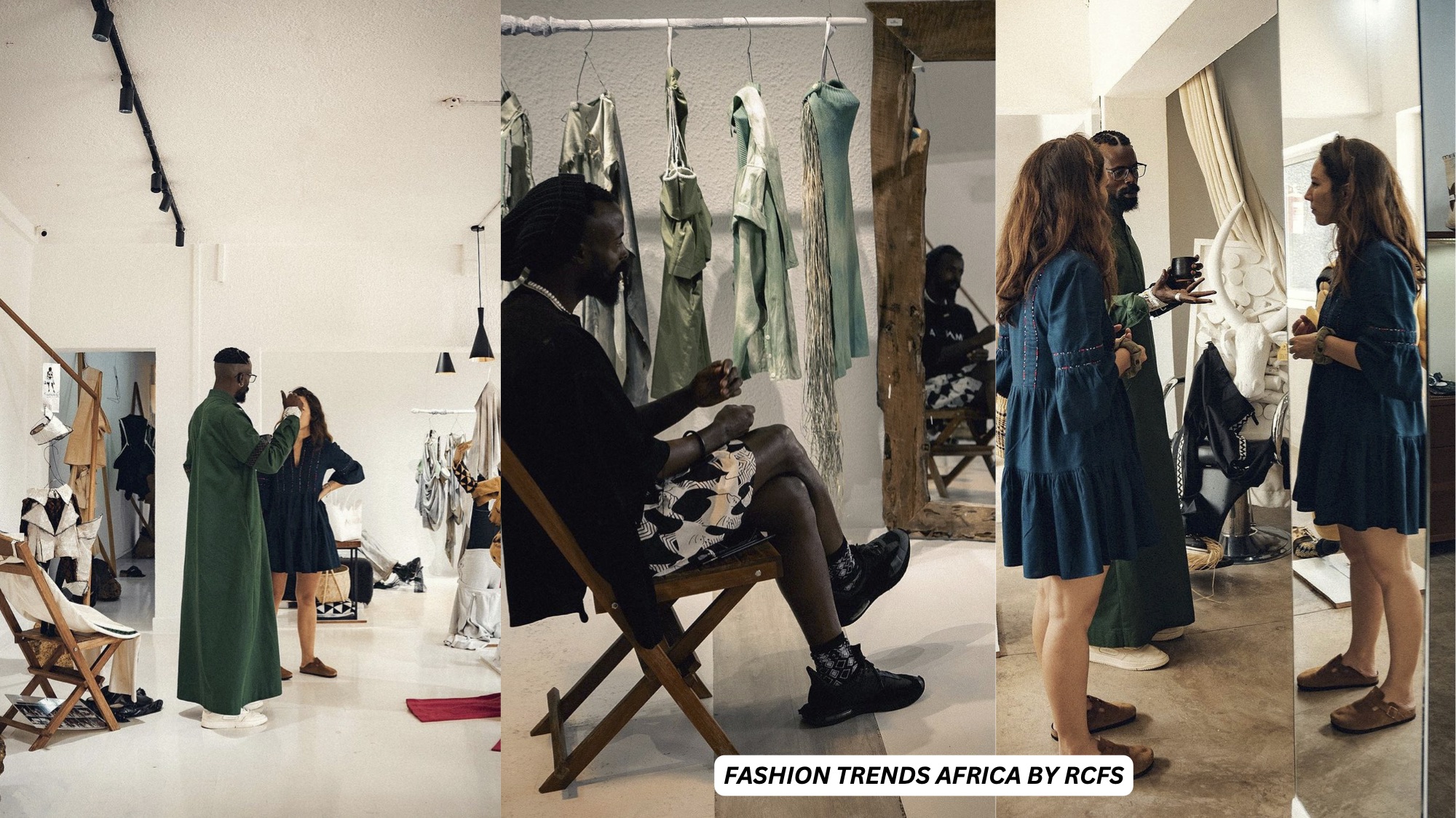 Inside Moshions' shop in Kigali [Photo Credit: KS1]
Inside Moshions' shop in Kigali [Photo Credit: KS1]
In Rwanda, Moshions stands out as a prime example of this creative renaissance. The brand has garnered attention not only for its collections but also for its distinctive presentation style, particularly in organizing fashion shows. While it typically takes years for an emerging designer to style a country's first family, Moshions' founder, Turahirwa Moses, achieved this feat relatively quickly through creativity and hard work.
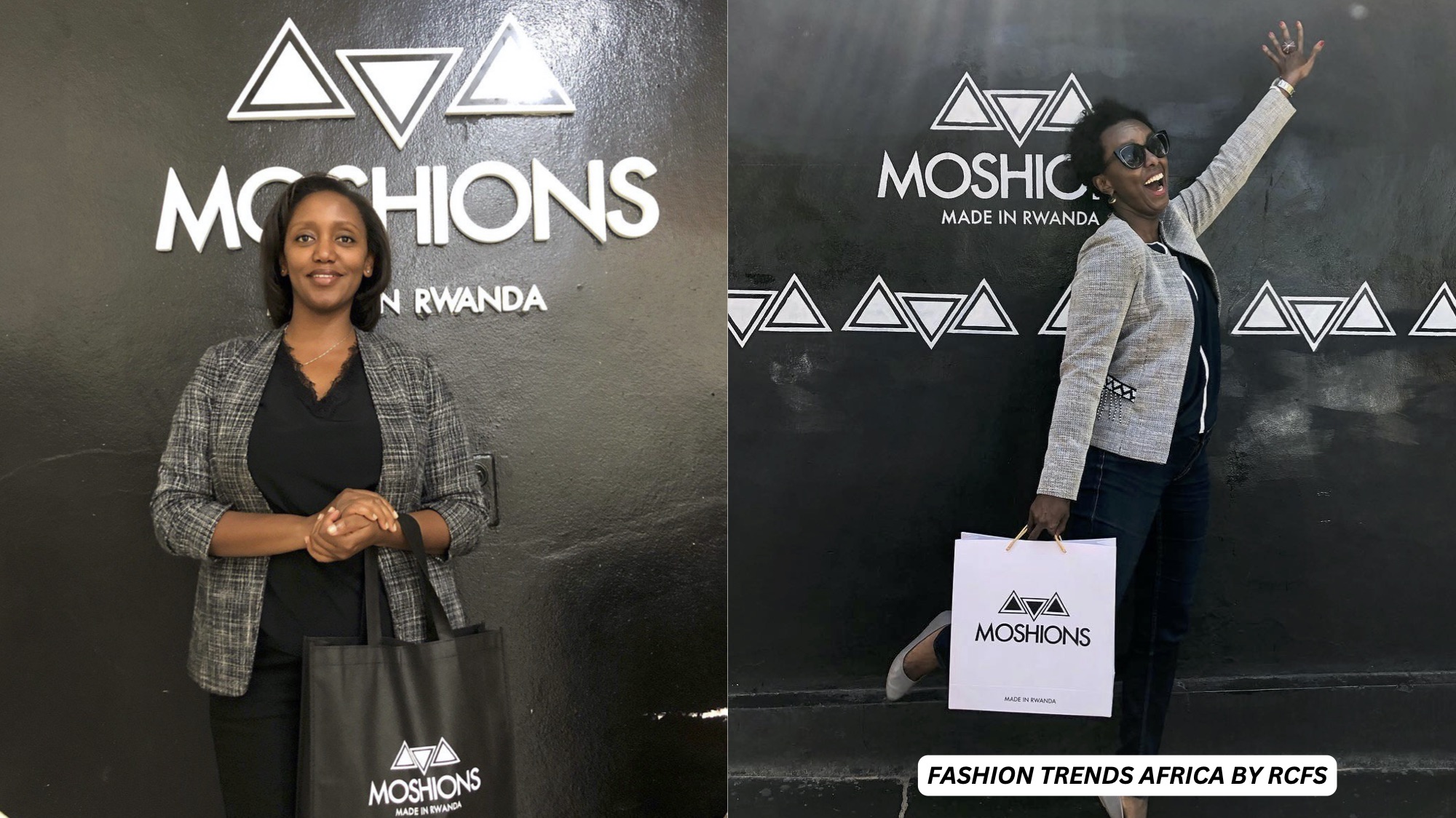 The brand Moshions is well known in Rwanda and many people buy from here including government officials [Photo Credit: KS1]
The brand Moshions is well known in Rwanda and many people buy from here including government officials [Photo Credit: KS1]
To understand the story better, it's crucial to distinguish between Moshions and Kwanda Season 1. Moshions is the brand name of the company, while Kwanda Season 1 is a concept created by the designer behind the brand, Turahirwa Moses.
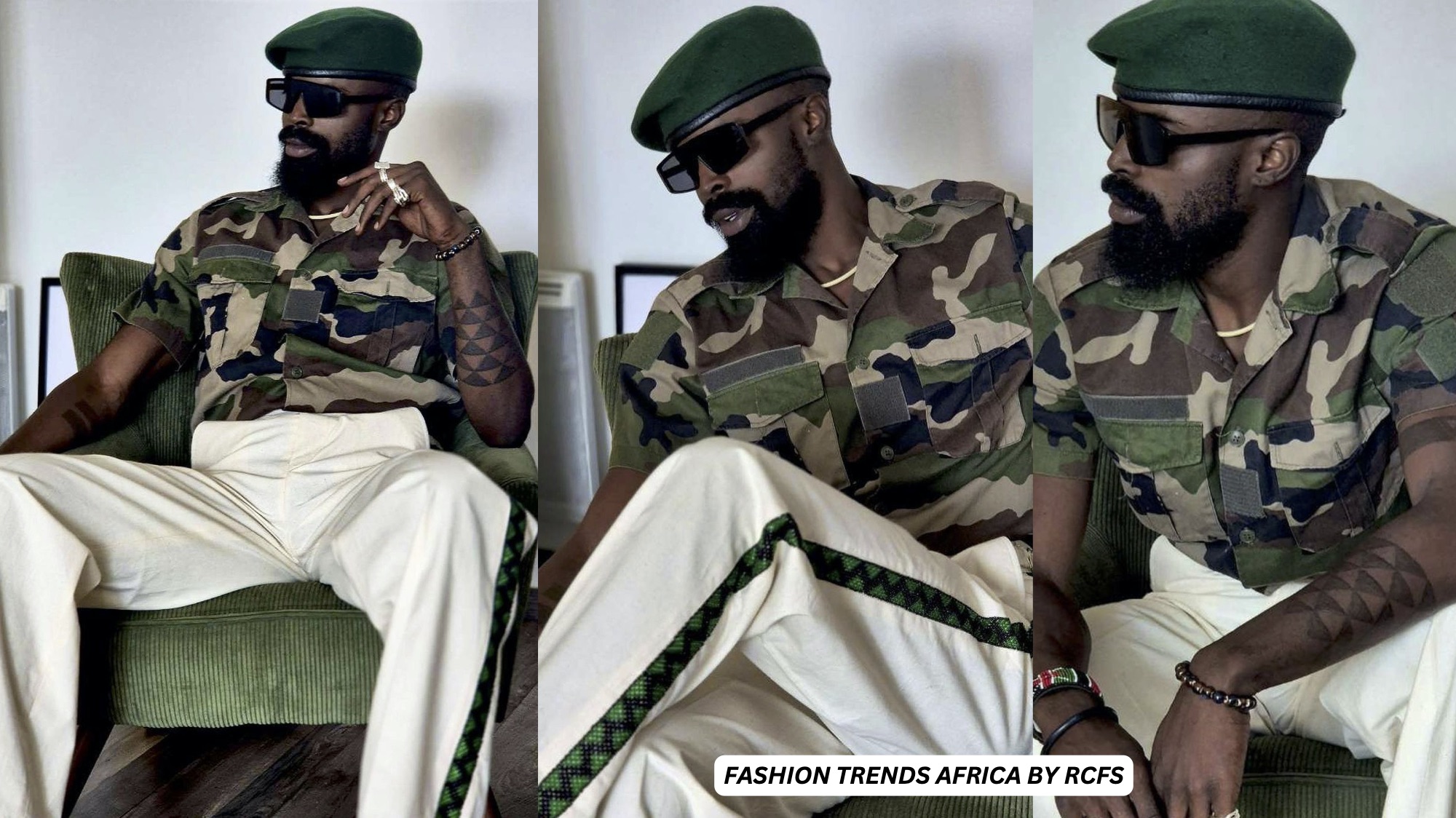 Moses Turahirwa founder and Creative Designer at Moshions [Photo Credit" KS1]
Moses Turahirwa founder and Creative Designer at Moshions [Photo Credit" KS1]
ALSO READ: Moshions in Italy: A Journey of Self-Discovery
The emergence of the Kwanda Season 1 concept generated significant buzz in Rwanda, as Turahirwa was already well-known across various social strata. However, this new persona led many to question the relationship between Kwanda and Turahirwa's identity.
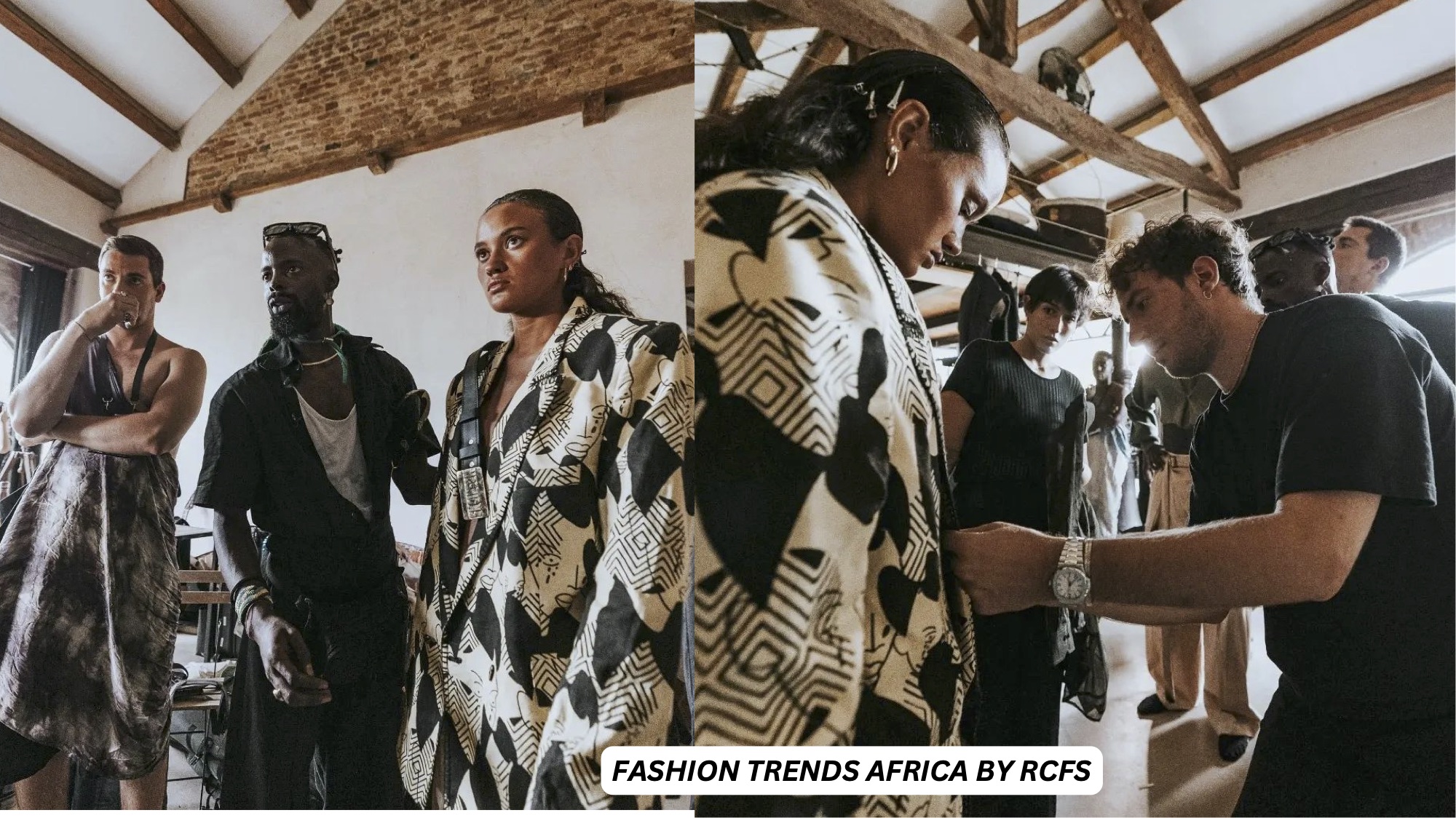 In the photo second from left is Mr. Turahirwa in backstage during the preparation of the Inzozi Fashion Experience 2024 in Italy [Photo Credit: KS1]
In the photo second from left is Mr. Turahirwa in backstage during the preparation of the Inzozi Fashion Experience 2024 in Italy [Photo Credit: KS1]
Turahirwa himself narrated the origin of Kwanda Season 1 in a film: "Let's focus, it's time to start observing again. What are we looking for? I looked at the past and got inspired. I looked at nature, and it embraced me. I looked at the future and saw myself. I am the past, I am nature, I am the future. The new era has finally arrived, Kwanda Season 1."
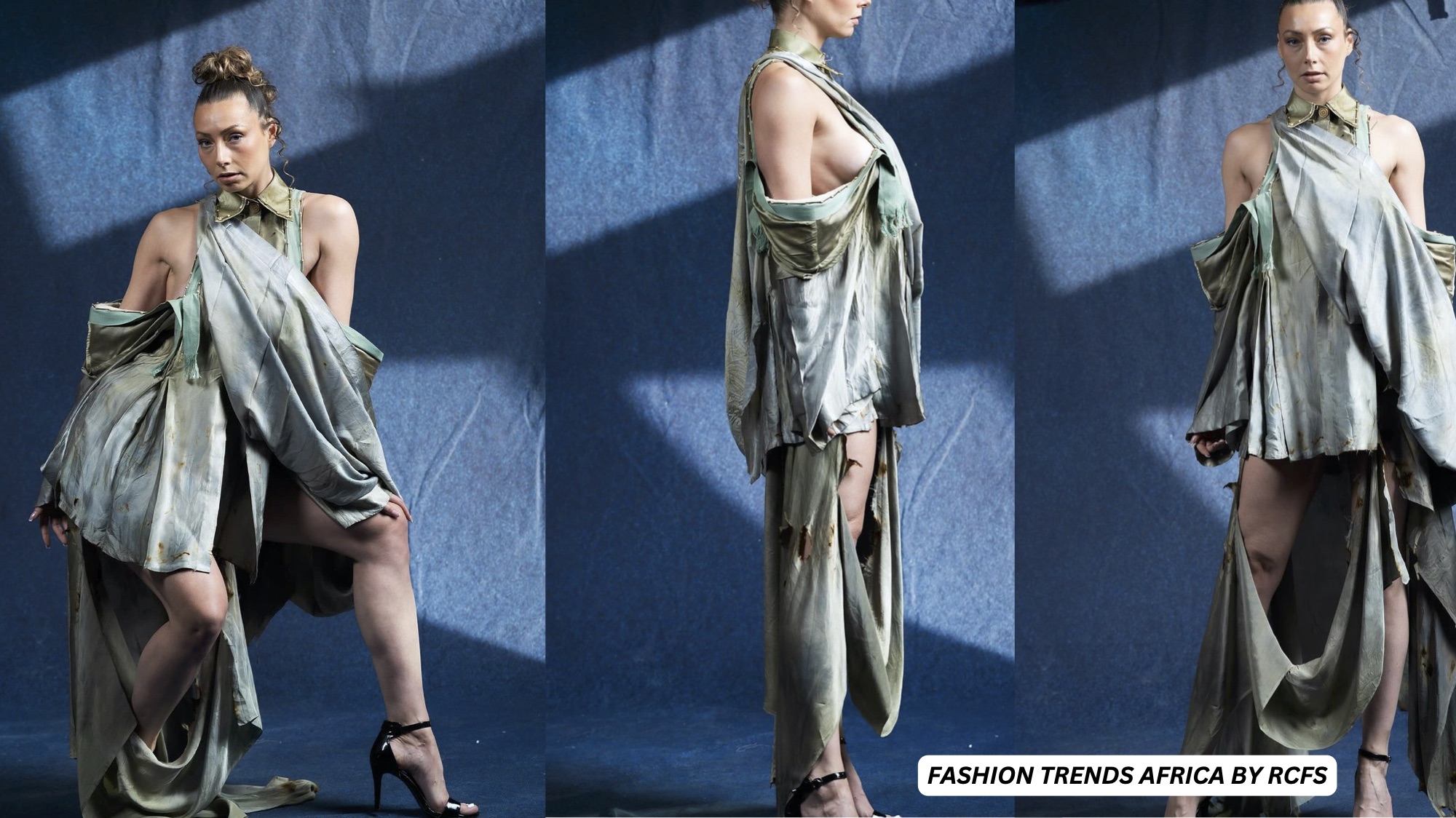 2024 Collection made by Moshins [Photo Credit: KS1]
2024 Collection made by Moshins [Photo Credit: KS1]
During this period, Turahirwa faced public scrutiny when videos surfaced suggesting he had been sexually assaulted in Italy. In an interview with local media in Kigali, he addressed the incident, confirming the assault. Additionally, Turahirwa was arrested on charges of altering his sex designation from "Male" to "Female" in his Rwandan passport and for alleged use of marijuana, which is illegal in Rwanda.
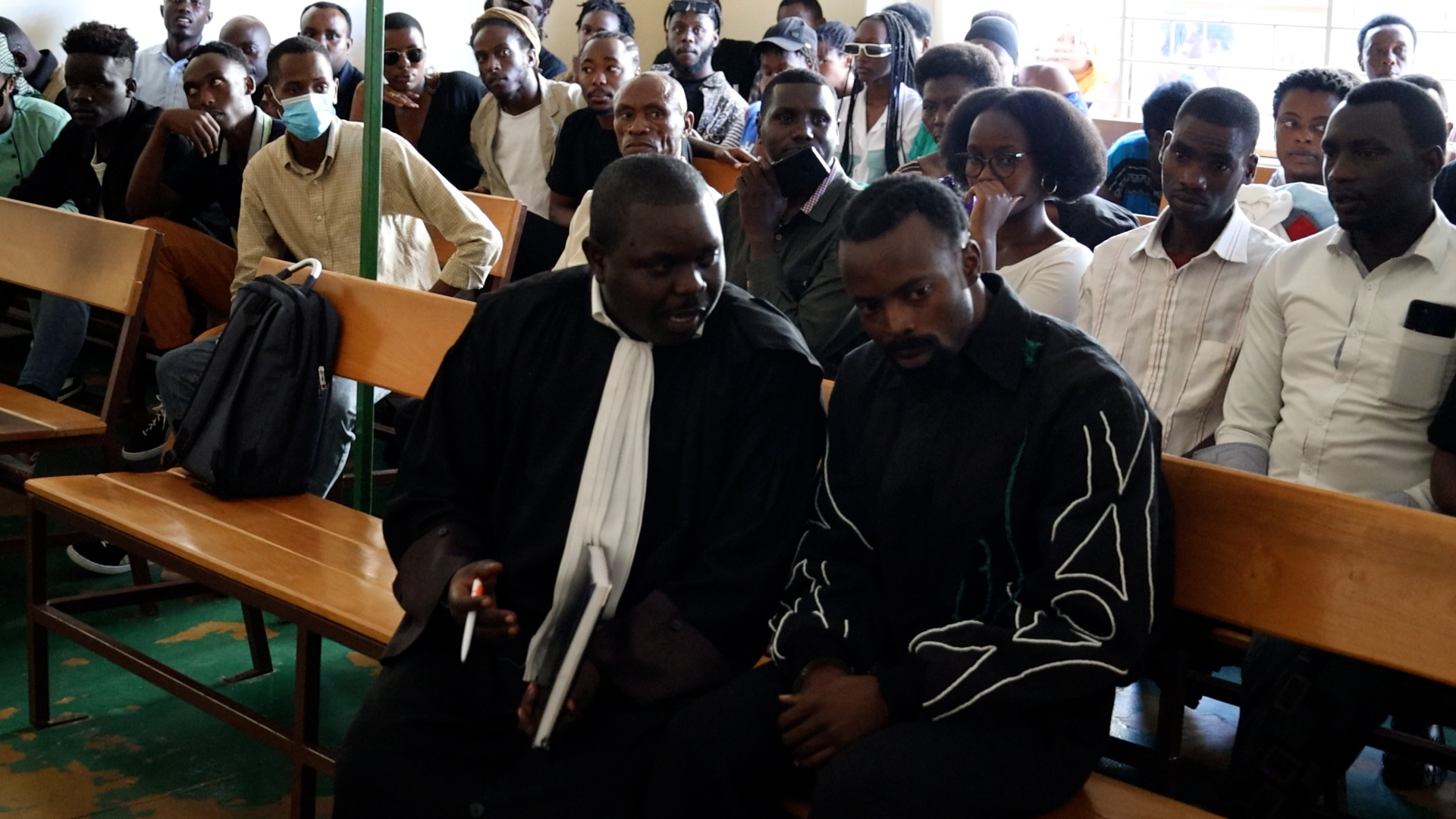 From right in the black jacket is Mr. Turahirwa founder of Moshions and his lawyer in Kigali Court 2023 [Photo Credit: Inyarwanda]
From right in the black jacket is Mr. Turahirwa founder of Moshions and his lawyer in Kigali Court 2023 [Photo Credit: Inyarwanda]
Moshions' studio and fashion shop are located in Kiyovu cy'Abakire, one of Kigali's most upscale neighborhoods. The rapid rise of the brand led to speculation about its funding sources, with some suggesting the involvement of a silent partner.
ALSO READ: Where is the brand Moshions Now? New Collection released "ISHURI RIRAKOMEJE"
Recently, Moshions organized a fashion show in Italy titled "Inzozi Fashion Experience 2024." The word "Inzozi," meaning "dreams" in Kinyarwanda, encapsulates the aspirations and beauty of the Rwandan people. This unique event celebrated African art, fashion, music, and cuisine.
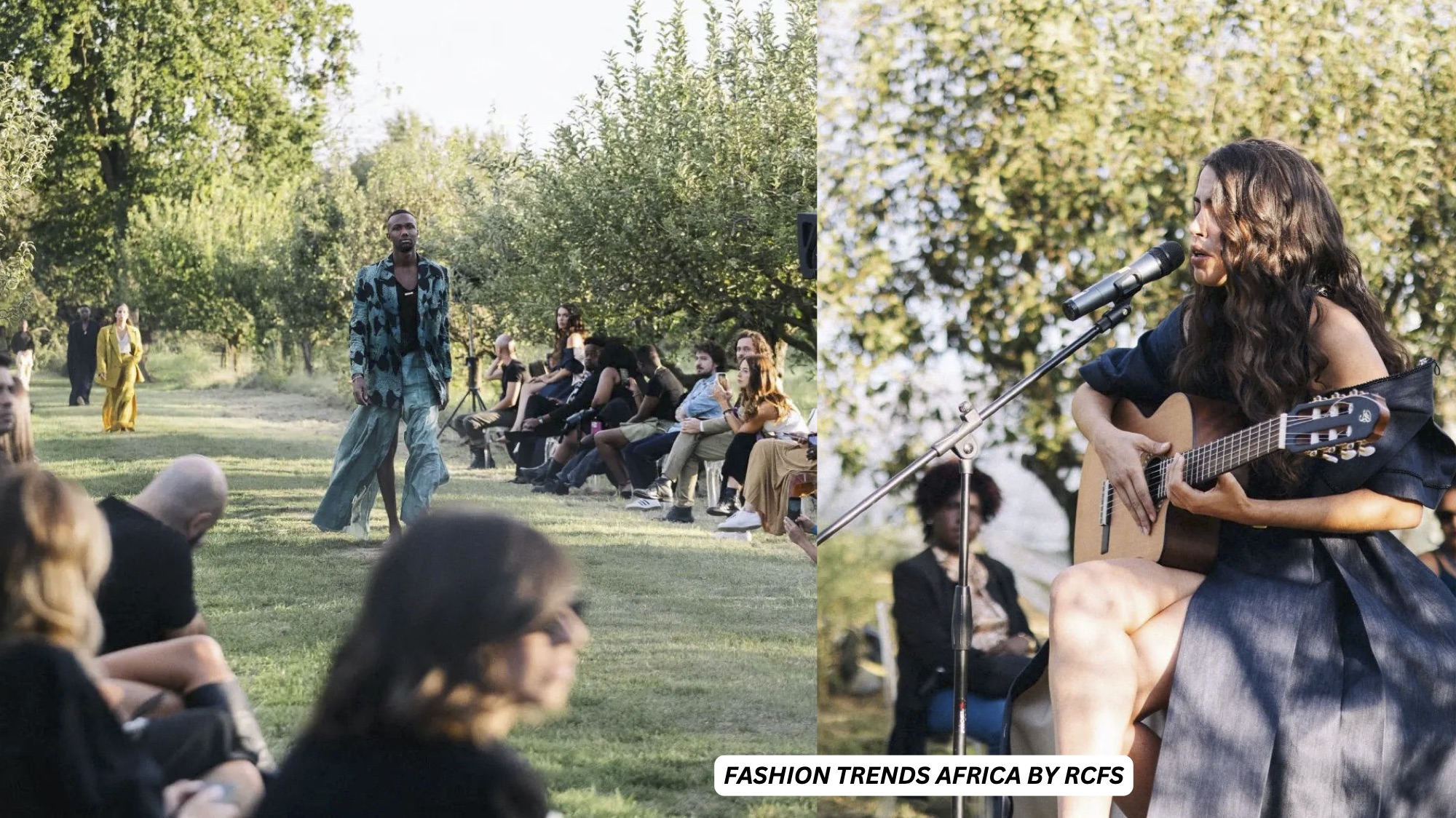 Models on the runway during the Inzozi Fashion Experience 2024, in Italy [Photo Credit: KS1]
Models on the runway during the Inzozi Fashion Experience 2024, in Italy [Photo Credit: KS1]
The show's forest setting and accompanying music were praised, but some fashion enthusiasts noted that the setup could have incorporated more fashionable elements to better showcase the new collection. Critics also pointed out that the quality of images shared on social media didn't meet professional standards for a high-profile fashion event.
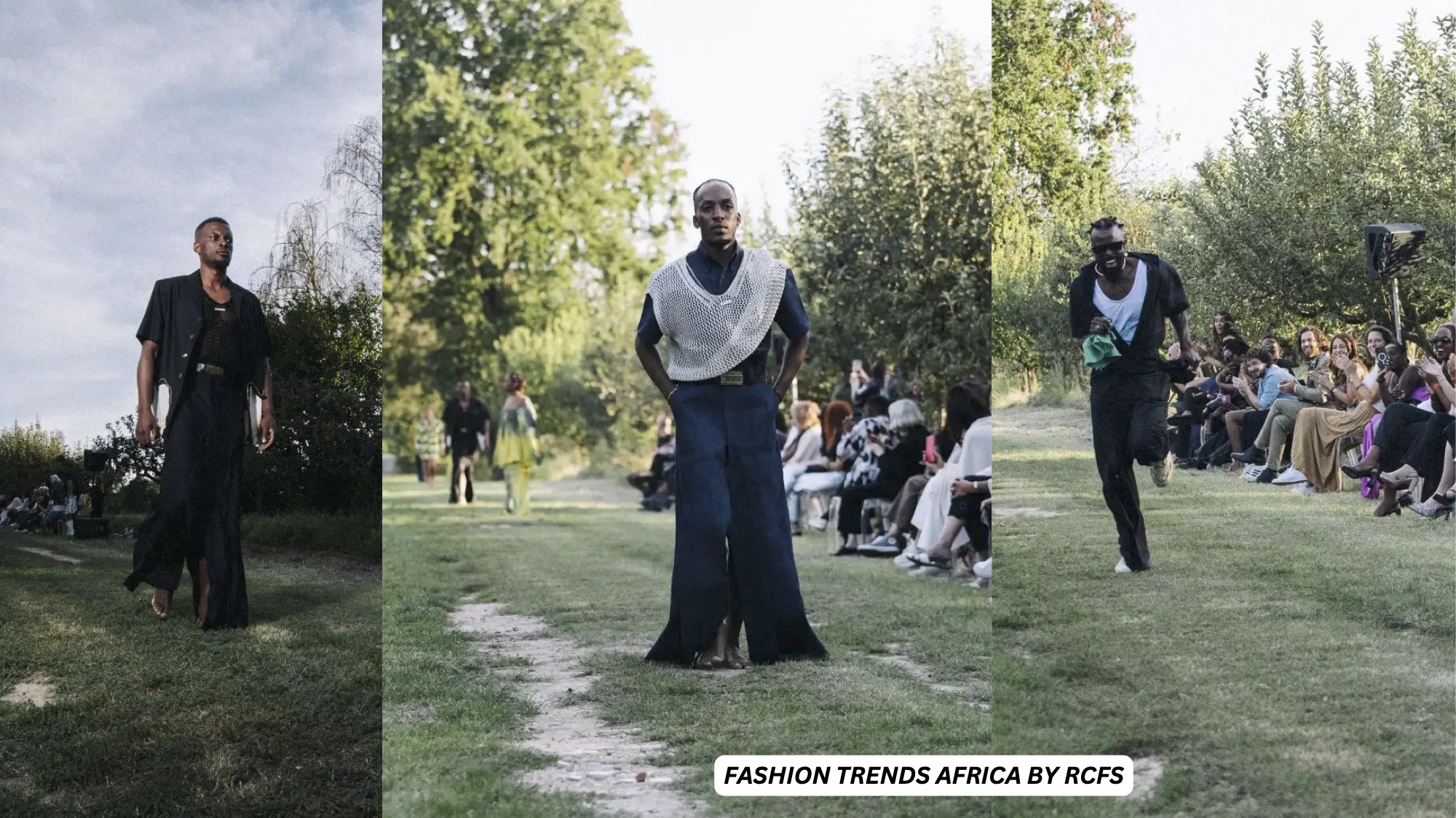 Models on the runway during the Inzozi Fashion Experience 2024, in Italy [Photo Credit: KS1]
Models on the runway during the Inzozi Fashion Experience 2024, in Italy [Photo Credit: KS1]
Despite these critiques, Moshions continues to push boundaries in African fashion. Turahirwa's studio in Kigali, featuring volcanic stones as decor, exemplifies his commitment to blending cultural elements with contemporary design.
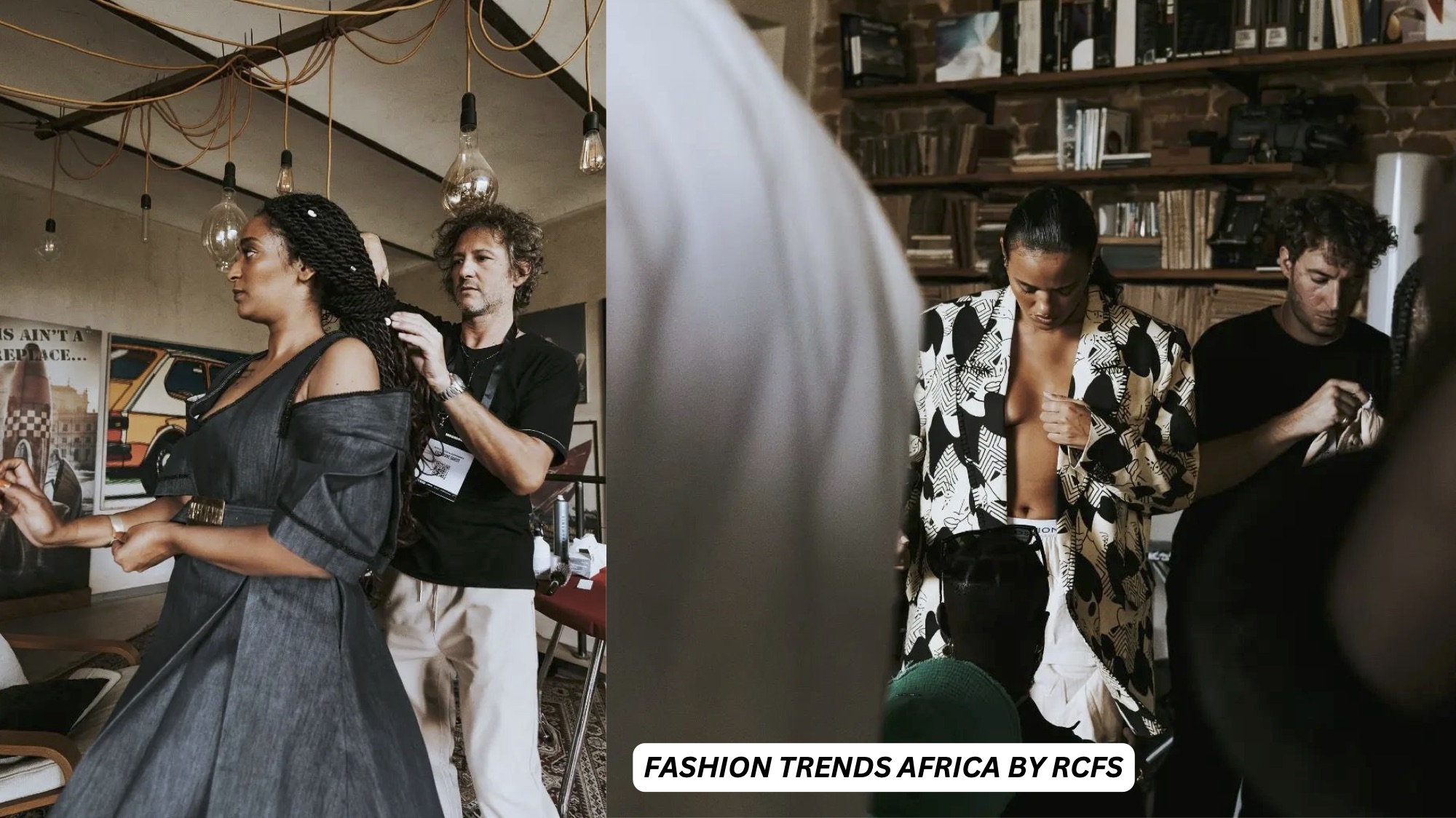 Models and stylists in backstage during the Inzozi Fashion Experience 2024, in Italy [Photo Credit: KS1]
Models and stylists in backstage during the Inzozi Fashion Experience 2024, in Italy [Photo Credit: KS1]
Kwanda Season 1 continues to evolve and Moshions continues to grow, the fashion world eagerly anticipates what Kwanda Season 2 might bring. The journey of Turahirwa Moses and his brand illustrates the dynamic and sometimes controversial nature of the fashion industry, particularly in the context of emerging African designers making their mark on the global stage.
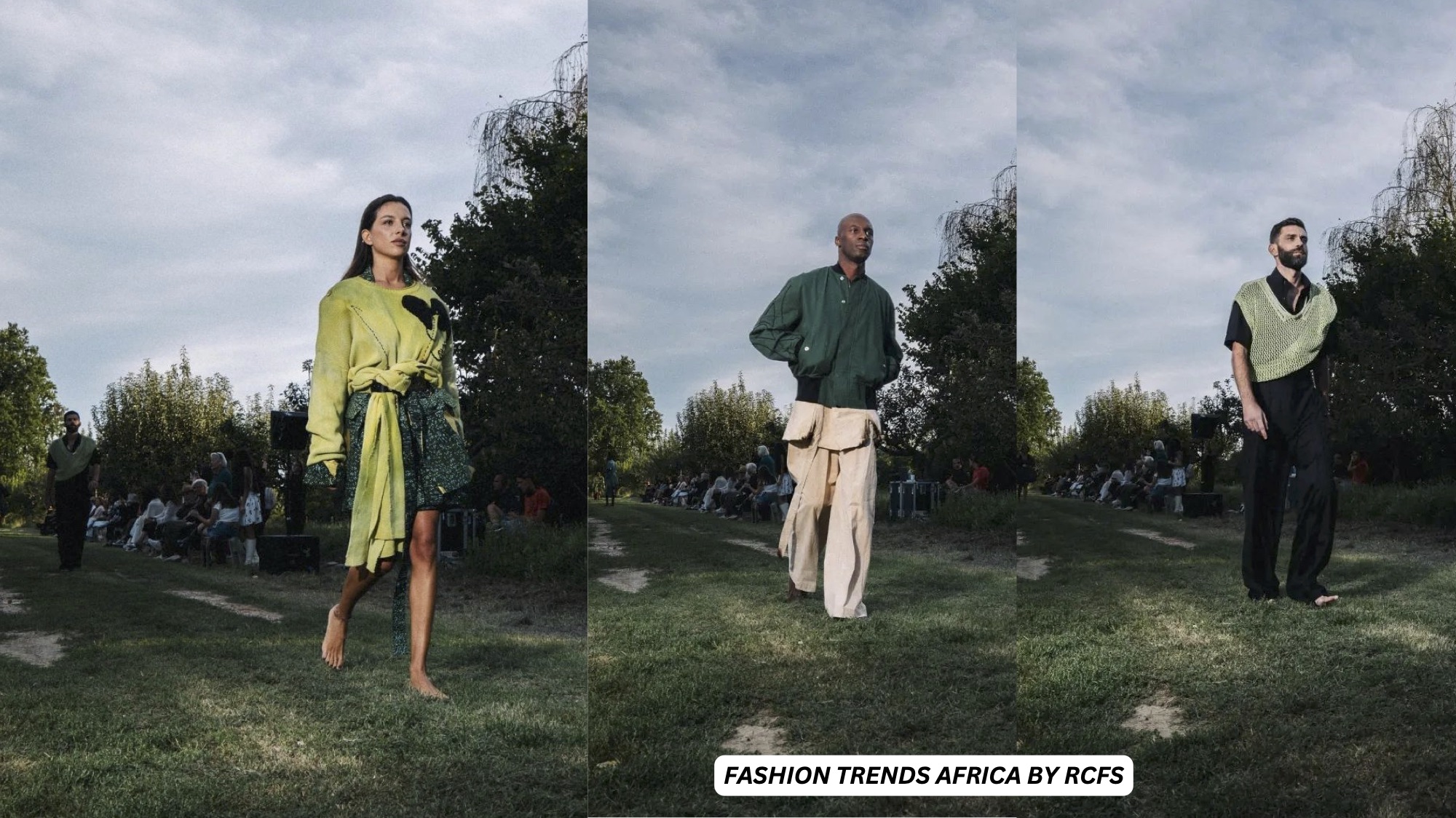 Models on the runway during the Inzozi Fashion Experience 2024, in Italy [Photo Credit: KS1]
Models on the runway during the Inzozi Fashion Experience 2024, in Italy [Photo Credit: KS1]
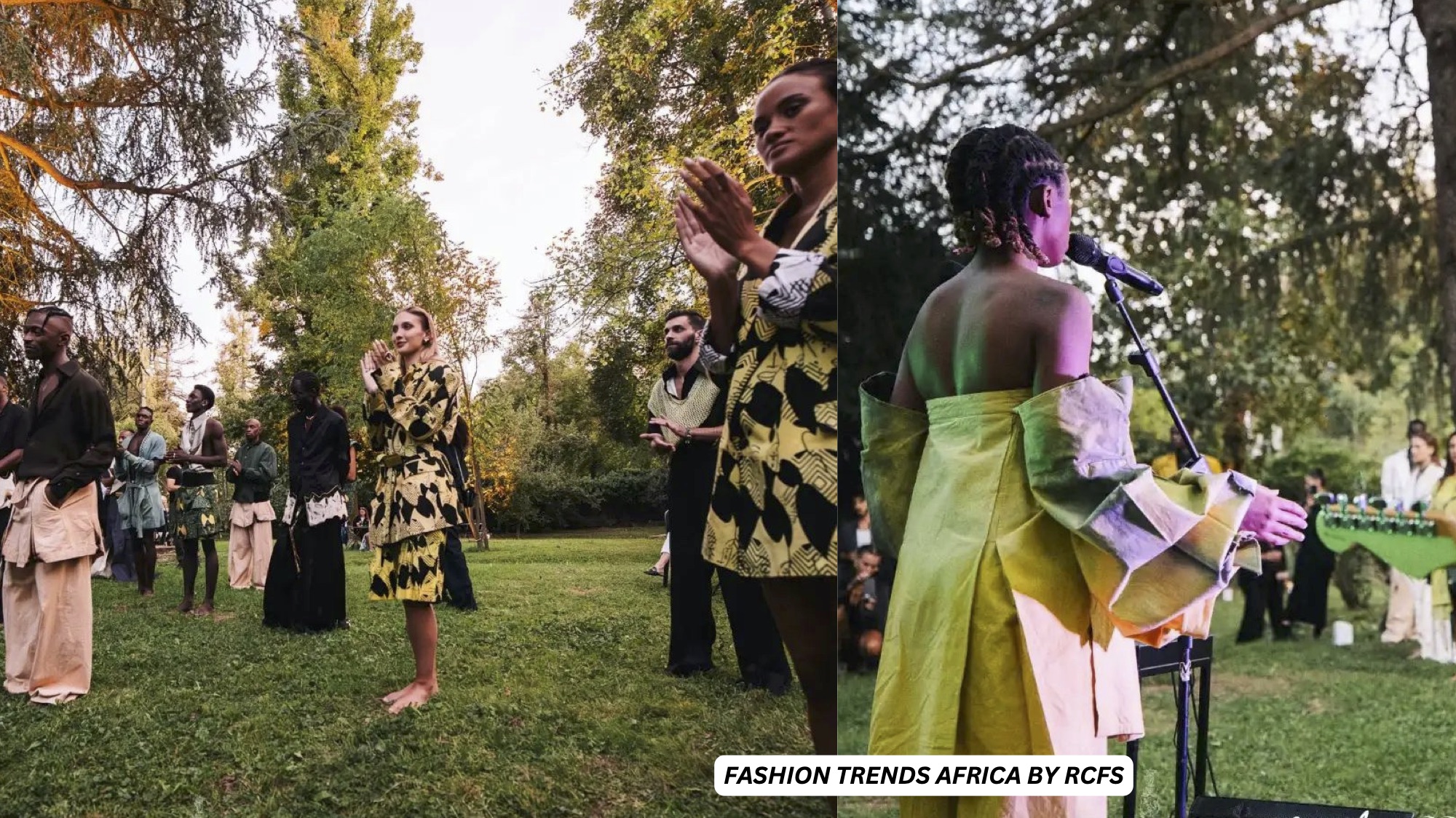 Models on the runway during the Inzozi Fashion Experience 2024, in Italy [Photo Credit: KS1]
Models on the runway during the Inzozi Fashion Experience 2024, in Italy [Photo Credit: KS1]
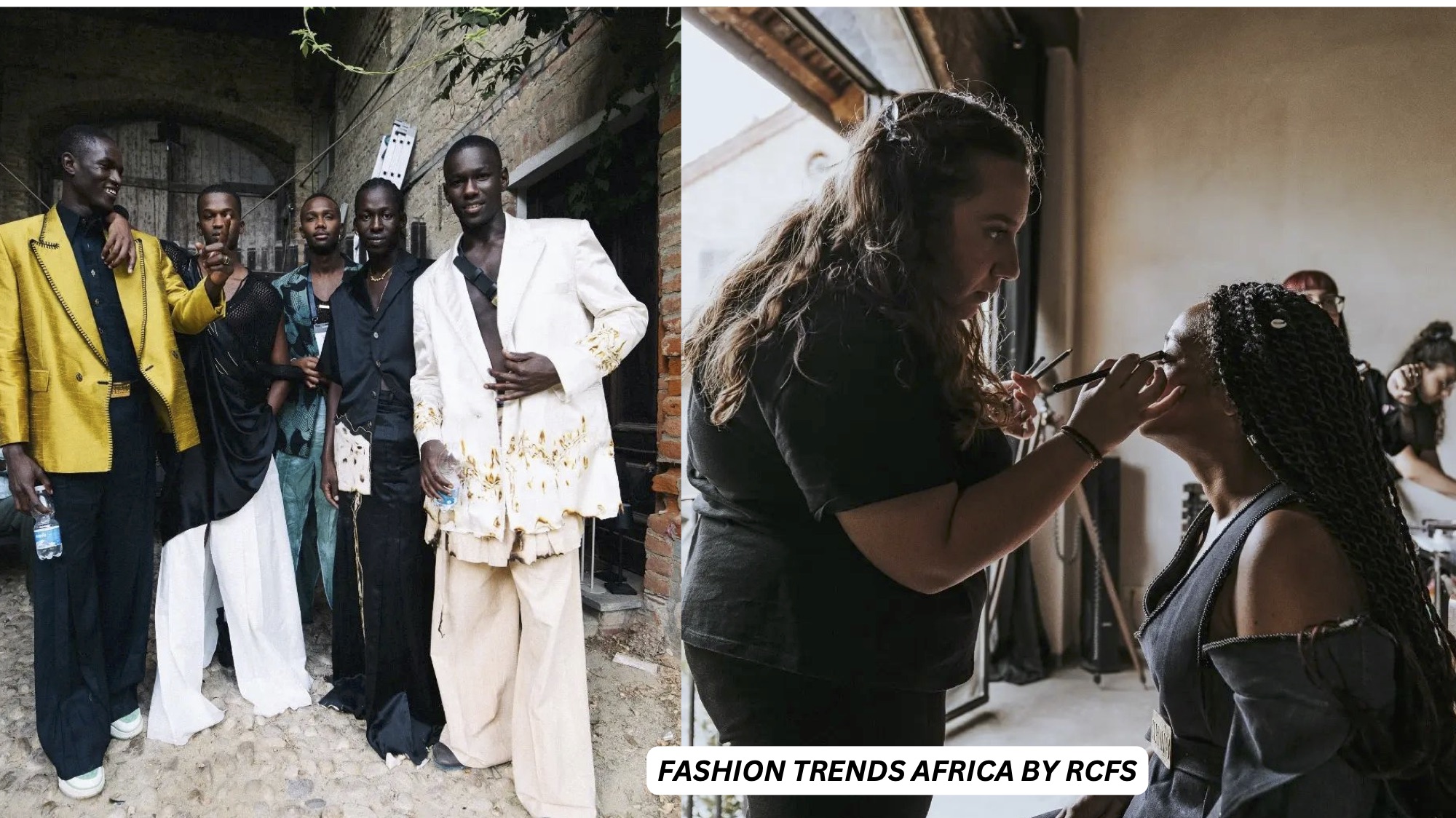 Models on the runway during the Inzozi Fashion Experience 2024, in Italy [Photo Credit: KS1]
Models on the runway during the Inzozi Fashion Experience 2024, in Italy [Photo Credit: KS1]
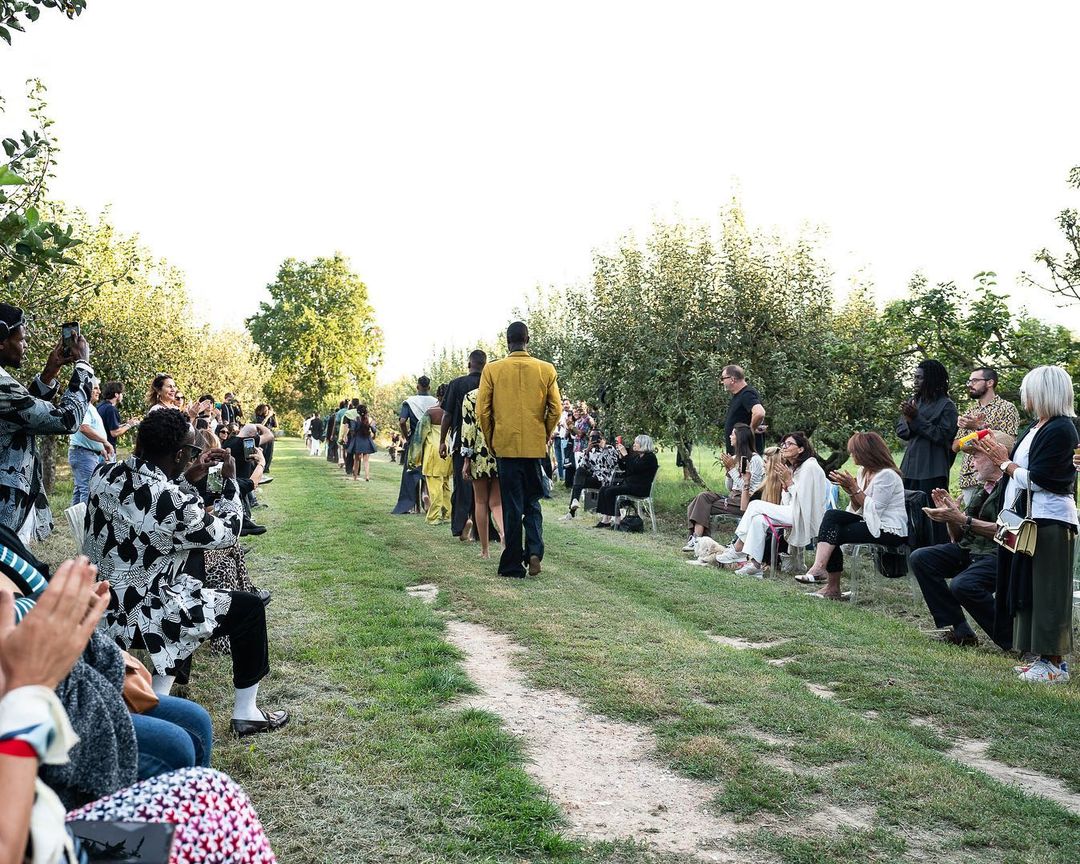 Models on the runway during the Inzozi Fashion Experience 2024, in Italy [Photo Credit: KS1]
Models on the runway during the Inzozi Fashion Experience 2024, in Italy [Photo Credit: KS1]
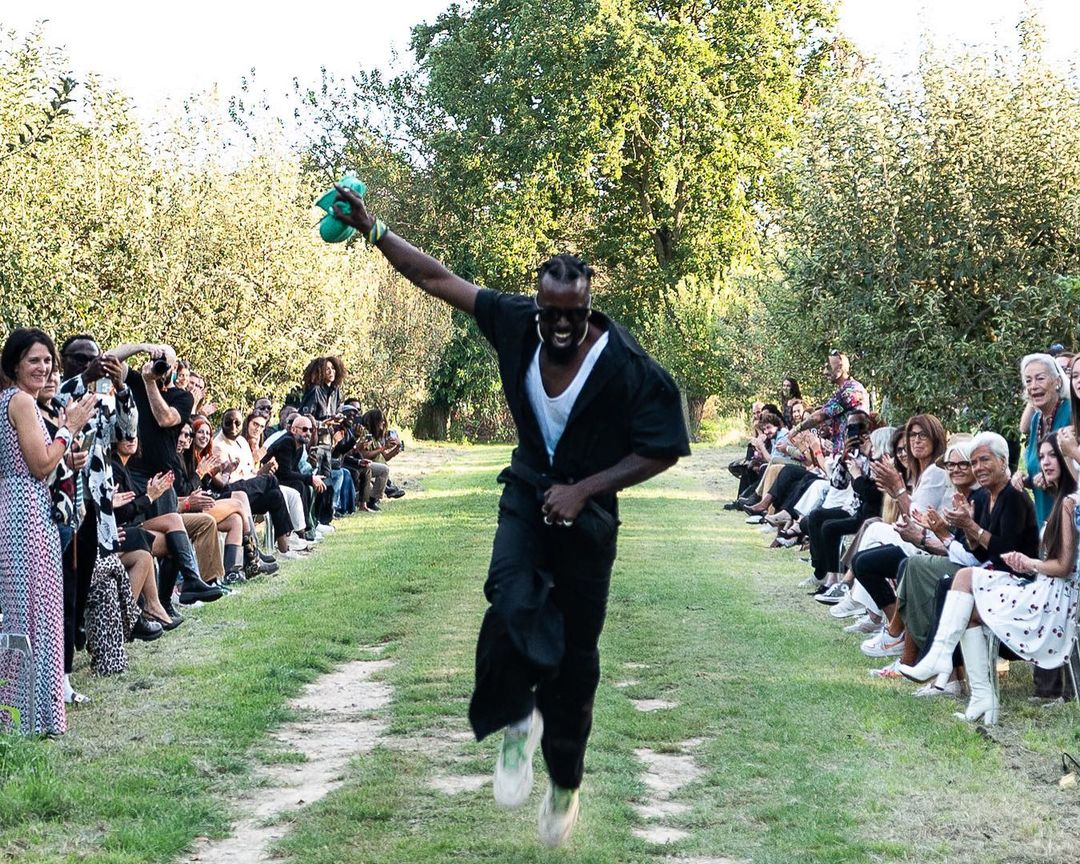 Moses Turahirwa on the runway during the Inzozi Fashion Experience 2024, in Italy [Photo Credit: KS1]
Moses Turahirwa on the runway during the Inzozi Fashion Experience 2024, in Italy [Photo Credit: KS1]
Kwanda Season 1 and Moshions: Inzozi Fashion Experience 2024 in the Heart of the Forest
Across Africa, established fashion designers and brands are pushing creative boundaries like never before. From crafting unique garments to setting up innovative studios, organizing captivating photoshoots, and staging self-produced fashion shows to promote new collections, the continent's fashion scene is thriving with innovation.
 Inside Moshions' shop in Kigali [Photo Credit: KS1]
Inside Moshions' shop in Kigali [Photo Credit: KS1]
In Rwanda, Moshions stands out as a prime example of this creative renaissance. The brand has garnered attention not only for its collections but also for its distinctive presentation style, particularly in organizing fashion shows. While it typically takes years for an emerging designer to style a country's first family, Moshions' founder, Turahirwa Moses, achieved this feat relatively quickly through creativity and hard work.
 The brand Moshions is well known in Rwanda and many people buy from here including government officials [Photo Credit: KS1]
The brand Moshions is well known in Rwanda and many people buy from here including government officials [Photo Credit: KS1]
To understand the story better, it's crucial to distinguish between Moshions and Kwanda Season 1. Moshions is the brand name of the company, while Kwanda Season 1 is a concept created by the designer behind the brand, Turahirwa Moses.
 Moses Turahirwa founder and Creative Designer at Moshions [Photo Credit" KS1]
Moses Turahirwa founder and Creative Designer at Moshions [Photo Credit" KS1]
ALSO READ: Moshions in Italy: A Journey of Self-Discovery
The emergence of the Kwanda Season 1 concept generated significant buzz in Rwanda, as Turahirwa was already well-known across various social strata. However, this new persona led many to question the relationship between Kwanda and Turahirwa's identity.
 In the photo second from left is Mr. Turahirwa in backstage during the preparation of the Inzozi Fashion Experience 2024 in Italy [Photo Credit: KS1]
In the photo second from left is Mr. Turahirwa in backstage during the preparation of the Inzozi Fashion Experience 2024 in Italy [Photo Credit: KS1]
Turahirwa himself narrated the origin of Kwanda Season 1 in a film: "Let's focus, it's time to start observing again. What are we looking for? I looked at the past and got inspired. I looked at nature, and it embraced me. I looked at the future and saw myself. I am the past, I am nature, I am the future. The new era has finally arrived, Kwanda Season 1."
 2024 Collection made by Moshins [Photo Credit: KS1]
2024 Collection made by Moshins [Photo Credit: KS1]
During this period, Turahirwa faced public scrutiny when videos surfaced suggesting he had been sexually assaulted in Italy. In an interview with local media in Kigali, he addressed the incident, confirming the assault. Additionally, Turahirwa was arrested on charges of altering his sex designation from "Male" to "Female" in his Rwandan passport and for alleged use of marijuana, which is illegal in Rwanda.
 From right in the black jacket is Mr. Turahirwa founder of Moshions and his lawyer in Kigali Court 2023 [Photo Credit: Inyarwanda]
From right in the black jacket is Mr. Turahirwa founder of Moshions and his lawyer in Kigali Court 2023 [Photo Credit: Inyarwanda]
Moshions' studio and fashion shop are located in Kiyovu cy'Abakire, one of Kigali's most upscale neighborhoods. The rapid rise of the brand led to speculation about its funding sources, with some suggesting the involvement of a silent partner.
ALSO READ: Where is the brand Moshions Now? New Collection released "ISHURI RIRAKOMEJE"
Recently, Moshions organized a fashion show in Italy titled "Inzozi Fashion Experience 2024." The word "Inzozi," meaning "dreams" in Kinyarwanda, encapsulates the aspirations and beauty of the Rwandan people. This unique event celebrated African art, fashion, music, and cuisine.
 Models on the runway during the Inzozi Fashion Experience 2024, in Italy [Photo Credit: KS1]
Models on the runway during the Inzozi Fashion Experience 2024, in Italy [Photo Credit: KS1]
The show's forest setting and accompanying music were praised, but some fashion enthusiasts noted that the setup could have incorporated more fashionable elements to better showcase the new collection. Critics also pointed out that the quality of images shared on social media didn't meet professional standards for a high-profile fashion event.
 Models on the runway during the Inzozi Fashion Experience 2024, in Italy [Photo Credit: KS1]
Models on the runway during the Inzozi Fashion Experience 2024, in Italy [Photo Credit: KS1]
Despite these critiques, Moshions continues to push boundaries in African fashion. Turahirwa's studio in Kigali, featuring volcanic stones as decor, exemplifies his commitment to blending cultural elements with contemporary design.
 Models and stylists in backstage during the Inzozi Fashion Experience 2024, in Italy [Photo Credit: KS1]
Models and stylists in backstage during the Inzozi Fashion Experience 2024, in Italy [Photo Credit: KS1]
Kwanda Season 1 continues to evolve and Moshions continues to grow, the fashion world eagerly anticipates what Kwanda Season 2 might bring. The journey of Turahirwa Moses and his brand illustrates the dynamic and sometimes controversial nature of the fashion industry, particularly in the context of emerging African designers making their mark on the global stage.
 Models on the runway during the Inzozi Fashion Experience 2024, in Italy [Photo Credit: KS1]
Models on the runway during the Inzozi Fashion Experience 2024, in Italy [Photo Credit: KS1]
 Models on the runway during the Inzozi Fashion Experience 2024, in Italy [Photo Credit: KS1]
Models on the runway during the Inzozi Fashion Experience 2024, in Italy [Photo Credit: KS1]
 Models on the runway during the Inzozi Fashion Experience 2024, in Italy [Photo Credit: KS1]
Models on the runway during the Inzozi Fashion Experience 2024, in Italy [Photo Credit: KS1]
 Models on the runway during the Inzozi Fashion Experience 2024, in Italy [Photo Credit: KS1]
Models on the runway during the Inzozi Fashion Experience 2024, in Italy [Photo Credit: KS1]
 Moses Turahirwa on the runway during the Inzozi Fashion Experience 2024, in Italy [Photo Credit: KS1]
Moses Turahirwa on the runway during the Inzozi Fashion Experience 2024, in Italy [Photo Credit: KS1]
What Fashion Entrepreneurs Will Benefit from the Kuza Africa and RP-IPRC Kigali Partnership?
In a significant move for Rwanda's fashion industry, September 2024 marked a bustling month for Kuza Africa, culminating in a groundbreaking partnership with the Rwanda Polytechnic - Integrated Polytechnic Regional College Kigali (RP-IPRC Kigali). This collaboration promises to reshape the landscape for fashion entrepreneurs and students alike, bridging the gap between academia and the burgeoning textile and garment industry in Rwanda.
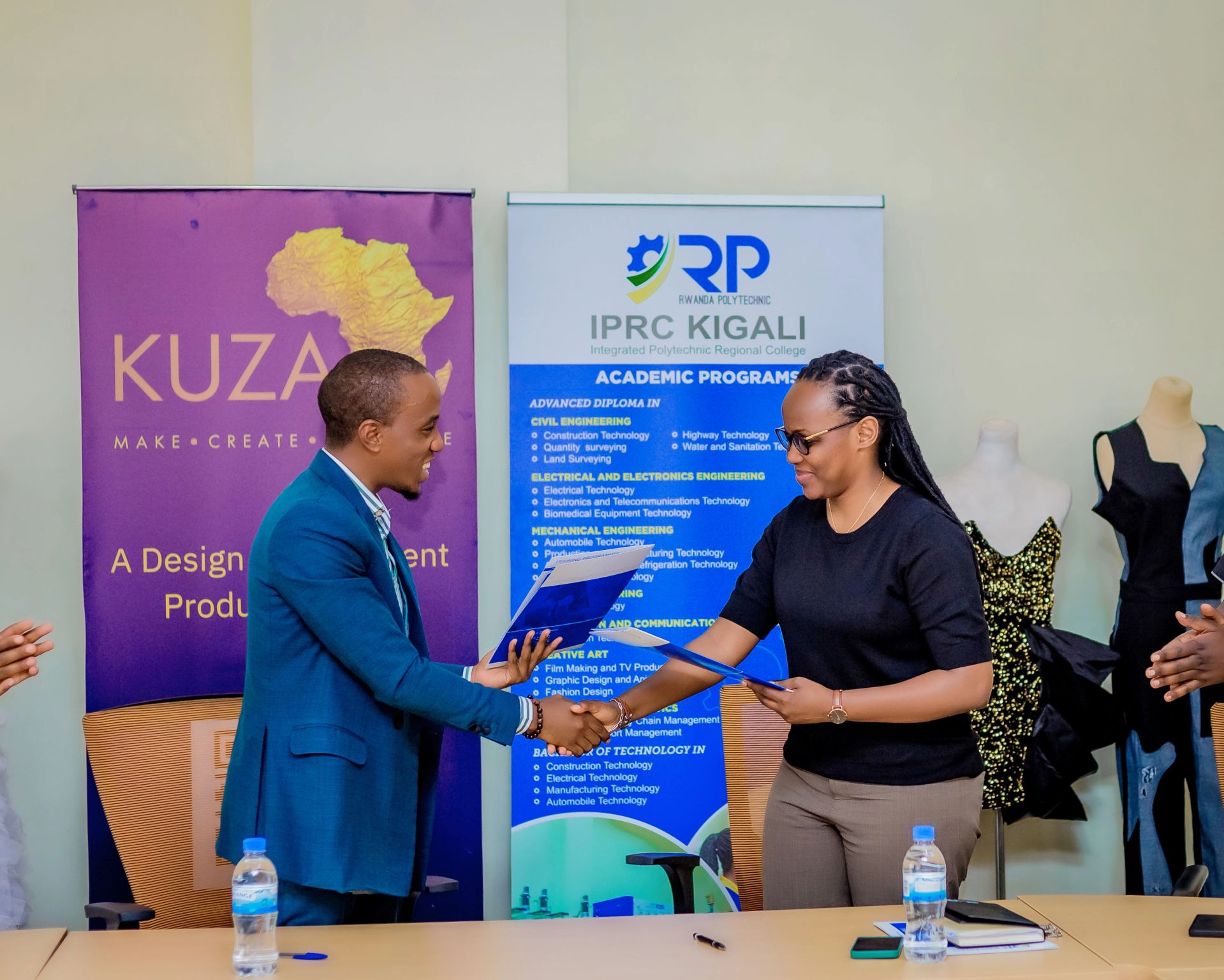 Dr. Alice Ikuzwe, Deputy Principal in Charge of Academics and Training at RP-IPRC Kigali, and Mr. Maximilien Kolbe Uwayo Hategekimana, Chief Executive Officer of Kuza Africa Ltd.[Photo Credit: KA]
Dr. Alice Ikuzwe, Deputy Principal in Charge of Academics and Training at RP-IPRC Kigali, and Mr. Maximilien Kolbe Uwayo Hategekimana, Chief Executive Officer of Kuza Africa Ltd.[Photo Credit: KA]
A Strategic Alliance
On September 4th, 2024, in Kigali, a Memorandum of Understanding (MOU) was signed between RP-IPRC Kigali and Kuza Africa Ltd. This partnership aims to enhance the educational experience of students, align academic training with industry needs, and empower the growth of indigenous design and craftsmanship in Rwanda.
Dr. Alice Ikuzwe, Deputy Principal in Charge of Academics and Training at RP-IPRC Kigali, and Mr. Maximilien Kolbe Uwayo Hategekimana, Chief Executive Officer of Kuza Africa Ltd., were the signatories of this landmark agreement. The collaboration is designed to provide students with Hands-on training, Internship opportunities, Access to industry-standard facilities, and Exposure to industry experts and resources.
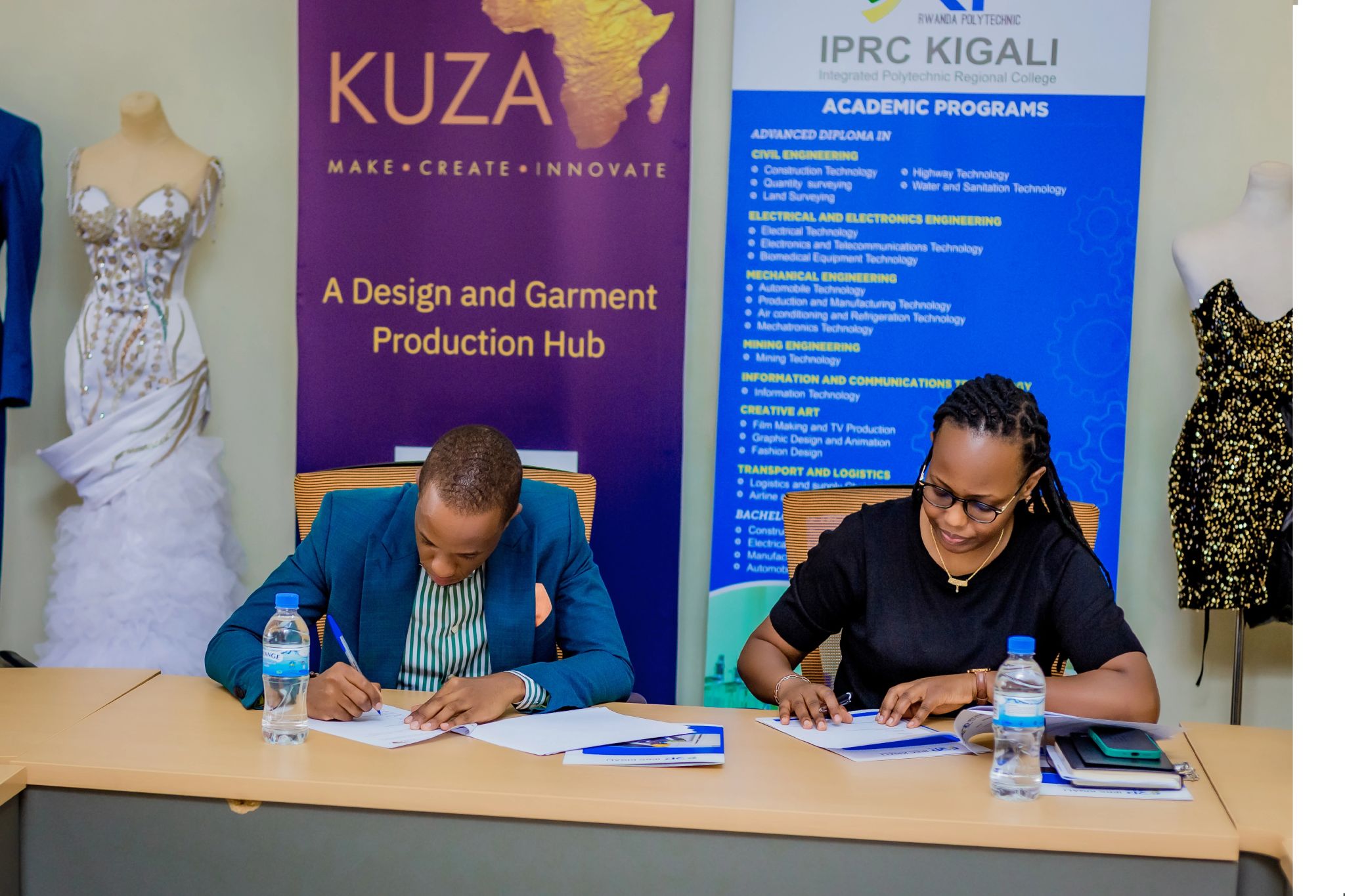 Dr. Alice Ikuzwe, Deputy Principal in Charge of Academics and Training at RP-IPRC Kigali, and Mr. Maximilien Kolbe Chief Executive Officer of Kuza Africa signing an MOU [Photo Credit: KA]
Dr. Alice Ikuzwe, Deputy Principal in Charge of Academics and Training at RP-IPRC Kigali, and Mr. Maximilien Kolbe Chief Executive Officer of Kuza Africa signing an MOU [Photo Credit: KA]
Kuza Africa, a community-driven hub in Kigali, serves as a comprehensive resource center for "Made in Rwanda" creatives and fashion designers. It offers unique workspaces and production capabilities, focusing on empowering local talent and connecting them to opportunities.
Bridging Education and Industry
The partnership highlights a shared commitment to bridging the gap between education and the creative industry. It aims to contribute to the local manufacturing ecosystem and bolster the "Made in Rwanda" initiative. Kuza Africa stated, "Through this collaboration, we aim to foster innovation, creativity, and industry-ready talent. Our partnership will provide IPRC students with valuable internships, apprenticeships, and job placements."
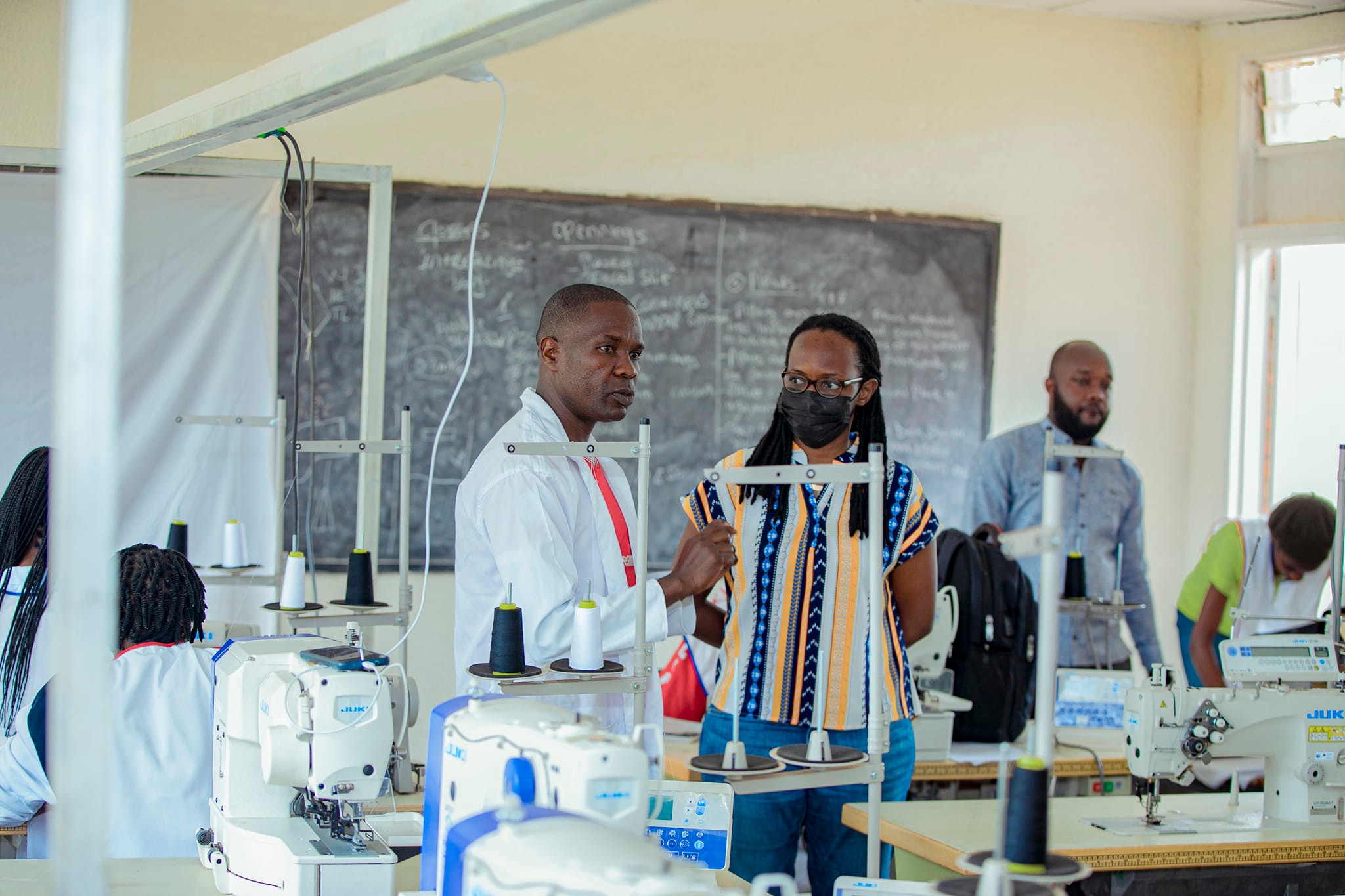 Inside the IPRC-Kigali's classroom for fashion designing courses [Photo Credit: IPRC]
Inside the IPRC-Kigali's classroom for fashion designing courses [Photo Credit: IPRC]
This alliance is particularly significant given the context of Rwanda's fashion education landscape. In 2020, RP-IPRC Kigali announced the introduction of fashion design as a subject, recognizing the need for a "Rwandan Centre for Design and Clothing" within a Polytechnic College. This move was intended to address the skills gap in the priority garment and fashion sector.
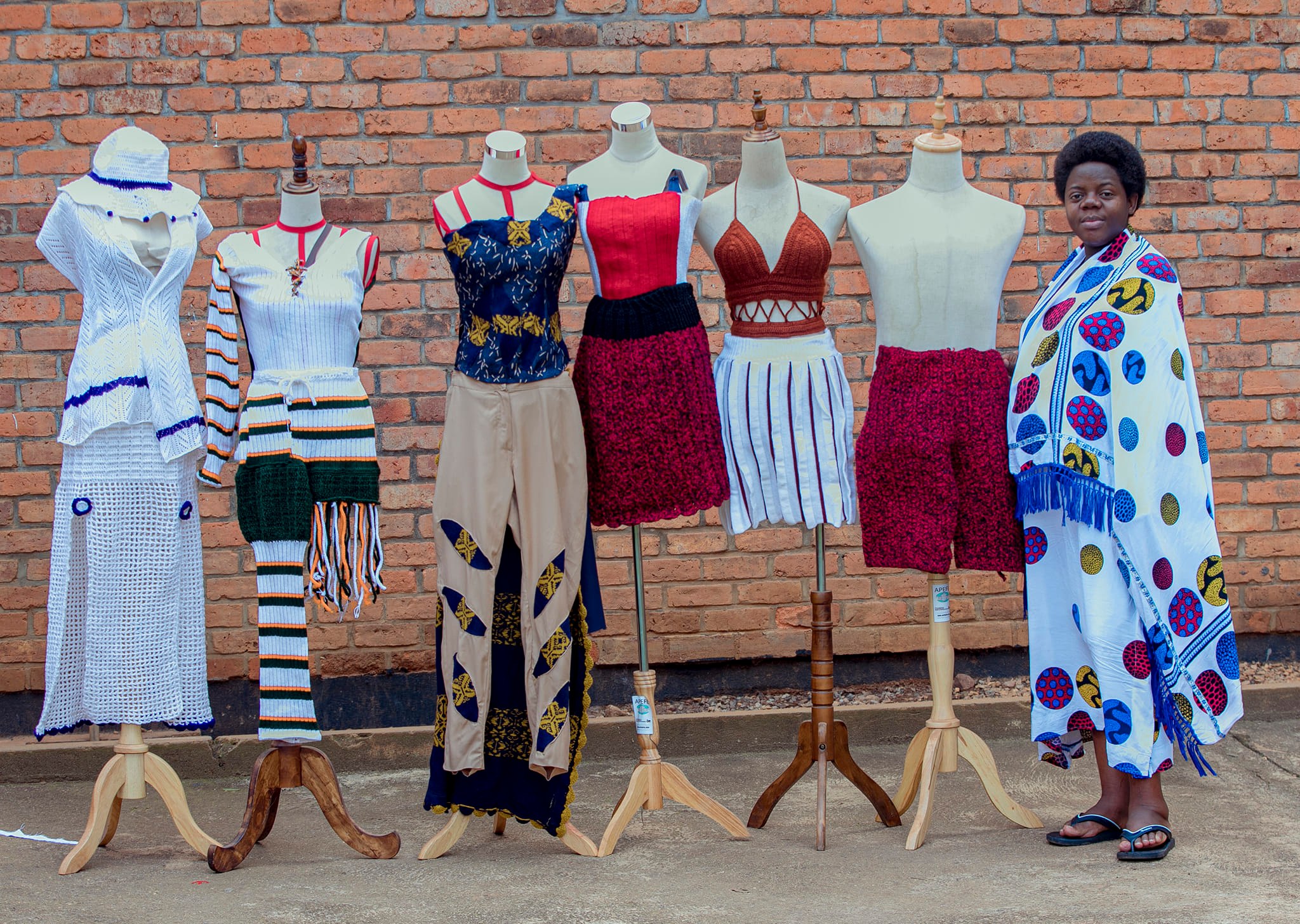 IPRC-Kigali's student showcasing her collections [Poto Credit: IPRC]
IPRC-Kigali's student showcasing her collections [Poto Credit: IPRC]
Since then, IPRC Kigali has been offering an Advanced Diploma in Industrial Arts with a Fashion Design Program. However, a skills gap survey conducted by APEFE in March 2019 identified the need for a state-of-the-art department offering comprehensive training beyond tailoring and garment manufacturing. The survey highlighted the importance of developing skills for fashionists, stylists, and other creatives capable of producing outstanding products competitively in national, regional, and international markets.
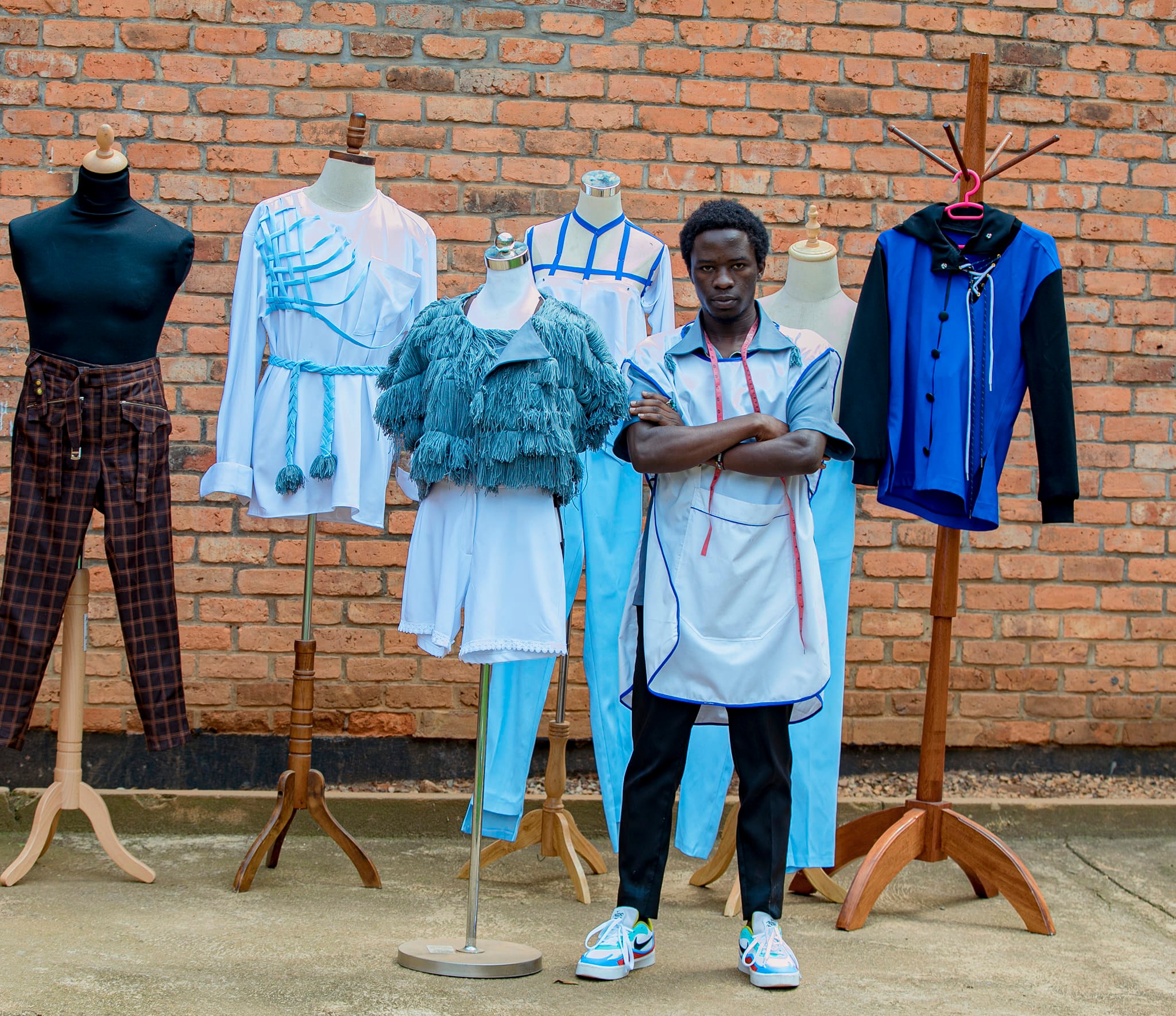 IPRC-Kigali's student showcasing his collections [Poto Credit: IPRC]
IPRC-Kigali's student showcasing his collections [Poto Credit: IPRC]
Benefits for Fashion Entrepreneurs
The Kuza Africa and RP-IPRC Kigali partnership will offer numerous benefits for fashion entrepreneurs such as; Access to Talent: Entrepreneurs will have the opportunity to engage with a pool of skilled graduates trained in industry-relevant techniques and technologies. Collaborative Projects: The partnership will facilitate joint projects between students and established fashion businesses, fostering innovation and fresh perspectives.
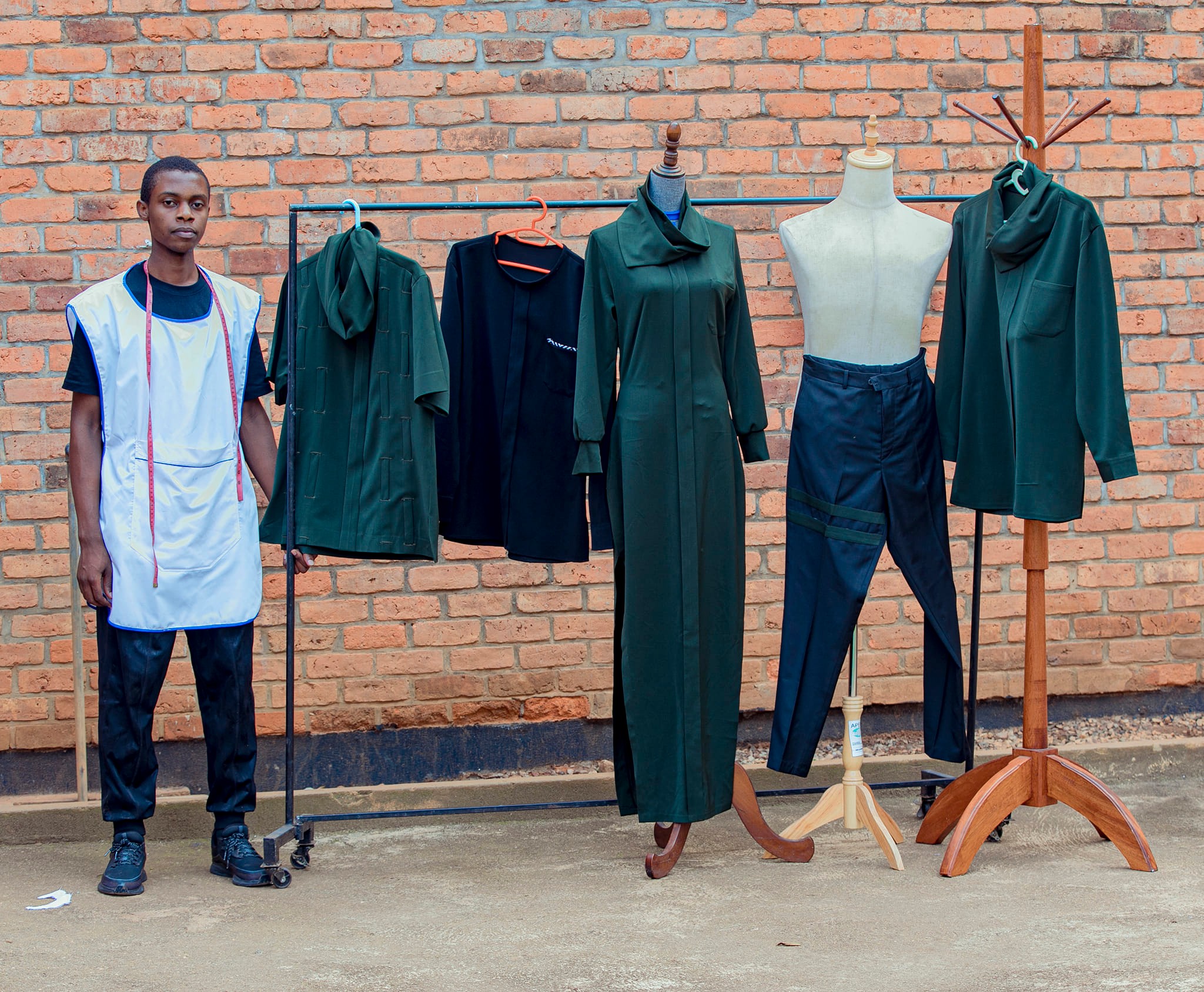 IPRC Kigali's student showcasing his collections [Poto Credit: IPRC]
IPRC Kigali's student showcasing his collections [Poto Credit: IPRC]
Other benefits include resource sharing, knowledge exchange, internship Programs, and research and development as well as networking opportunities.
Kuza Africa's involvement in the fashion industry extends beyond this partnership. In September, the organization participated in a discussion organized in partnership with the Institut Français de Kigali and Novelty Fashion Week 2024. This event explored various topics crucial to the growth of the Rwandan fashion industry, including challenges in producing quality materials, securing funding for fashion ventures, building essential business skills, and the importance of industry collaboration. These discussions underscored the collective effort needed to elevate Rwanda's fashion industry both locally and internationally.
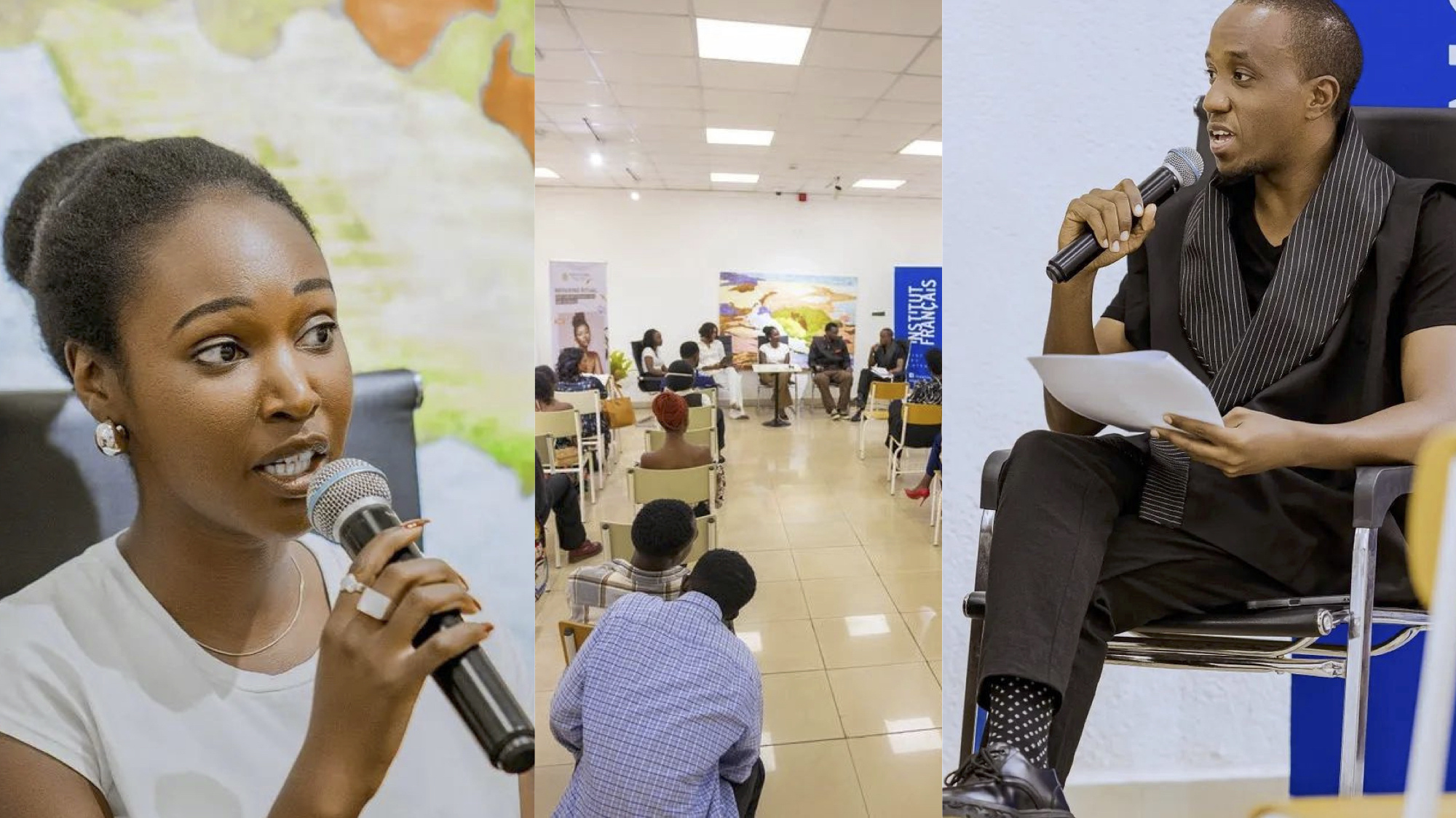 From left, fashion expert and PhD researcher Fiona Uwahoro,and Mr. Maximilien Kolbe Uwayo Hategekimana, Chief Executive Officer of Kuza Africa speaking during the discussion [Photo Credit: KA]
From left, fashion expert and PhD researcher Fiona Uwahoro,and Mr. Maximilien Kolbe Uwayo Hategekimana, Chief Executive Officer of Kuza Africa speaking during the discussion [Photo Credit: KA]
"Last Friday, we launched our Fashion 101 series with IPRC-Kigali fashion design students, where took them through an inspiring journey into Rwanda’s fashion scene and the endless career paths it offers. The energy in the room was electric, and we’re already looking forward to the next session" Kuza Africa stated
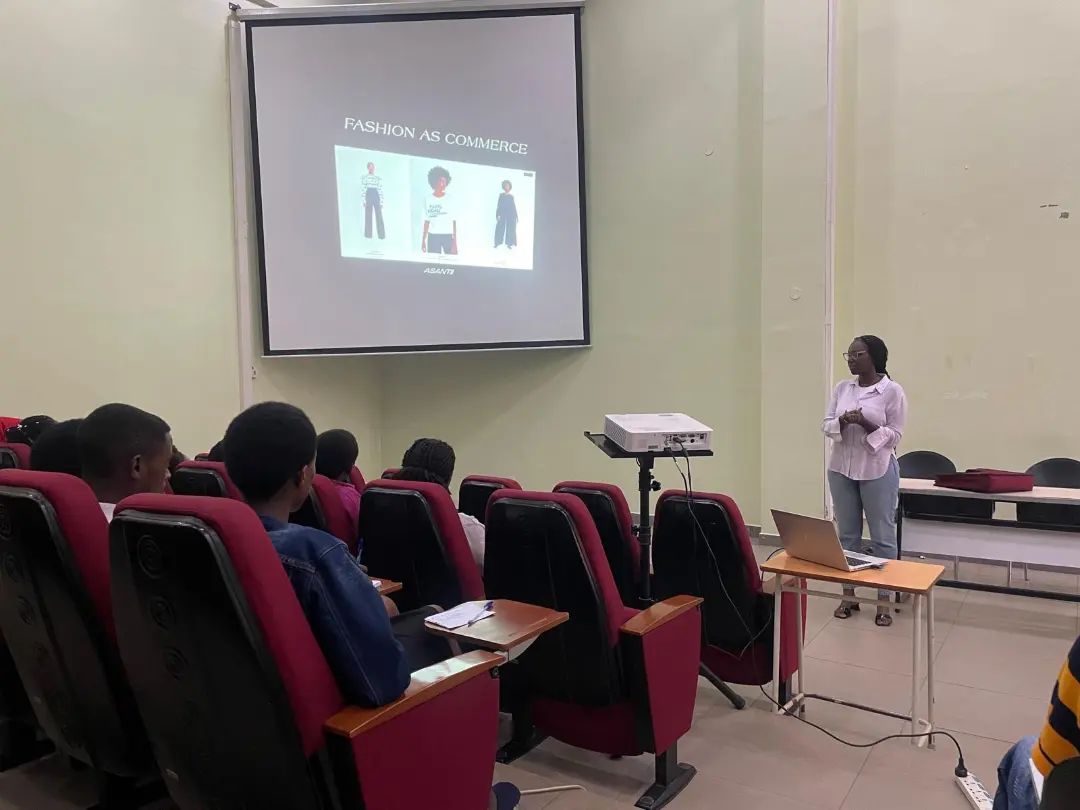 Last Friday, Kuza Africa launched its fashion 101 series with IPRC-Kigali designed for fashion design students [Photo Credit: KA]
Last Friday, Kuza Africa launched its fashion 101 series with IPRC-Kigali designed for fashion design students [Photo Credit: KA]
The partnership between Kuza Africa and RP-IPRC Kigali represents a significant step forward for Rwanda's fashion industry. By combining academic rigor with practical industry experience, this collaboration is set to nurture a new generation of fashion entrepreneurs equipped with the skills, knowledge, and connections needed to succeed in a competitive global market.
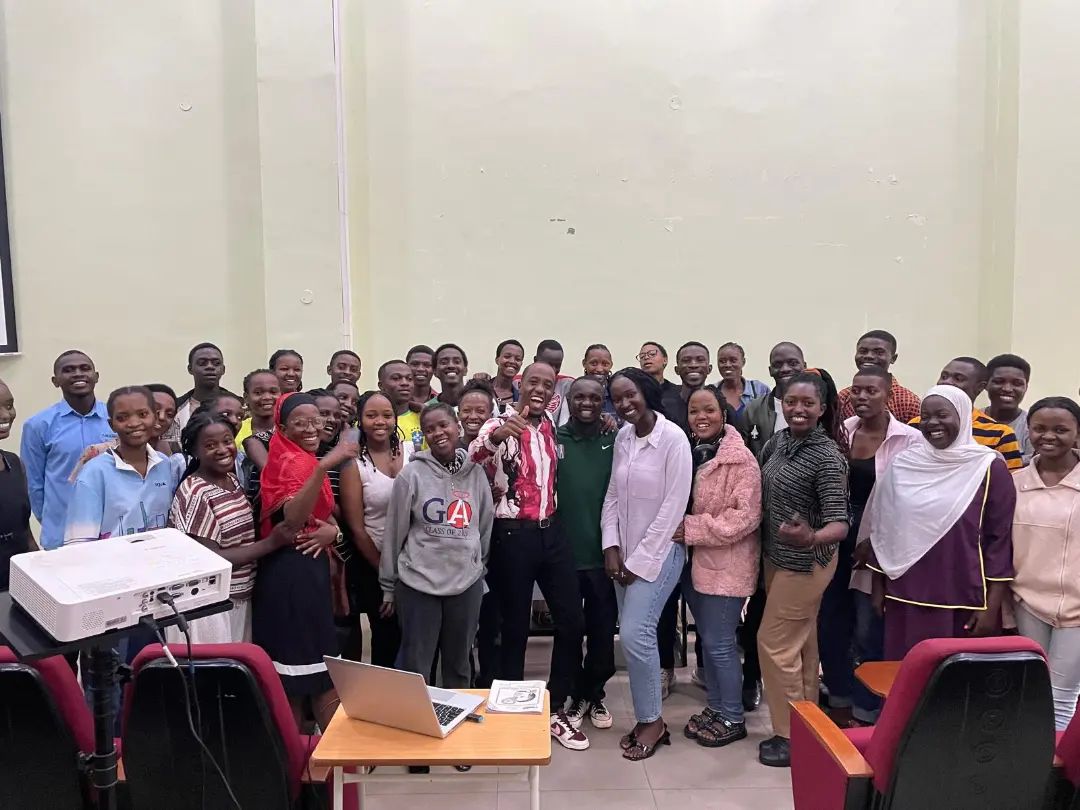 Participants- fashion design students and speakers taking photos after the training organized by Kuza Africa and IPRC-Kigali [Photo Credit: KA]
Participants- fashion design students and speakers taking photos after the training organized by Kuza Africa and IPRC-Kigali [Photo Credit: KA]
According to Kuza Africa, fashion entrepreneurs in Rwanda can look forward to a more vibrant, skilled, and innovative industry ecosystem. The organization believes that the benefits of this collaboration will extend beyond the immediate participants, potentially catalyzing growth and recognition for the "Made in Rwanda" brand on the international stage.
With continued efforts to bridge education and industry, Rwanda's fashion sector is poised for transformation, offering exciting opportunities for entrepreneurs, students, and established businesses alike.
What Fashion Entrepreneurs Will Benefit from the Kuza Africa and RP-IPRC Kigali Partnership?
In a significant move for Rwanda's fashion industry, September 2024 marked a bustling month for Kuza Africa, culminating in a groundbreaking partnership with the Rwanda Polytechnic - Integrated Polytechnic Regional College Kigali (RP-IPRC Kigali). This collaboration promises to reshape the landscape for fashion entrepreneurs and students alike, bridging the gap between academia and the burgeoning textile and garment industry in Rwanda.
 Dr. Alice Ikuzwe, Deputy Principal in Charge of Academics and Training at RP-IPRC Kigali, and Mr. Maximilien Kolbe Uwayo Hategekimana, Chief Executive Officer of Kuza Africa Ltd.[Photo Credit: KA]
Dr. Alice Ikuzwe, Deputy Principal in Charge of Academics and Training at RP-IPRC Kigali, and Mr. Maximilien Kolbe Uwayo Hategekimana, Chief Executive Officer of Kuza Africa Ltd.[Photo Credit: KA]
A Strategic Alliance
On September 4th, 2024, in Kigali, a Memorandum of Understanding (MOU) was signed between RP-IPRC Kigali and Kuza Africa Ltd. This partnership aims to enhance the educational experience of students, align academic training with industry needs, and empower the growth of indigenous design and craftsmanship in Rwanda.
Dr. Alice Ikuzwe, Deputy Principal in Charge of Academics and Training at RP-IPRC Kigali, and Mr. Maximilien Kolbe Uwayo Hategekimana, Chief Executive Officer of Kuza Africa Ltd., were the signatories of this landmark agreement. The collaboration is designed to provide students with Hands-on training, Internship opportunities, Access to industry-standard facilities, and Exposure to industry experts and resources.
 Dr. Alice Ikuzwe, Deputy Principal in Charge of Academics and Training at RP-IPRC Kigali, and Mr. Maximilien Kolbe Chief Executive Officer of Kuza Africa signing an MOU [Photo Credit: KA]
Dr. Alice Ikuzwe, Deputy Principal in Charge of Academics and Training at RP-IPRC Kigali, and Mr. Maximilien Kolbe Chief Executive Officer of Kuza Africa signing an MOU [Photo Credit: KA]
Kuza Africa, a community-driven hub in Kigali, serves as a comprehensive resource center for "Made in Rwanda" creatives and fashion designers. It offers unique workspaces and production capabilities, focusing on empowering local talent and connecting them to opportunities.
Bridging Education and Industry
The partnership highlights a shared commitment to bridging the gap between education and the creative industry. It aims to contribute to the local manufacturing ecosystem and bolster the "Made in Rwanda" initiative. Kuza Africa stated, "Through this collaboration, we aim to foster innovation, creativity, and industry-ready talent. Our partnership will provide IPRC students with valuable internships, apprenticeships, and job placements."
 Inside the IPRC-Kigali's classroom for fashion designing courses [Photo Credit: IPRC]
Inside the IPRC-Kigali's classroom for fashion designing courses [Photo Credit: IPRC]
This alliance is particularly significant given the context of Rwanda's fashion education landscape. In 2020, RP-IPRC Kigali announced the introduction of fashion design as a subject, recognizing the need for a "Rwandan Centre for Design and Clothing" within a Polytechnic College. This move was intended to address the skills gap in the priority garment and fashion sector.
 IPRC-Kigali's student showcasing her collections [Poto Credit: IPRC]
IPRC-Kigali's student showcasing her collections [Poto Credit: IPRC]
Since then, IPRC Kigali has been offering an Advanced Diploma in Industrial Arts with a Fashion Design Program. However, a skills gap survey conducted by APEFE in March 2019 identified the need for a state-of-the-art department offering comprehensive training beyond tailoring and garment manufacturing. The survey highlighted the importance of developing skills for fashionists, stylists, and other creatives capable of producing outstanding products competitively in national, regional, and international markets.
 IPRC-Kigali's student showcasing his collections [Poto Credit: IPRC]
IPRC-Kigali's student showcasing his collections [Poto Credit: IPRC]
Benefits for Fashion Entrepreneurs
The Kuza Africa and RP-IPRC Kigali partnership will offer numerous benefits for fashion entrepreneurs such as; Access to Talent: Entrepreneurs will have the opportunity to engage with a pool of skilled graduates trained in industry-relevant techniques and technologies. Collaborative Projects: The partnership will facilitate joint projects between students and established fashion businesses, fostering innovation and fresh perspectives.
 IPRC Kigali's student showcasing his collections [Poto Credit: IPRC]
IPRC Kigali's student showcasing his collections [Poto Credit: IPRC]
Other benefits include resource sharing, knowledge exchange, internship Programs, and research and development as well as networking opportunities.
Kuza Africa's involvement in the fashion industry extends beyond this partnership. In September, the organization participated in a discussion organized in partnership with the Institut Français de Kigali and Novelty Fashion Week 2024. This event explored various topics crucial to the growth of the Rwandan fashion industry, including challenges in producing quality materials, securing funding for fashion ventures, building essential business skills, and the importance of industry collaboration. These discussions underscored the collective effort needed to elevate Rwanda's fashion industry both locally and internationally.
 From left, fashion expert and PhD researcher Fiona Uwahoro,and Mr. Maximilien Kolbe Uwayo Hategekimana, Chief Executive Officer of Kuza Africa speaking during the discussion [Photo Credit: KA]
From left, fashion expert and PhD researcher Fiona Uwahoro,and Mr. Maximilien Kolbe Uwayo Hategekimana, Chief Executive Officer of Kuza Africa speaking during the discussion [Photo Credit: KA]
"Last Friday, we launched our Fashion 101 series with IPRC-Kigali fashion design students, where took them through an inspiring journey into Rwanda’s fashion scene and the endless career paths it offers. The energy in the room was electric, and we’re already looking forward to the next session" Kuza Africa stated
 Last Friday, Kuza Africa launched its fashion 101 series with IPRC-Kigali designed for fashion design students [Photo Credit: KA]
Last Friday, Kuza Africa launched its fashion 101 series with IPRC-Kigali designed for fashion design students [Photo Credit: KA]
The partnership between Kuza Africa and RP-IPRC Kigali represents a significant step forward for Rwanda's fashion industry. By combining academic rigor with practical industry experience, this collaboration is set to nurture a new generation of fashion entrepreneurs equipped with the skills, knowledge, and connections needed to succeed in a competitive global market.
 Participants- fashion design students and speakers taking photos after the training organized by Kuza Africa and IPRC-Kigali [Photo Credit: KA]
Participants- fashion design students and speakers taking photos after the training organized by Kuza Africa and IPRC-Kigali [Photo Credit: KA]
According to Kuza Africa, fashion entrepreneurs in Rwanda can look forward to a more vibrant, skilled, and innovative industry ecosystem. The organization believes that the benefits of this collaboration will extend beyond the immediate participants, potentially catalyzing growth and recognition for the "Made in Rwanda" brand on the international stage.
With continued efforts to bridge education and industry, Rwanda's fashion sector is poised for transformation, offering exciting opportunities for entrepreneurs, students, and established businesses alike.
The 17th Edition of Swahili Fashion Week & Awards 2024 is set to showcase the best of East African fashion, with a particular focus on boosting Tanzania's fashion industry. This prestigious event brings together fashion entrepreneurs, experts, and investors, creating a vibrant platform for both local and international designers to display their creativity and connect with industry professionals.
The Swahili Fashion Week's primary objective is to elevate Tanzania's fashion industry on the global stage. According to the event's website, it provides "a unique platform for fashion enthusiasts and textile professionals to connect, share ideas, skills, and insights, and find new collaborative opportunities that can help Tanzania achieve its ambition of industrialization."
The fashion week brings together the fashion forum, runway shows, and the Washington Benbella Emerging Designers Competition 2024 which gives awards to the winner. Key objectives of the fashion forum include: Raising awareness of Tanzania's textile and apparel industry and discussing challenges and opportunities within the sector as well as establishing a symbiotic relationship between Tanzania's fashion scene and the international apparel industry.
 Collection of @mkwanduleson at the Swahili Fashion Week 2023 runway show
Collection of @mkwanduleson at the Swahili Fashion Week 2023 runway show
Sustainability Theme: "Cooking Clean Energy"
This year's event promises to be unique, with a strong emphasis on promoting sustainability in fashion. The organizers have chosen an intriguing theme: "Cooking Clean Energy" (Nishati Safi ya Kupikia in Kiswahili). They challenge participants to "unleash your creativity" and demonstrate how fashion can be fused with sustainability principles.
The Cooking Clean Enegery concept that will be awarded to the winners, is from the Washington Benbella Emerging Designers Competition 2024 which was created in memory of Washington Benbella is a Tanzanian male born in 1989 and died in 2016. He was a young man who was very passionate about his work. He worked with 361 Degrees Africa for more than five years as a Fashion Coordinator and later as the project manager for Swahili Fashion Week.
 In the poster is the picture of Mr. Washington Benbella a Tanzanian born in 1989 and died in 2016
In the poster is the picture of Mr. Washington Benbella a Tanzanian born in 1989 and died in 2016
This platform is given by Swahili Fashion Week and Awards to young emerging designers who want to create brands and use Swahili Fashion Week as a stepping stone towards achieving their dreams. It was created in honor of celebrating Washington Benbella, SFW project manager. The call of entry was announced and the chosen finalist will compete for the Washington Benbella Emerging Designers Competition Award 2024, pushing them to be the next fashion icon.
International Participation and Challenges
While the event aims to attract international designers, industry experts note that securing such participation can be challenging. A fashion expert closely following East African fashion events shared insights on the matter:
"Nowadays, it is hard to find international fashion designers willing to book a flight and attend an event outside their country because they may not recoup their investments. Organizers need to convince them by showcasing opportunities around the fashion show, such as exhibitions or pop-up stores, where designers can meet clients directly."
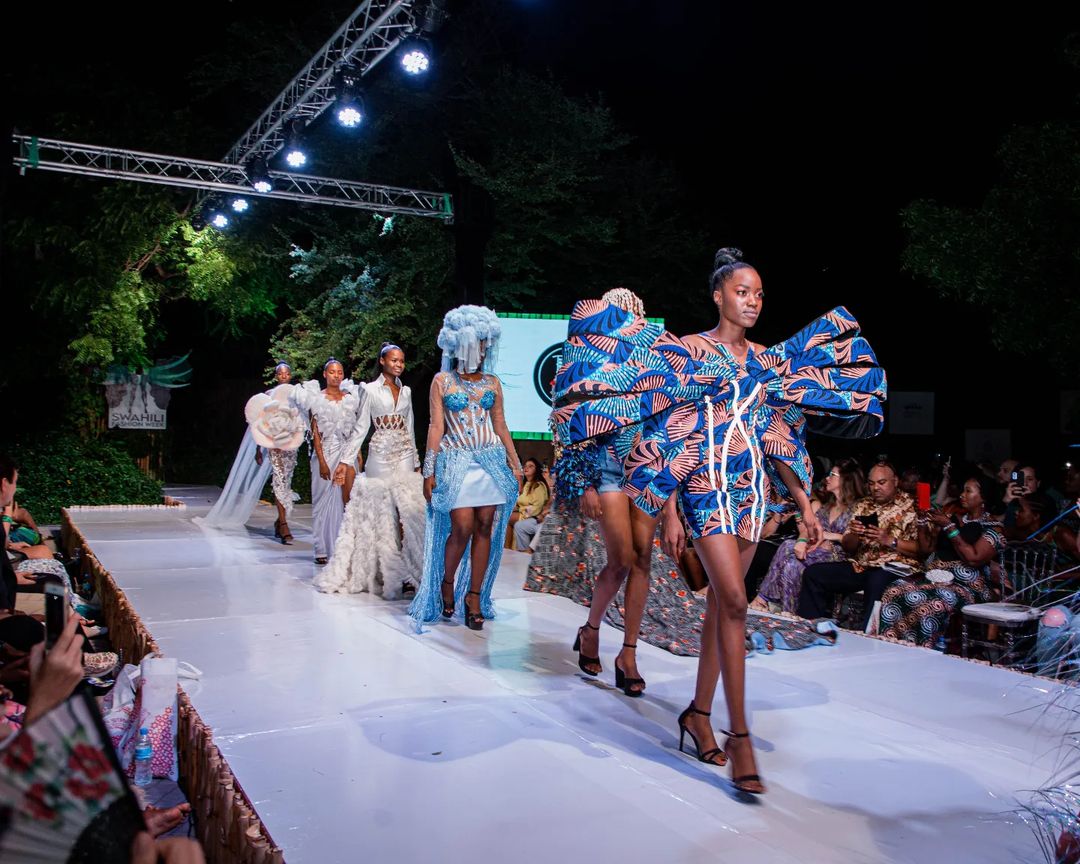 SFW 2023 [Photo Credit: SFW]
SFW 2023 [Photo Credit: SFW]
The expert also highlighted a common issue with fashion shows: "Many fashion shows run late, and when they're done, people start leaving without even asking for designers' business cards. Some events start late, and by the time they finish, attendees are eager to depart."
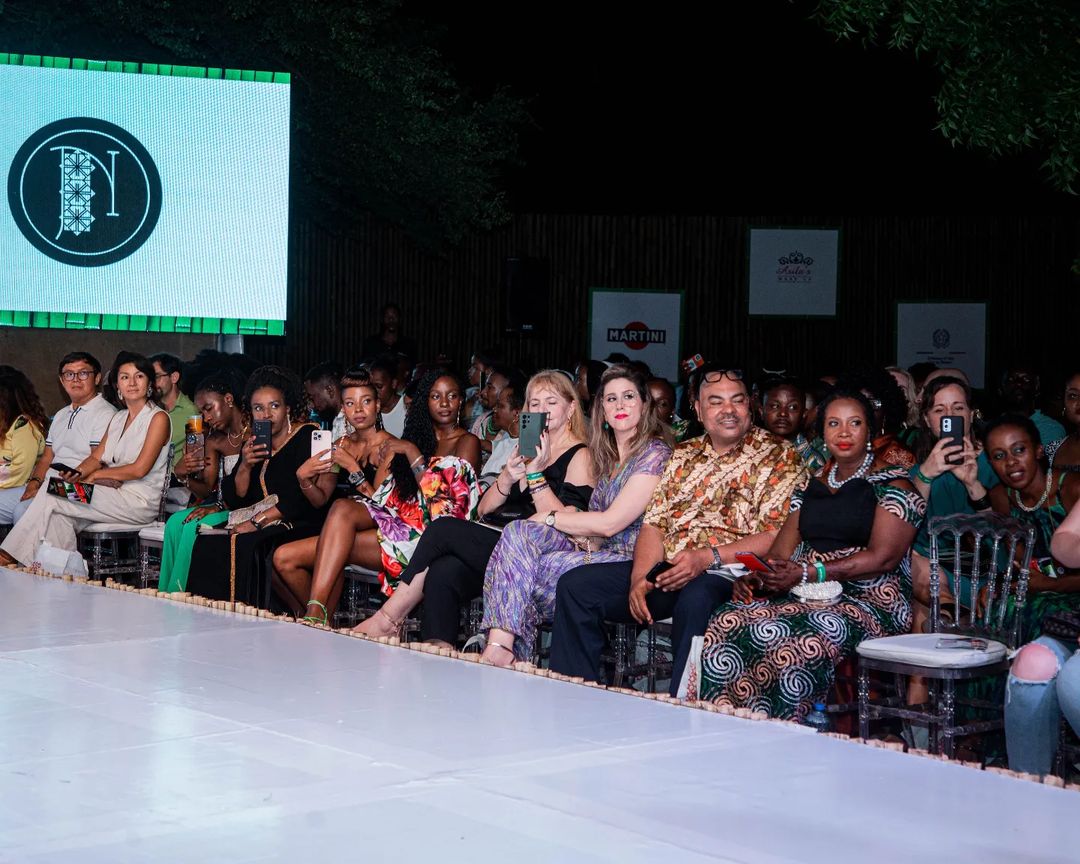 SFW 2023 [Photo Credit: SFW]
SFW 2023 [Photo Credit: SFW]
10 Confirmed Fashion Designers in SFW 2024
Despite these challenges, the 17th Edition of Swahili Fashion Week & Awards 2024 has secured commitments from 10 diverse and talented fashion designers. Each promises to bring unique and quality collections to the runway:
- Reen Fashionflair (Tanzania): A local fashion brand known for its vibrant, contemporary take on traditional Tanzanian textiles.
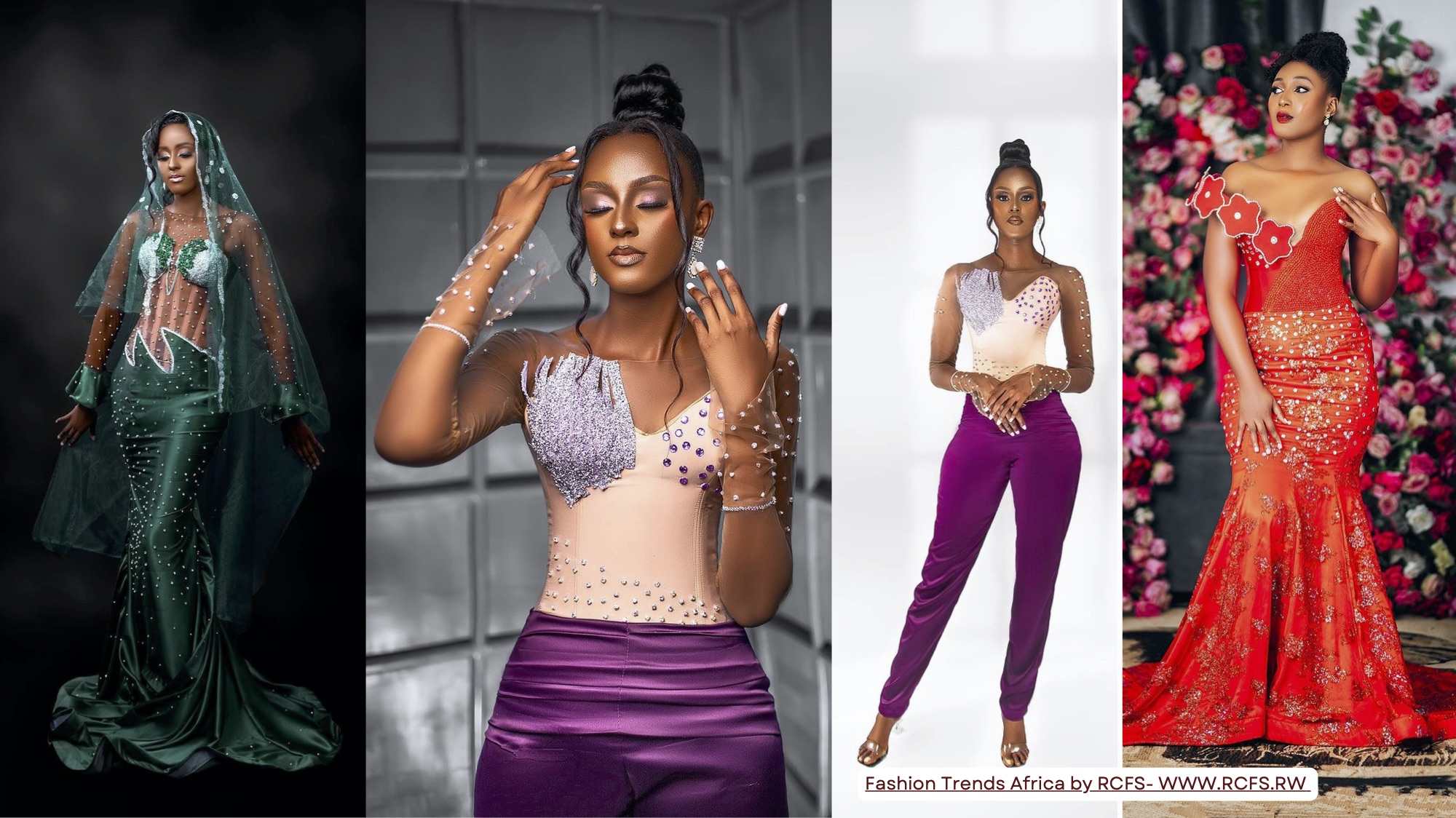
- Reen Collection (Tanzania): Another Tanzanian brand, related to Reen Fashionflair, focusing on ready-to-wear fashion with an African twist.
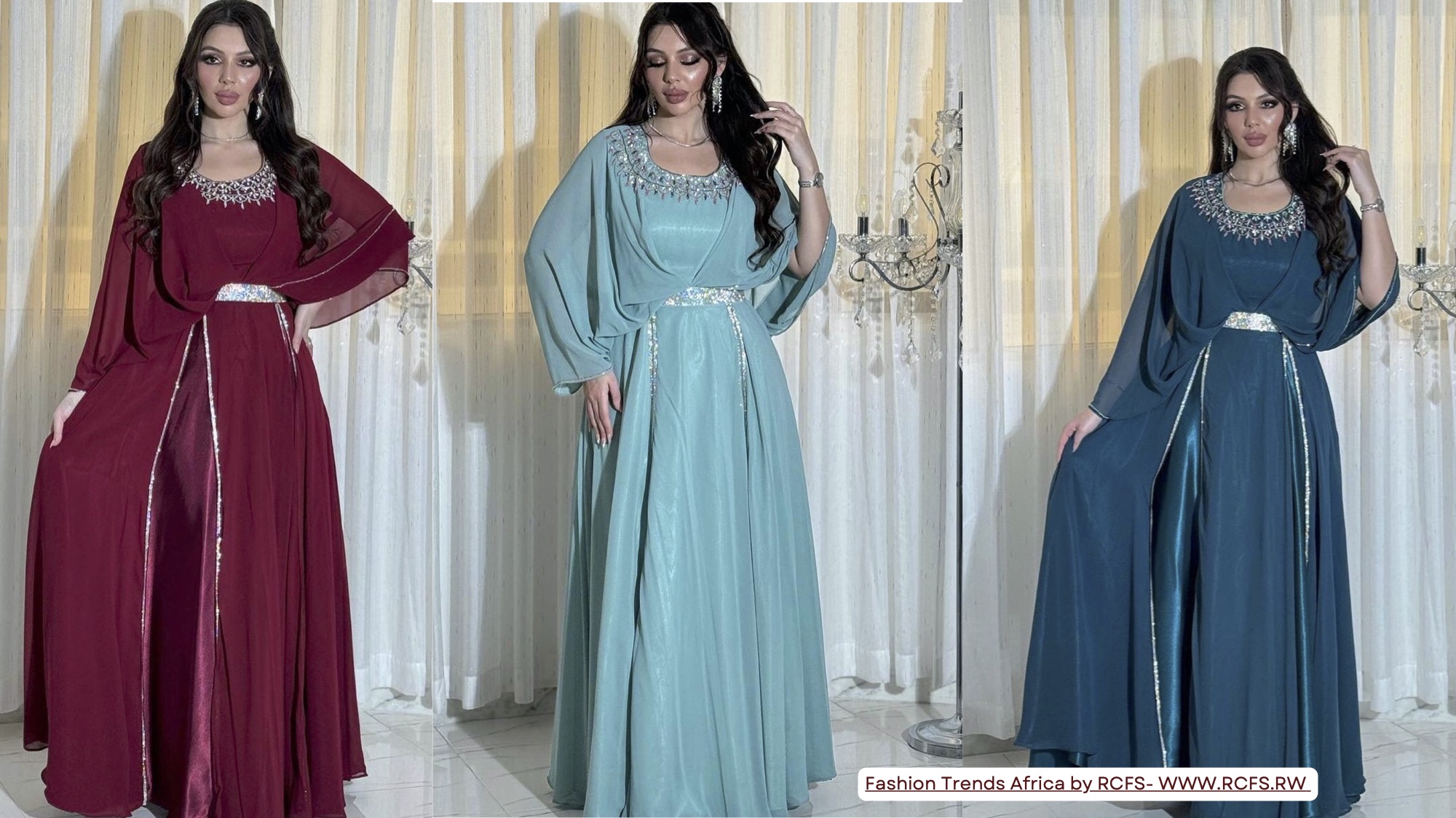
- Kushweeet Designs (Kenya): A Kenyan designer bringing East African street style to high fashion.
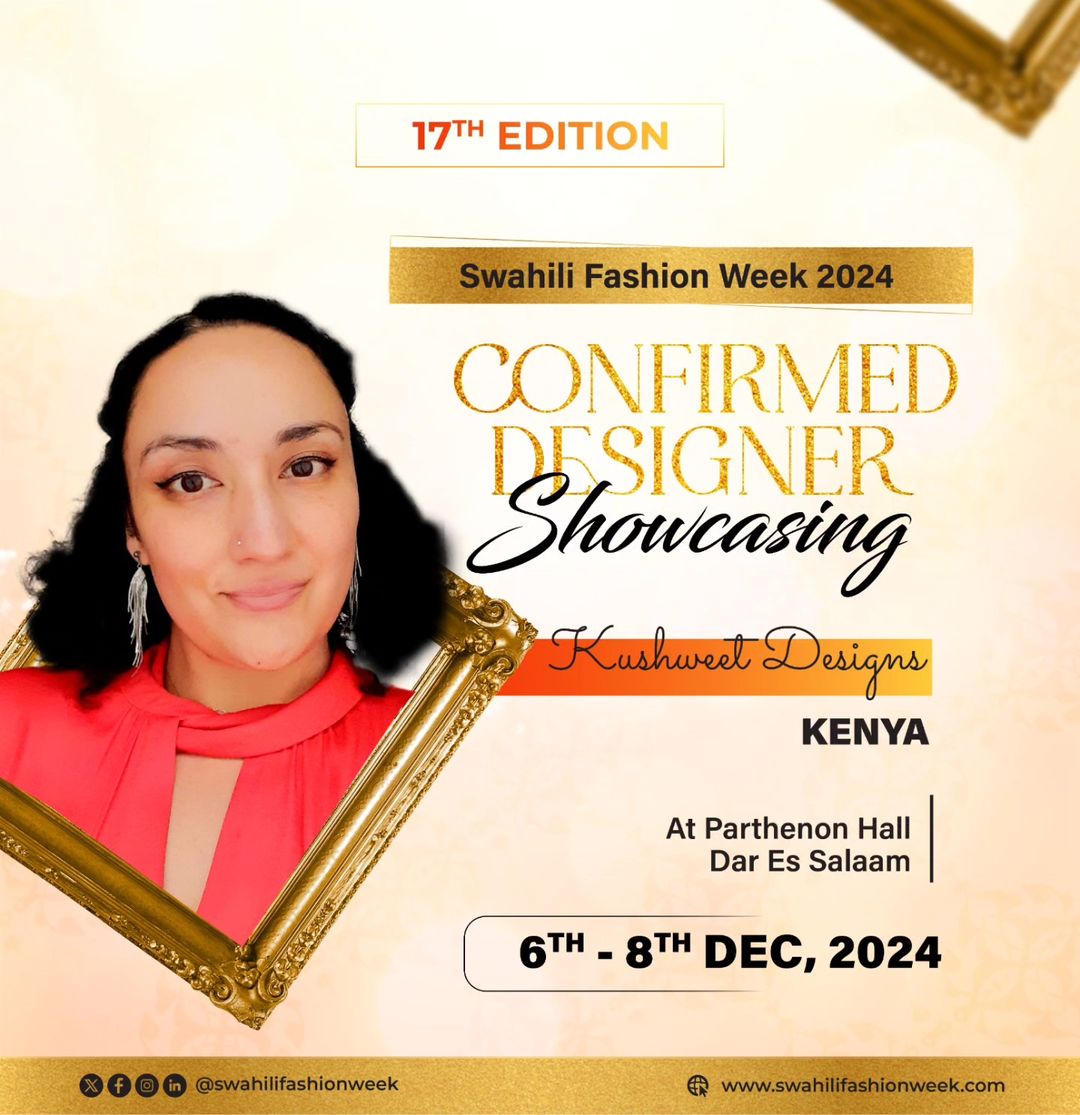
- Jojo African Design (Tanzania): A local brand celebrating the rich cultural heritage of Tanzania through modern fashion.
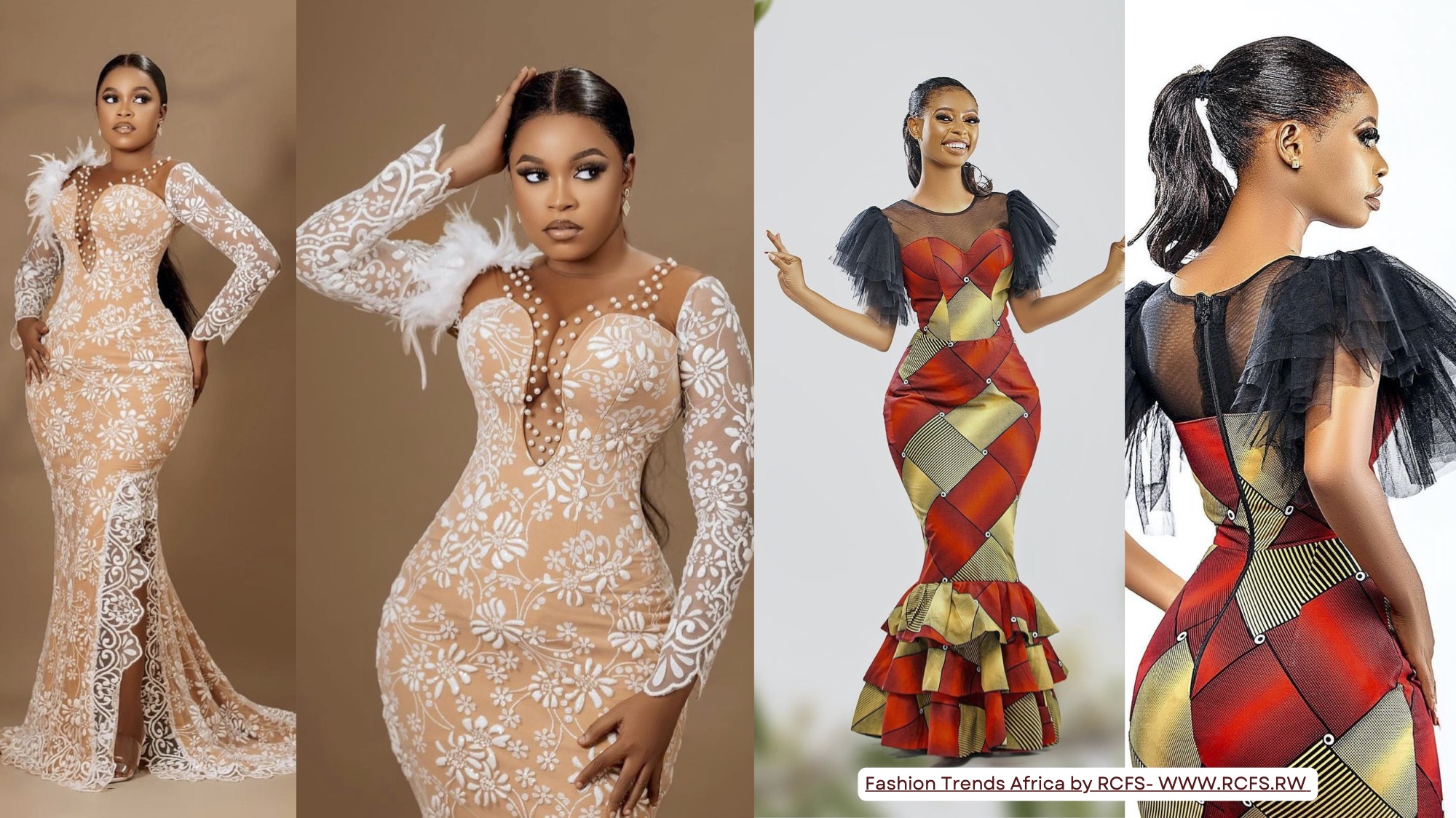
- Iterik (Uganda): A rising star in Ugandan fashion, known for bold prints and innovative silhouettes.
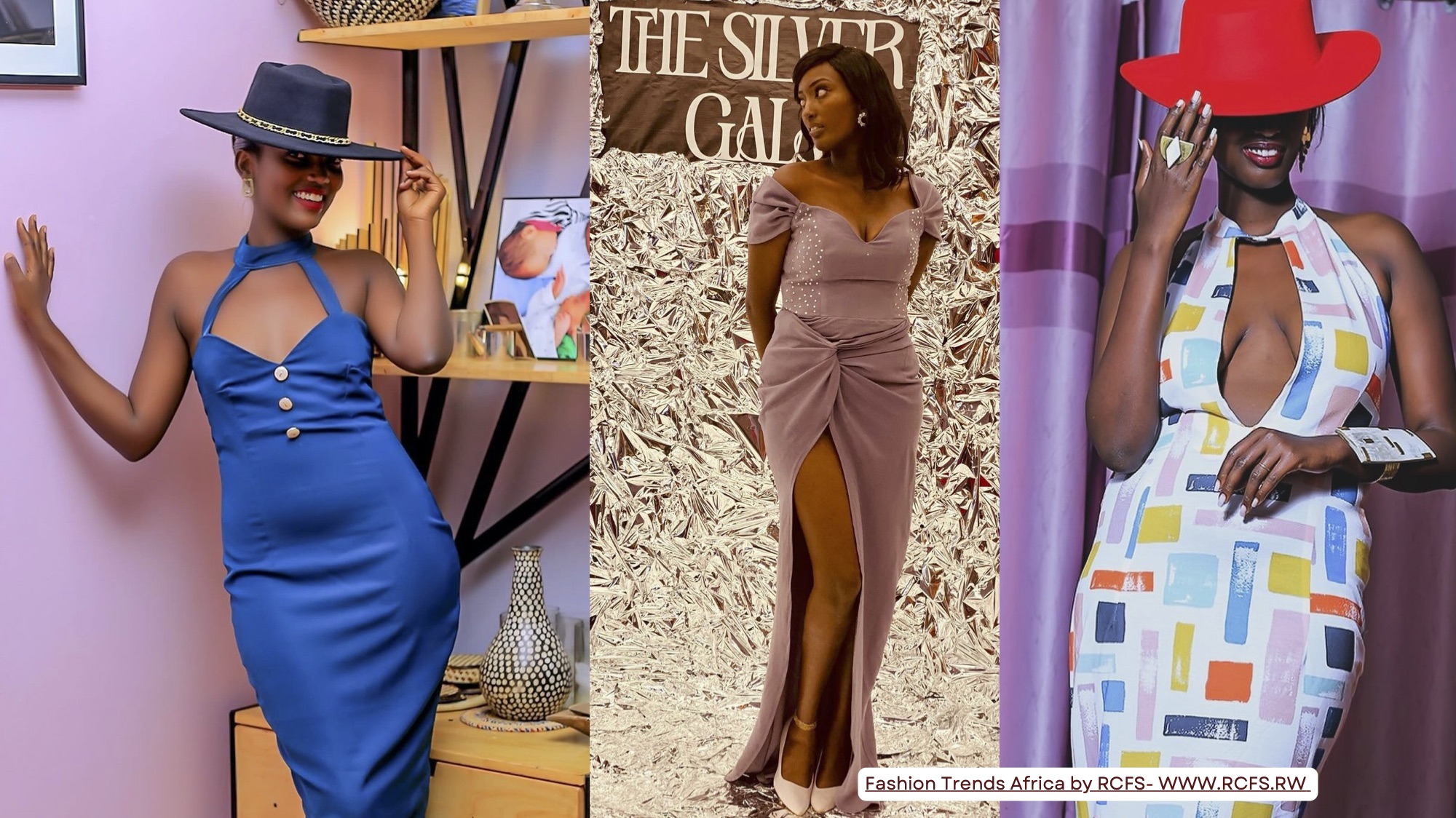
- Jescudo (Ethiopia): An Ethiopian designer blending traditional craftsmanship with contemporary design.
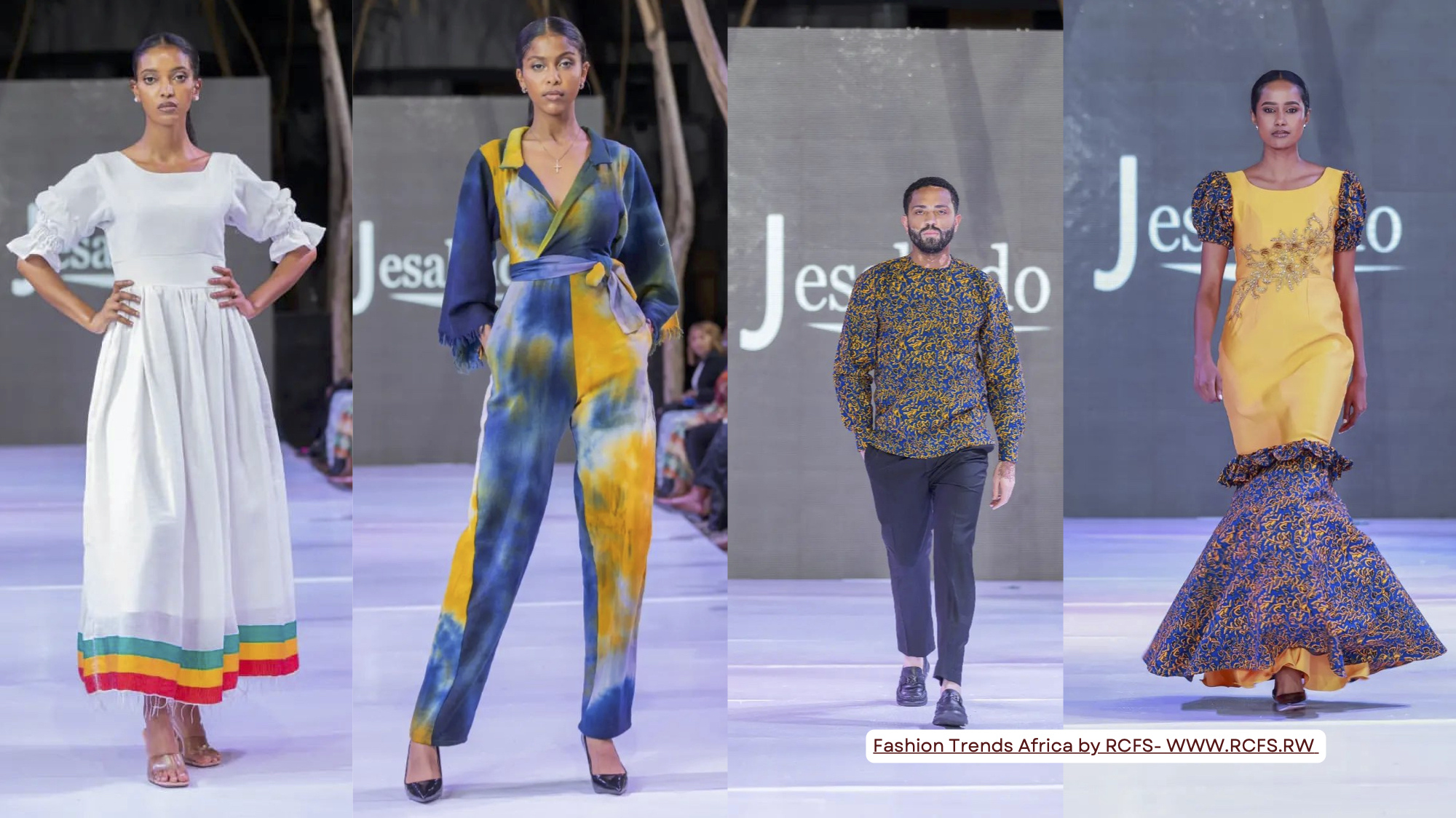
- BK Brand (Tanzania): A local Tanzanian brand focusing on sustainable and ethical fashion practices.
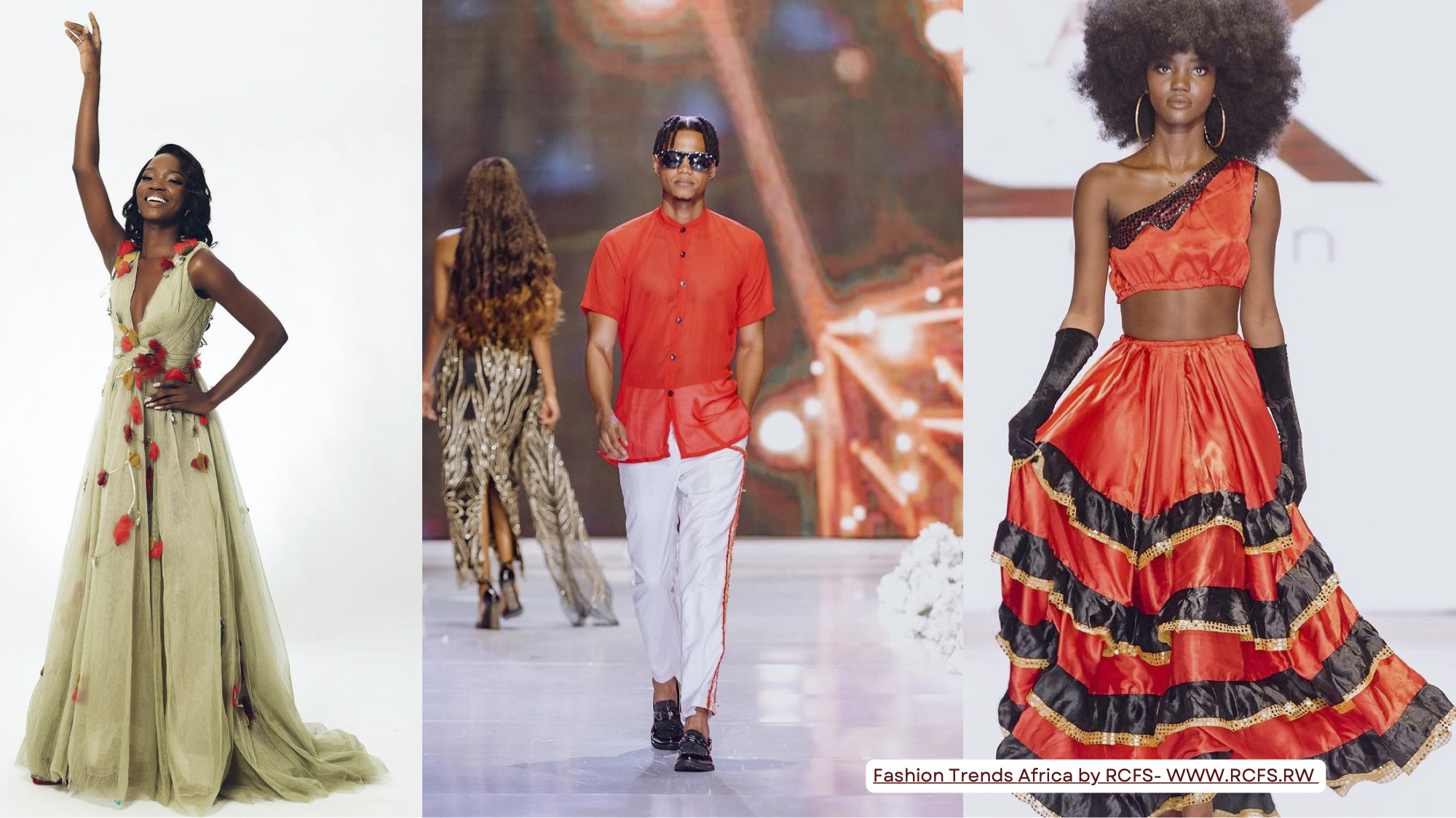
- Dida (Italy): An Italian designer bringing international flair to the event, possibly incorporating African influences into European designs.
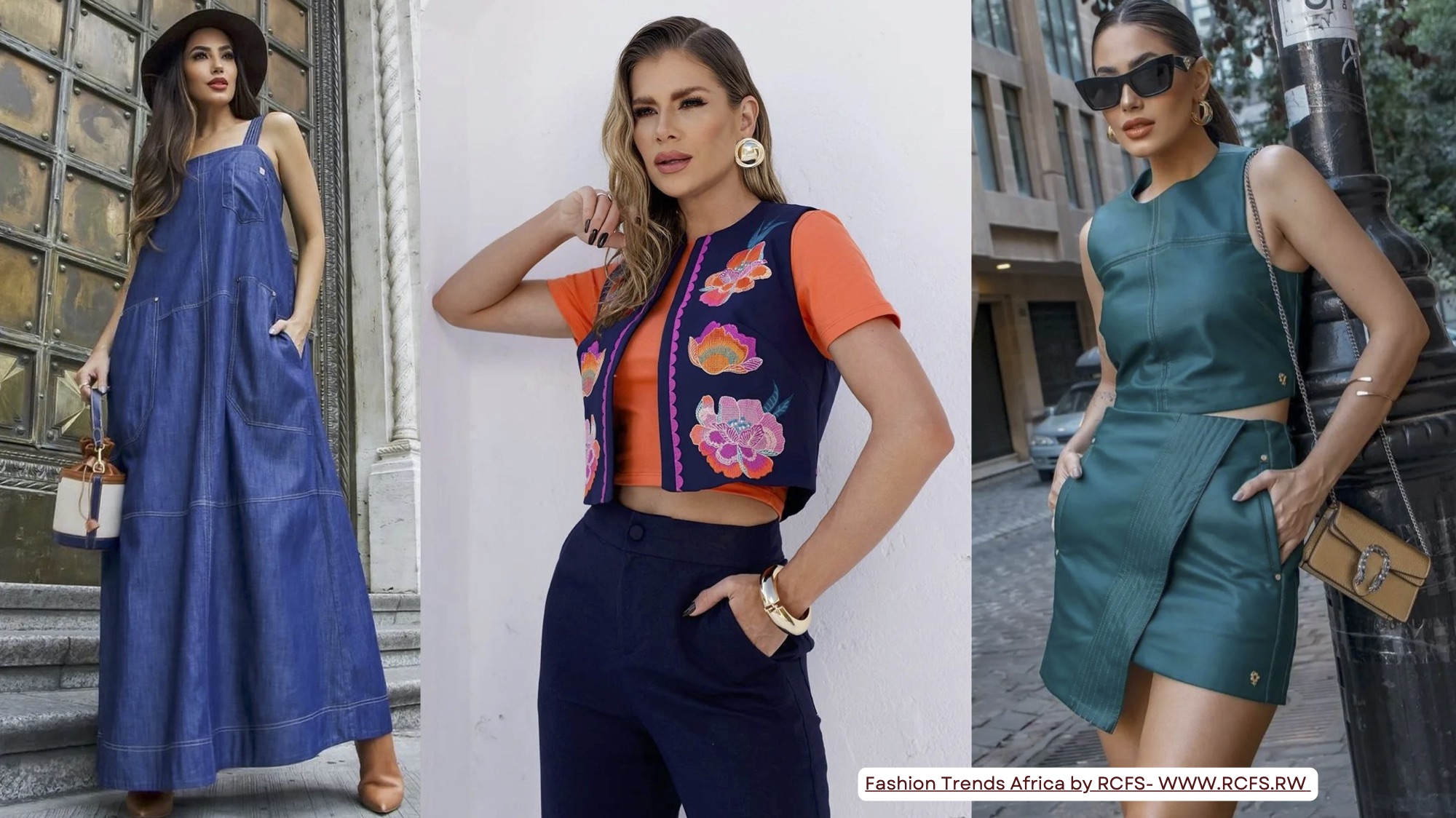
- Abestina Apparel (Tanzania): A local brand known for its elegant, minimalist approach to Tanzanian fashion.
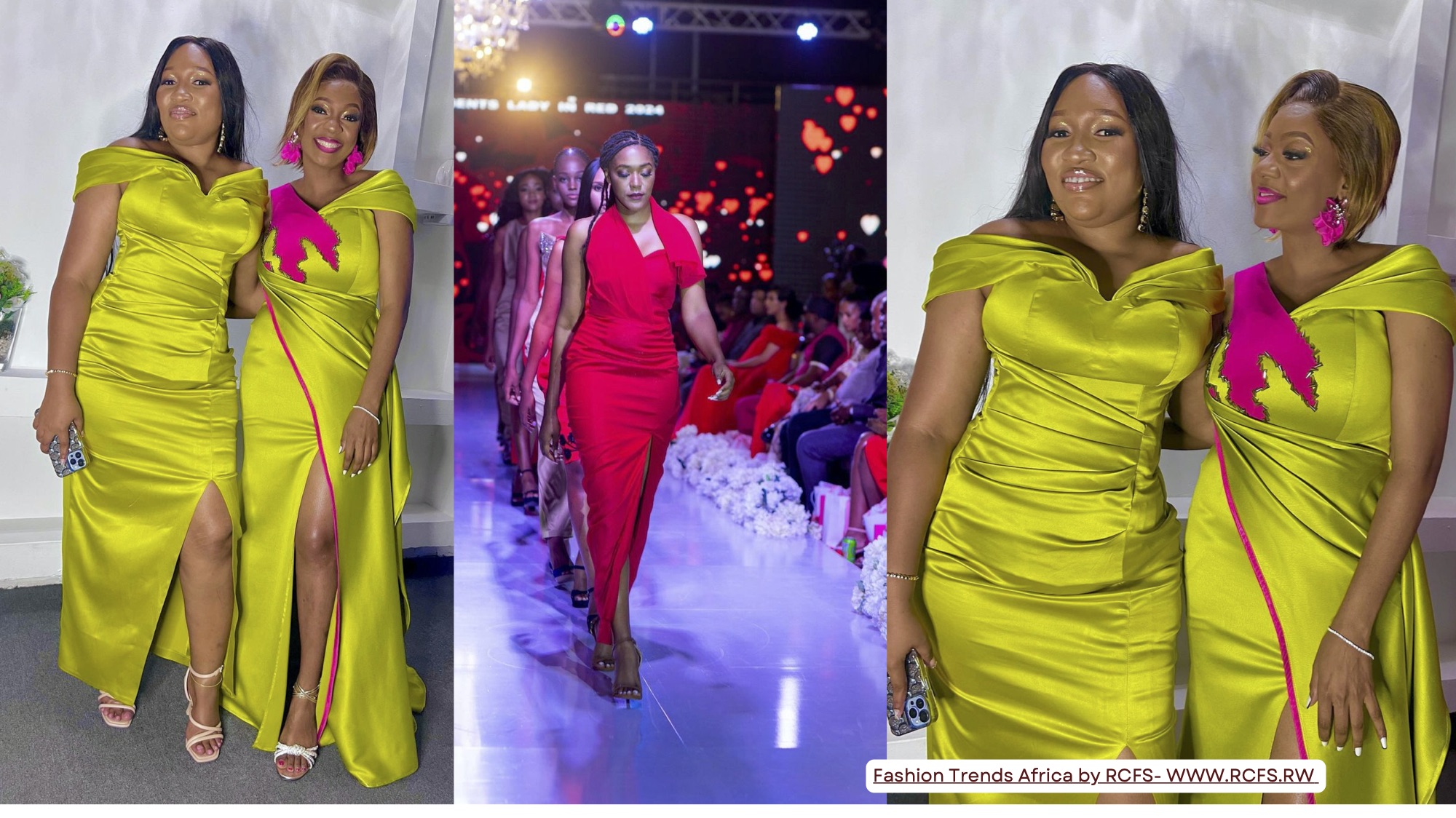
- The Seamstress (Tanzania): A Tanzanian brand celebrating the art of tailoring and custom-made fashion.
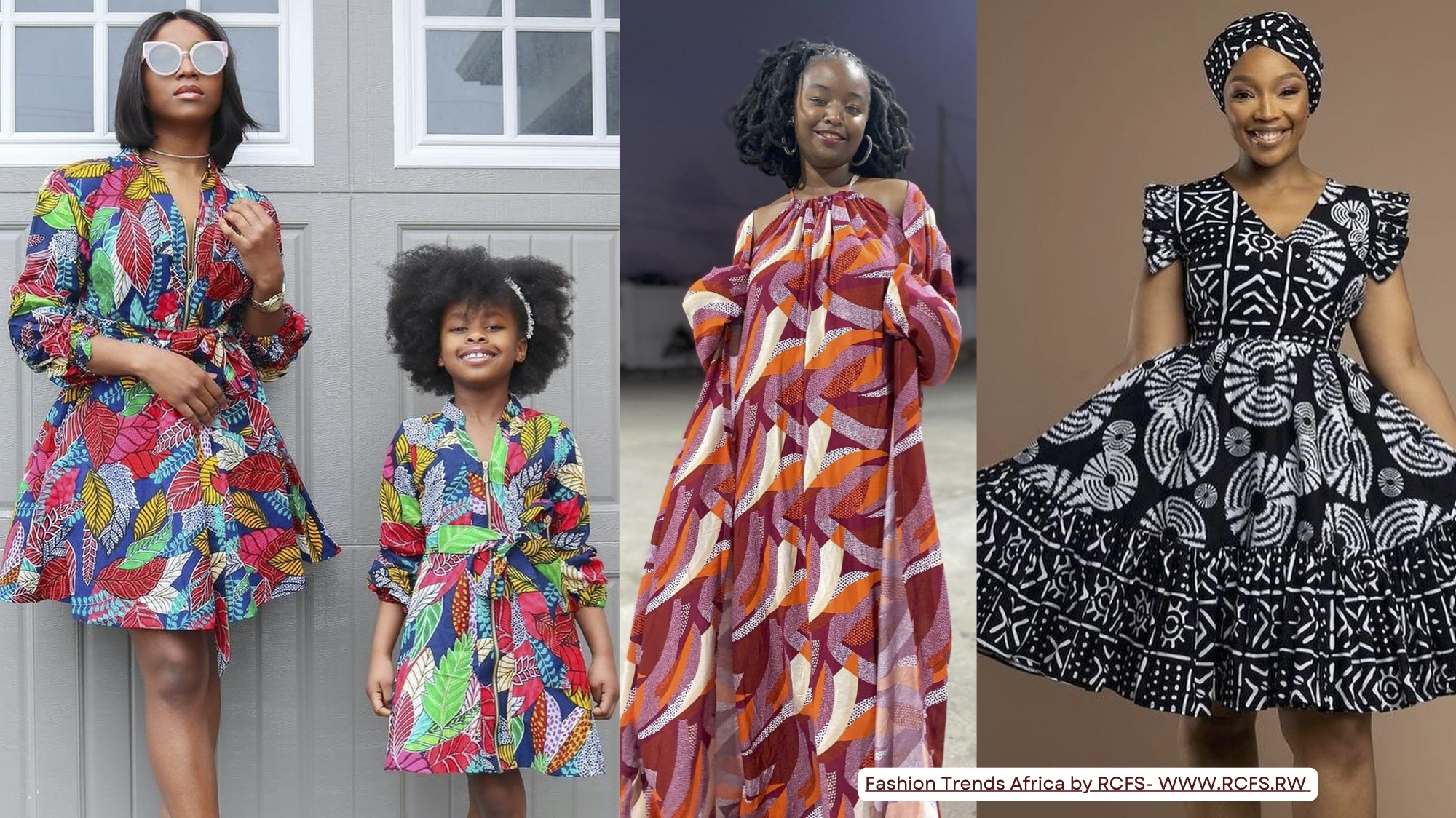
Expectations and Opportunities
The diverse lineup of designers promises an exciting showcase of talent from across East Africa and beyond. Local Tanzanian designers will have the opportunity to learn from international experts, exchange ideas, and potentially form collaborations that could elevate their brands to the global stage.
For international designers like Dida from Italy, the event offers a unique chance to tap into the growing East African market and gain inspiration from the region's rich cultural heritage.
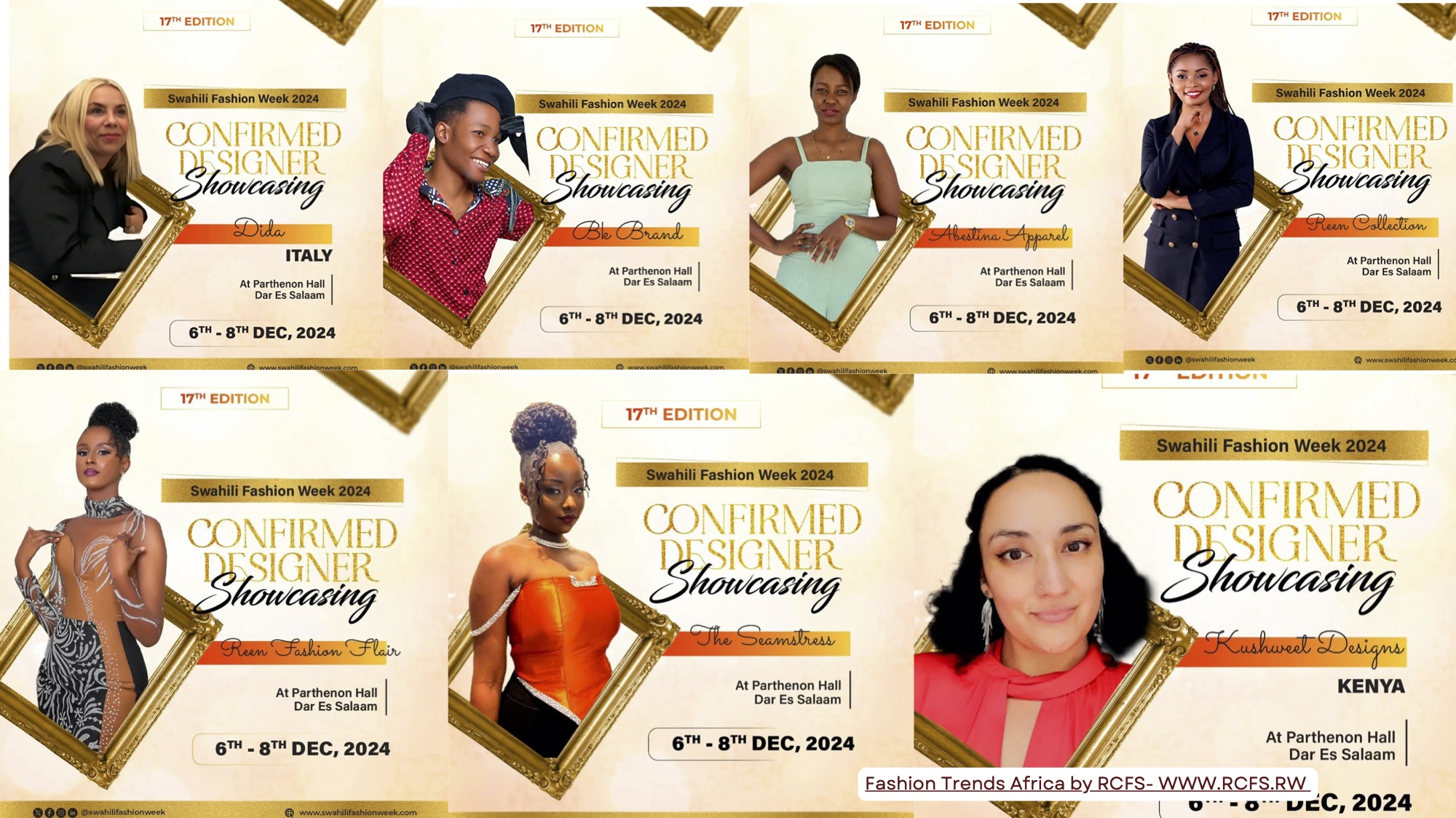
The inclusion of designers from neighboring countries like Kenya, Uganda, and Ethiopia highlights the event's regional significance and its potential to foster cooperation within the East African fashion industry.
As the 17th Edition of Swahili Fashion Week & Awards 2024 approaches, anticipation builds for the innovative designs and sustainable fashion solutions that will grace the runway. With its focus on clean energy and sustainability, the event is poised to make a significant impact on the fashion industry, both locally and internationally.

The success of this year's event could pave the way for increased international participation in future editions, solidifying Tanzania's position as a hub for fashion innovation in East Africa. As the fashion world turns its eyes to Dar es Salaam, the 10 confirmed designers stand ready to showcase the best of what Swahili fashion has to offer.
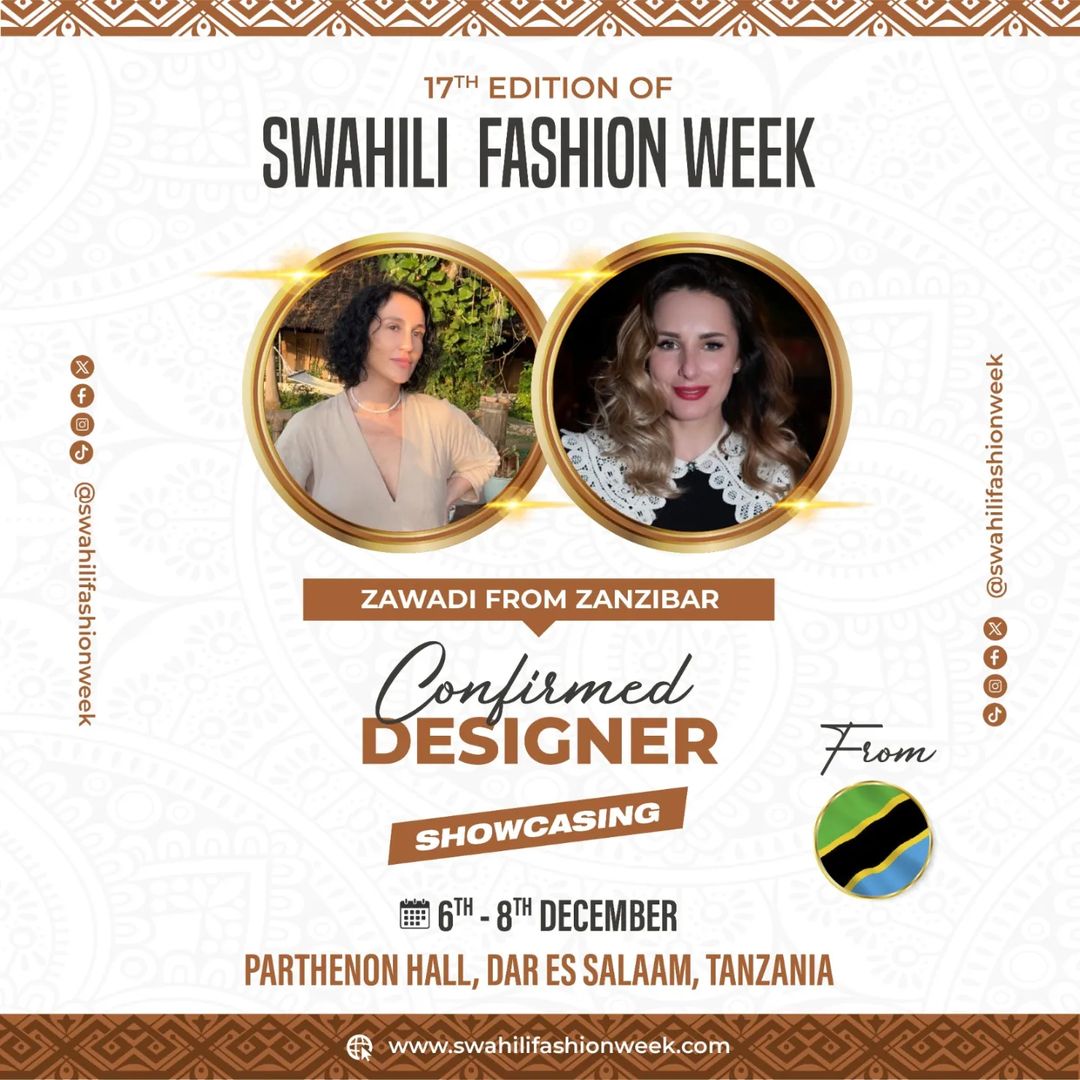
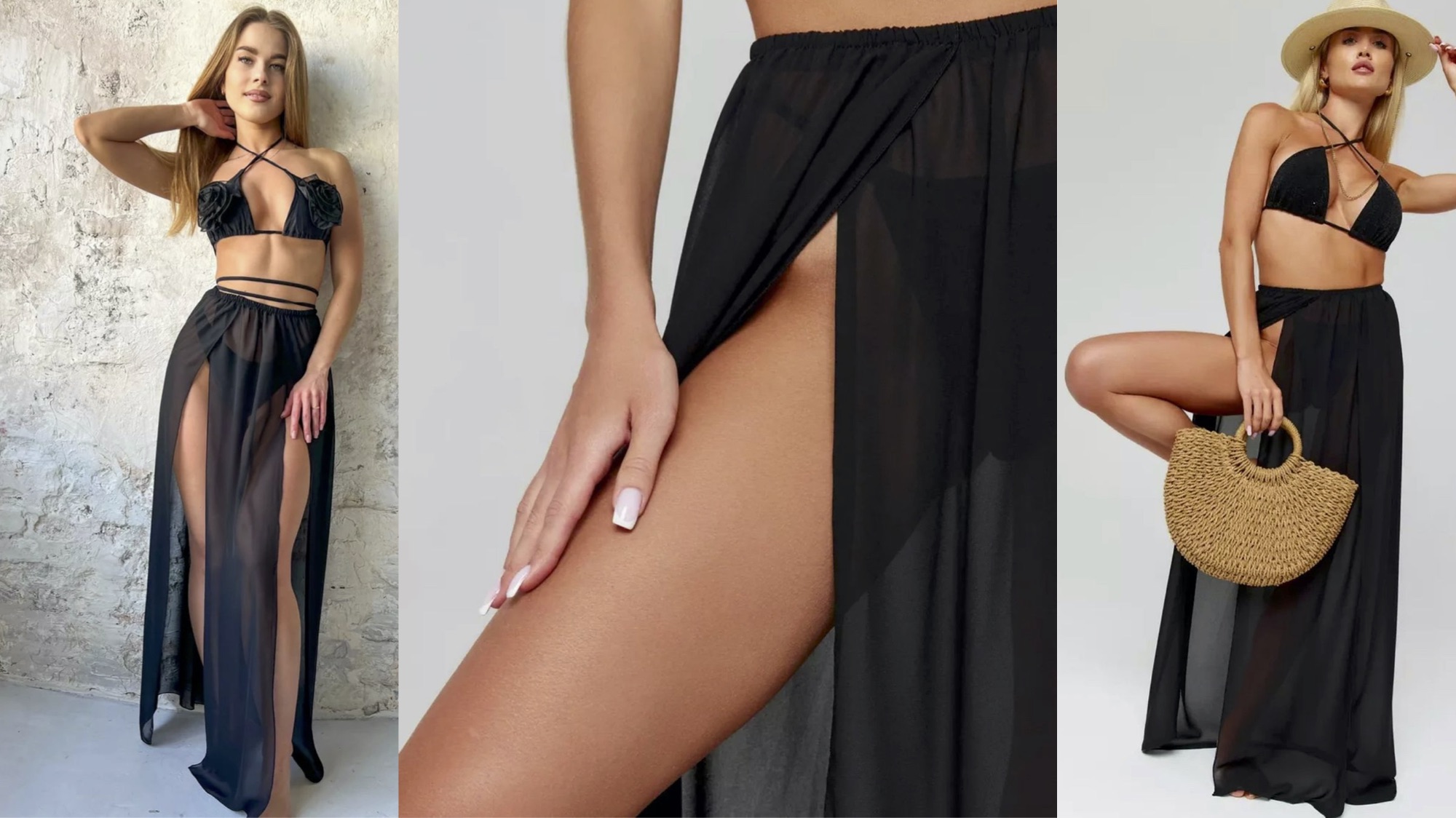
With a remarkable lineup of gifted designers from all across Africa and beyond, meet @zawadifromzanzibar from #zanzibar- The 17th edition of Swahili Fashion Week is sure to be an exciting and thrilling celebration of fashion.
Who are 10 Confirmed Fashion Designers at the 17th Edition of Swahili Fashion Week & Awards 2024?
The 17th Edition of Swahili Fashion Week & Awards 2024 is set to showcase the best of East African fashion, with a particular focus on boosting Tanzania's fashion industry. This prestigious event brings together fashion entrepreneurs, experts, and investors, creating a vibrant platform for both local and international designers to display their creativity and connect with industry professionals.
The Swahili Fashion Week's primary objective is to elevate Tanzania's fashion industry on the global stage. According to the event's website, it provides "a unique platform for fashion enthusiasts and textile professionals to connect, share ideas, skills, and insights, and find new collaborative opportunities that can help Tanzania achieve its ambition of industrialization."
The fashion week brings together the fashion forum, runway shows, and the Washington Benbella Emerging Designers Competition 2024 which gives awards to the winner. Key objectives of the fashion forum include: Raising awareness of Tanzania's textile and apparel industry and discussing challenges and opportunities within the sector as well as establishing a symbiotic relationship between Tanzania's fashion scene and the international apparel industry.
 Collection of @mkwanduleson at the Swahili Fashion Week 2023 runway show
Collection of @mkwanduleson at the Swahili Fashion Week 2023 runway show
Sustainability Theme: "Cooking Clean Energy"
This year's event promises to be unique, with a strong emphasis on promoting sustainability in fashion. The organizers have chosen an intriguing theme: "Cooking Clean Energy" (Nishati Safi ya Kupikia in Kiswahili). They challenge participants to "unleash your creativity" and demonstrate how fashion can be fused with sustainability principles.
The Cooking Clean Enegery concept that will be awarded to the winners, is from the Washington Benbella Emerging Designers Competition 2024 which was created in memory of Washington Benbella is a Tanzanian male born in 1989 and died in 2016. He was a young man who was very passionate about his work. He worked with 361 Degrees Africa for more than five years as a Fashion Coordinator and later as the project manager for Swahili Fashion Week.
 In the poster is the picture of Mr. Washington Benbella a Tanzanian born in 1989 and died in 2016
In the poster is the picture of Mr. Washington Benbella a Tanzanian born in 1989 and died in 2016
This platform is given by Swahili Fashion Week and Awards to young emerging designers who want to create brands and use Swahili Fashion Week as a stepping stone towards achieving their dreams. It was created in honor of celebrating Washington Benbella, SFW project manager. The call of entry was announced and the chosen finalist will compete for the Washington Benbella Emerging Designers Competition Award 2024, pushing them to be the next fashion icon.
International Participation and Challenges
While the event aims to attract international designers, industry experts note that securing such participation can be challenging. A fashion expert closely following East African fashion events shared insights on the matter:
"Nowadays, it is hard to find international fashion designers willing to book a flight and attend an event outside their country because they may not recoup their investments. Organizers need to convince them by showcasing opportunities around the fashion show, such as exhibitions or pop-up stores, where designers can meet clients directly."
 SFW 2023 [Photo Credit: SFW]
SFW 2023 [Photo Credit: SFW]
The expert also highlighted a common issue with fashion shows: "Many fashion shows run late, and when they're done, people start leaving without even asking for designers' business cards. Some events start late, and by the time they finish, attendees are eager to depart."
 SFW 2023 [Photo Credit: SFW]
SFW 2023 [Photo Credit: SFW]
10 Confirmed Fashion Designers in SFW 2024
Despite these challenges, the 17th Edition of Swahili Fashion Week & Awards 2024 has secured commitments from 10 diverse and talented fashion designers. Each promises to bring unique and quality collections to the runway:
- Reen Fashionflair (Tanzania): A local fashion brand known for its vibrant, contemporary take on traditional Tanzanian textiles.

- Reen Collection (Tanzania): Another Tanzanian brand, related to Reen Fashionflair, focusing on ready-to-wear fashion with an African twist.

- Kushweeet Designs (Kenya): A Kenyan designer bringing East African street style to high fashion.

- Jojo African Design (Tanzania): A local brand celebrating the rich cultural heritage of Tanzania through modern fashion.

- Iterik (Uganda): A rising star in Ugandan fashion, known for bold prints and innovative silhouettes.

- Jescudo (Ethiopia): An Ethiopian designer blending traditional craftsmanship with contemporary design.

- BK Brand (Tanzania): A local Tanzanian brand focusing on sustainable and ethical fashion practices.

- Dida (Italy): An Italian designer bringing international flair to the event, possibly incorporating African influences into European designs.

- Abestina Apparel (Tanzania): A local brand known for its elegant, minimalist approach to Tanzanian fashion.

- The Seamstress (Tanzania): A Tanzanian brand celebrating the art of tailoring and custom-made fashion.

Expectations and Opportunities
The diverse lineup of designers promises an exciting showcase of talent from across East Africa and beyond. Local Tanzanian designers will have the opportunity to learn from international experts, exchange ideas, and potentially form collaborations that could elevate their brands to the global stage.
For international designers like Dida from Italy, the event offers a unique chance to tap into the growing East African market and gain inspiration from the region's rich cultural heritage.

The inclusion of designers from neighboring countries like Kenya, Uganda, and Ethiopia highlights the event's regional significance and its potential to foster cooperation within the East African fashion industry.
As the 17th Edition of Swahili Fashion Week & Awards 2024 approaches, anticipation builds for the innovative designs and sustainable fashion solutions that will grace the runway. With its focus on clean energy and sustainability, the event is poised to make a significant impact on the fashion industry, both locally and internationally.

The success of this year's event could pave the way for increased international participation in future editions, solidifying Tanzania's position as a hub for fashion innovation in East Africa. As the fashion world turns its eyes to Dar es Salaam, the 10 confirmed designers stand ready to showcase the best of what Swahili fashion has to offer.


With a remarkable lineup of gifted designers from all across Africa and beyond, meet @zawadifromzanzibar from #zanzibar- The 17th edition of Swahili Fashion Week is sure to be an exciting and thrilling celebration of fashion.
In recent years, Rwanda's female models have been making waves on the international fashion scene, gracing runways from New York to Paris, Milan, and London. Their success raises intriguing questions: How have these Rwandan models managed to break into the competitive global fashion industry? And do they embody the spirit of Ndabaga, a legendary figure in Rwandan history known for her bravery and defiance of traditional gender roles?
The Rise of Rwandan Models on the Global Stage
The journey of Rwandan women in modeling is a relatively recent phenomenon, especially when viewed against the backdrop of the country's cultural history. Traditionally, Rwandan women were known for their beauty, secrecy, and responsibility in taking care of family and home. However, their roles were often limited, with certain jobs and activities considered off-limits.
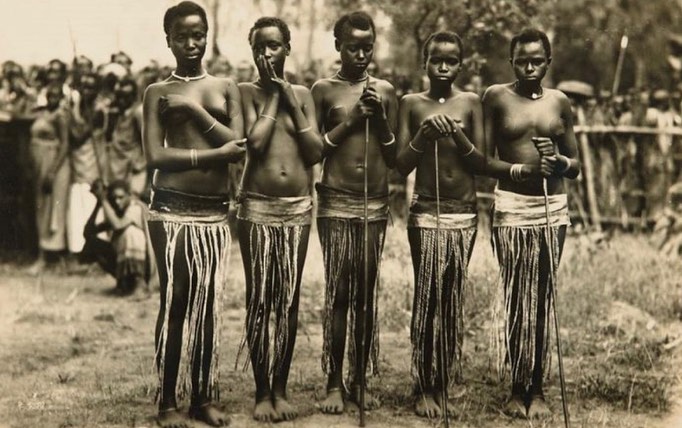 Rwanda's women earlier in 1880 [Photo Credit: MR]
Rwanda's women earlier in 1880 [Photo Credit: MR]
The 1994 Tutsi Genocide marked a turning point for women's roles in Rwandan society. In the aftermath, women played a crucial role in helping the country recover from this tragedy. Gradually, societal norms began to shift, allowing women to enter previously male-dominated fields, including modeling.
Initially, modeling was viewed with skepticism by many Rwandans, often dismissed as a frivolous or even disreputable profession. However, through the efforts of pioneering individuals and agencies, modeling has gained recognition and respect as a legitimate career path.
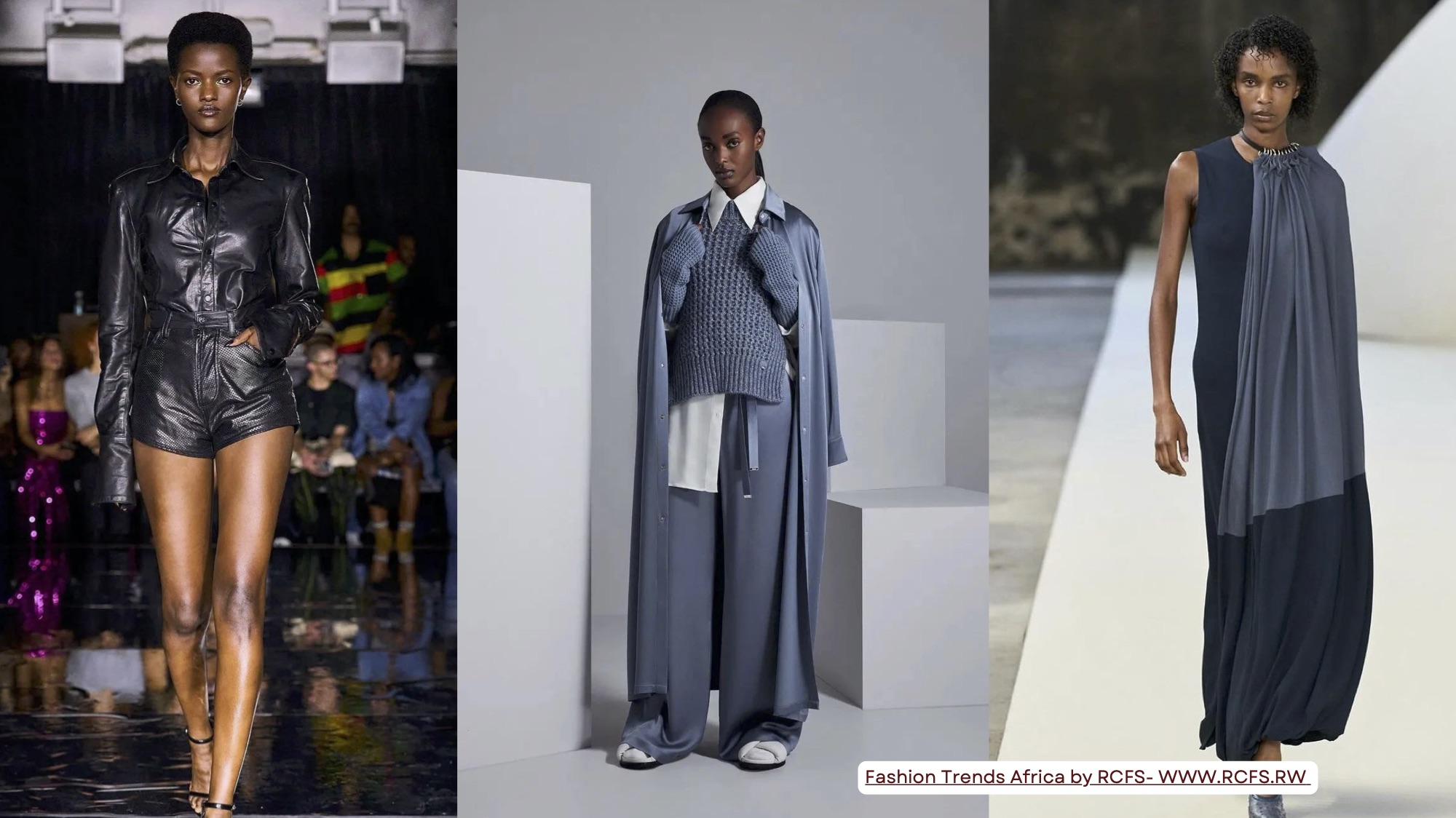 Models: Anifa Umufite, Isheja Morella, and Christine Munezero [Photo credit: IG Models]
Models: Anifa Umufite, Isheja Morella, and Christine Munezero [Photo credit: IG Models]
Spotlight on Rwanda's International Models
Let's take a closer look at some of the Rwandan models who have made their mark on the international fashion stage:
Anipha Umufite: Known professionally as Anipha Kay, she has walked for prestigious brands like Prada, Fendi, Dior, Hermes, and Dolce & Gabbana. In 2022, Umufite landed a deal with Kanye West's 'Yeezy Gap' collection and featured alongside supermodel Naomi Campbell. In May 2024, she appeared in Vogue Italia.
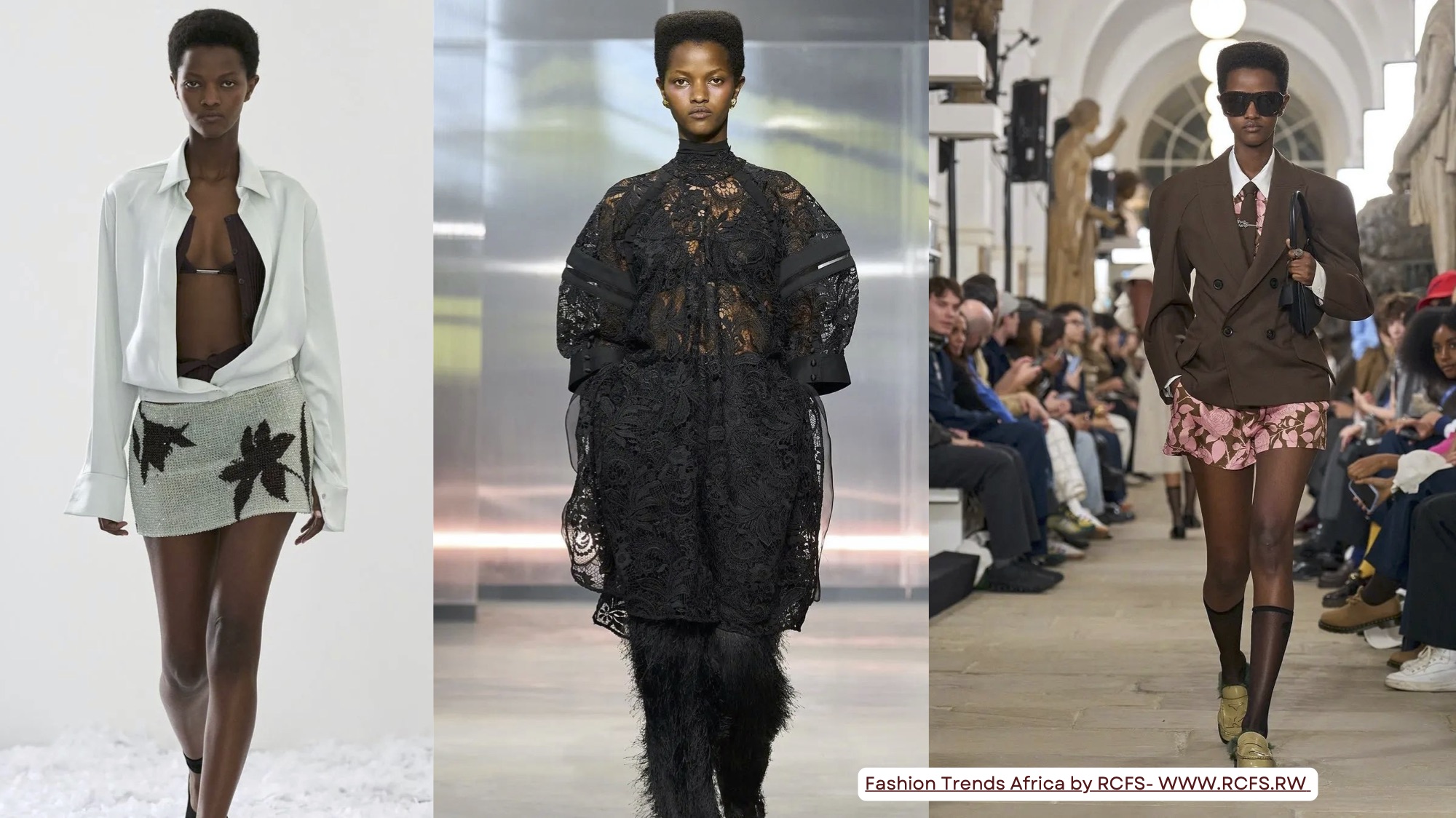
Mushikiwabo Denyse: She has showcased collections for Tommy Hilfiger, Balmain Paris, Victoria Beckham, Carven, Gucci, and Prada, among others. Mushikiwabo's talent has been recognized by agencies like The Wave, Select Models Paris, and Muse Model NYC.
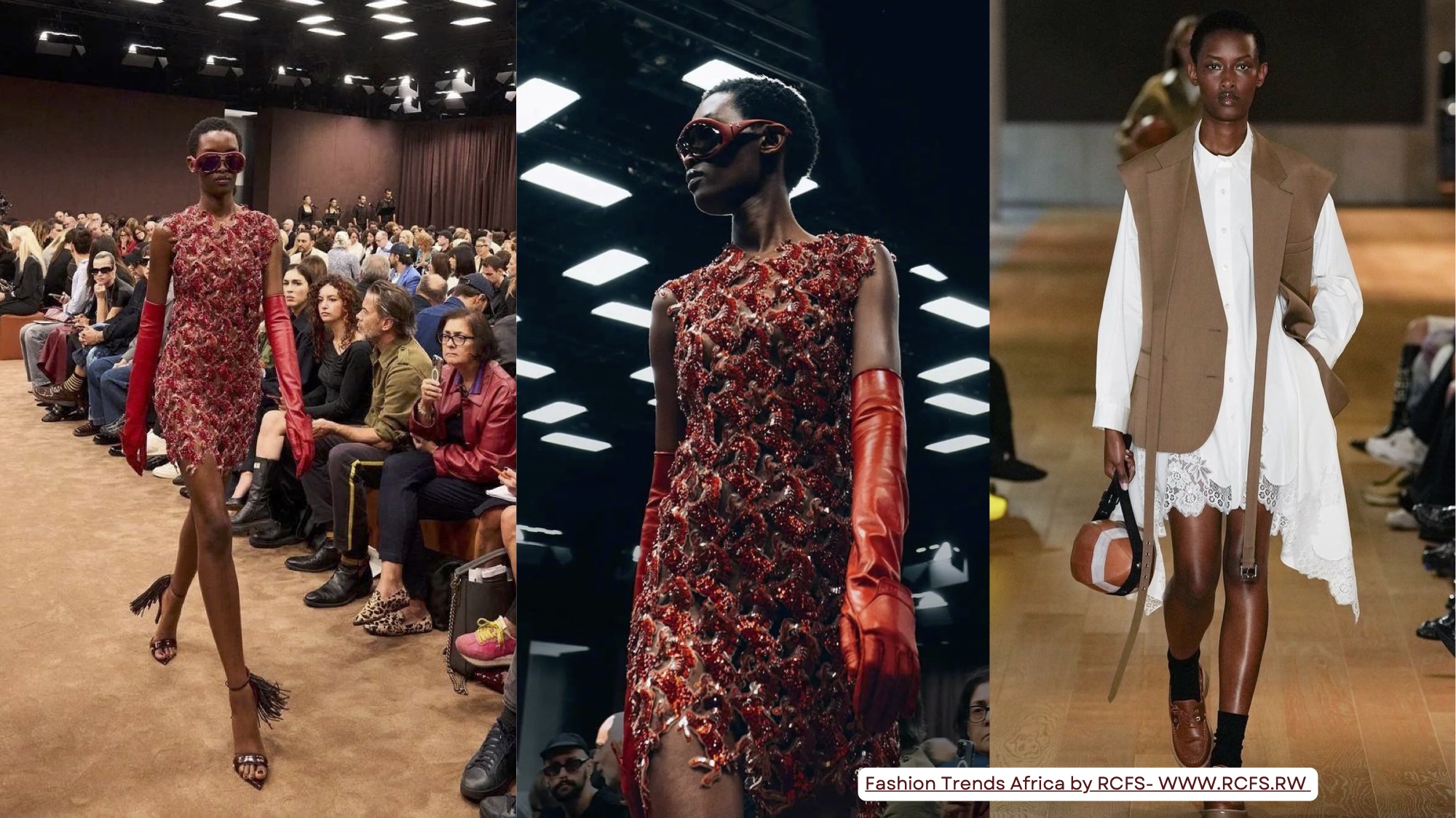
Christine Munezero: A regular at major fashion weeks in Milan, Paris, London, and New York, Munezero has worked with renowned brands such as Maison Valentino, Maison Margiela, Chloé, Dior, Versace, and Gucci.
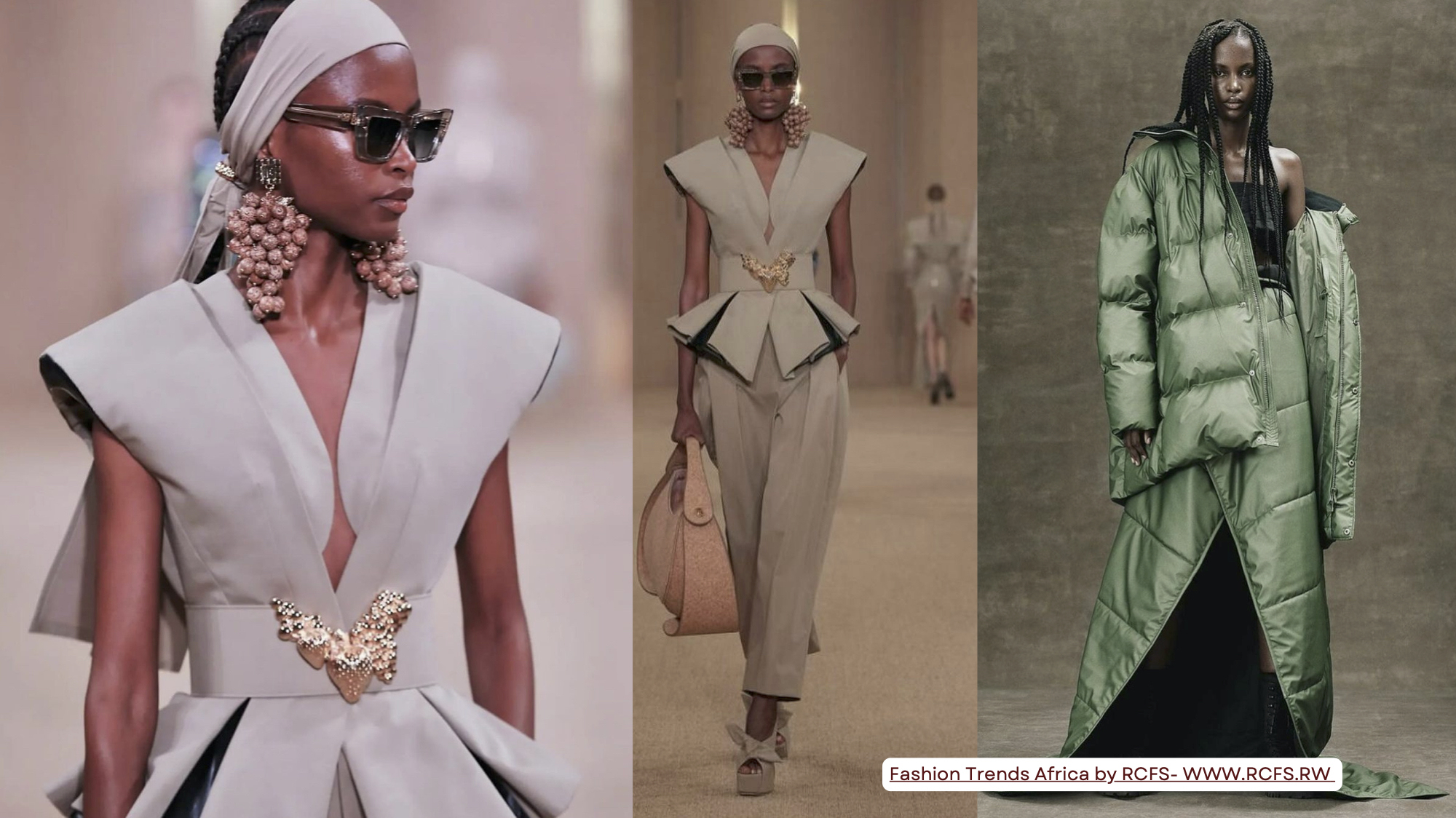
Umutoni Ornella: She presented designs for Loewe, Hermes, and MIU MIU at the Paris Fashion Week in February 2024. Umutoni is signed with agencies in the USA, Italy, France, Barcelona, and Greece.
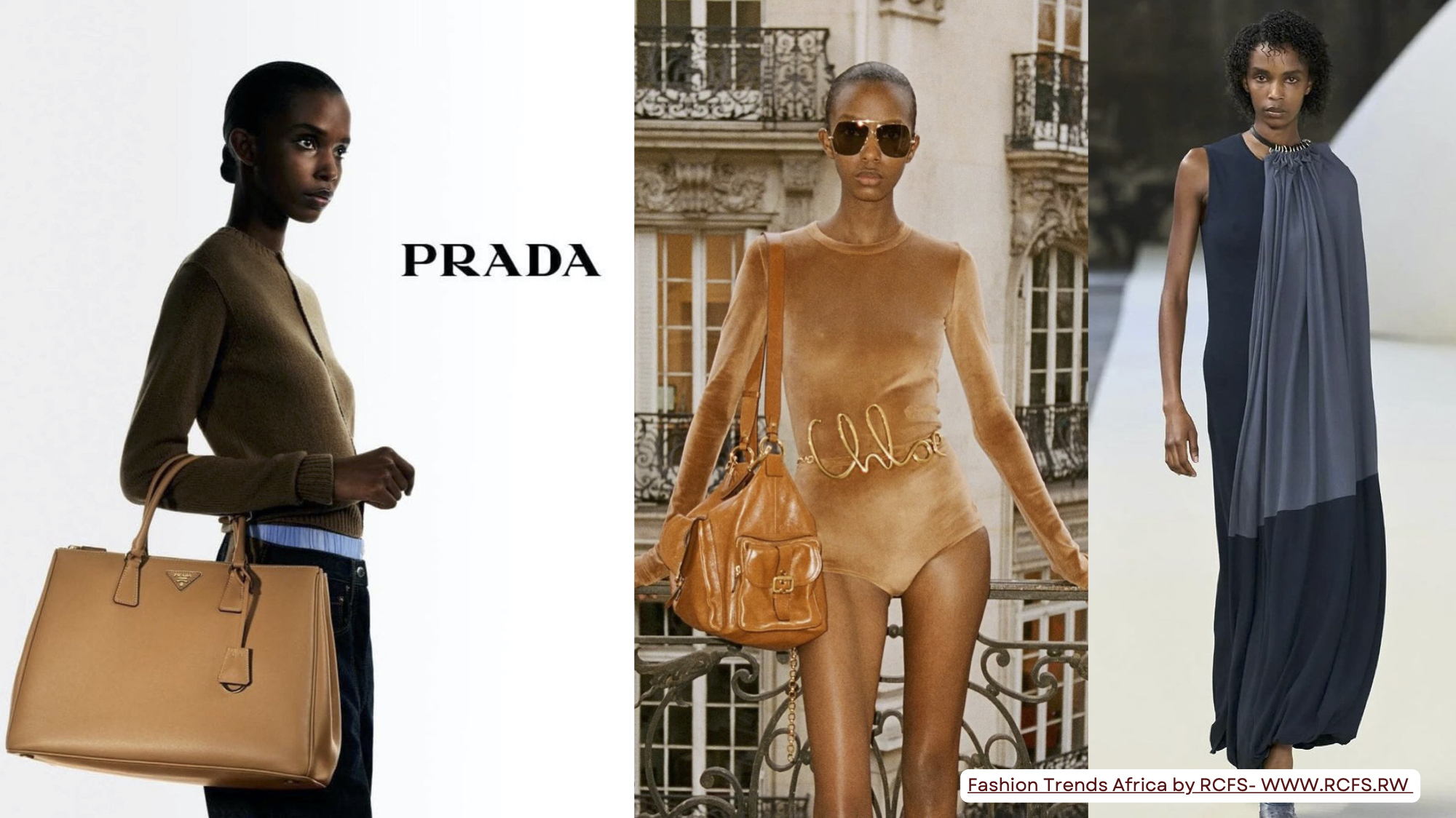
Esther Niyirera: Making her debut at Paris Fashion Week in early 2024, Niyirera has quickly risen to prominence, working with fashion brands from the UK, Italy, and France.
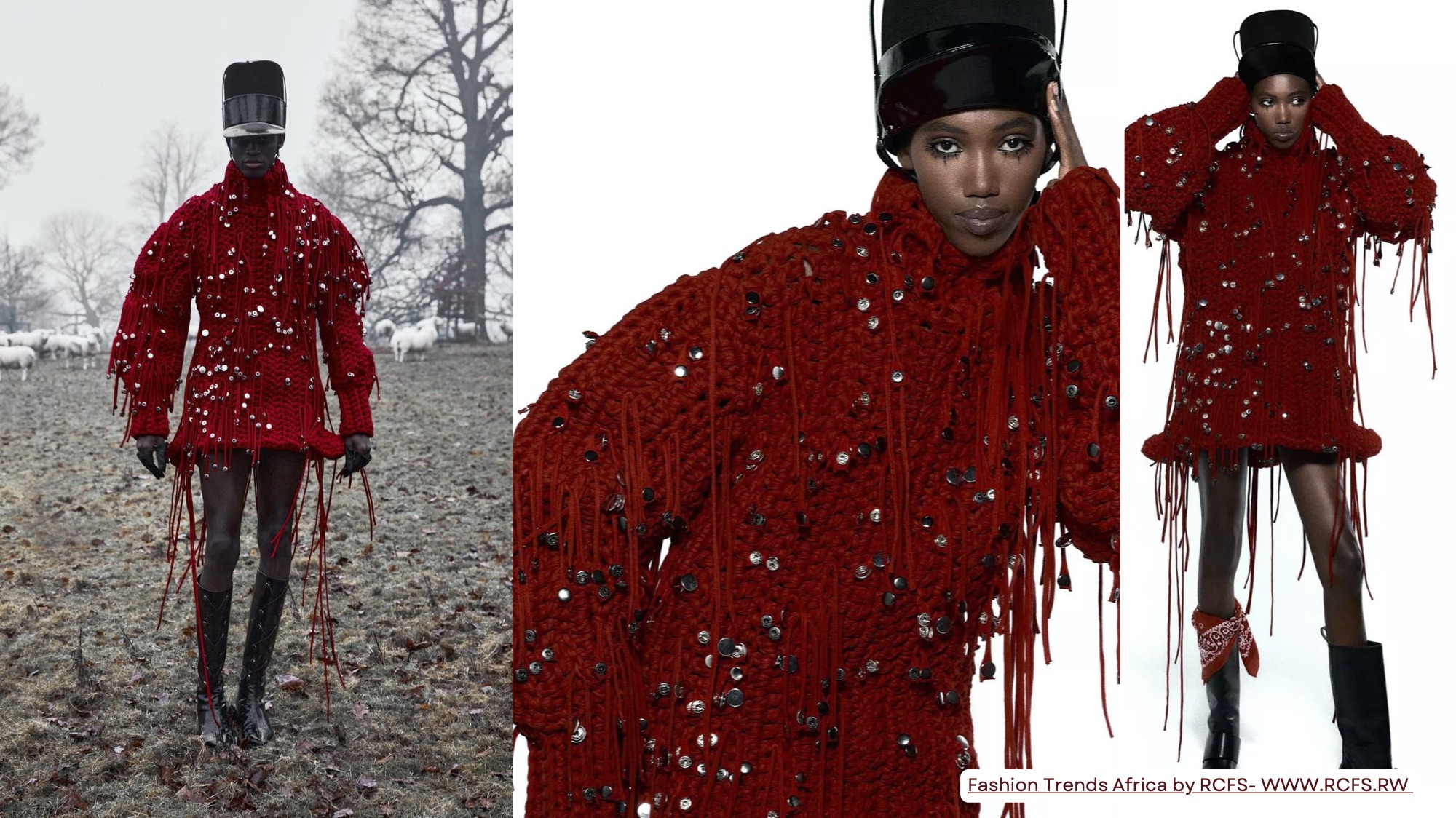
Jennifer Girukwishaka: Since her international debut in Paris in October 2021, Girukwishaka has become a familiar face on global fashion stages, represented by agencies in Italy, England, France, USA, and Spain.
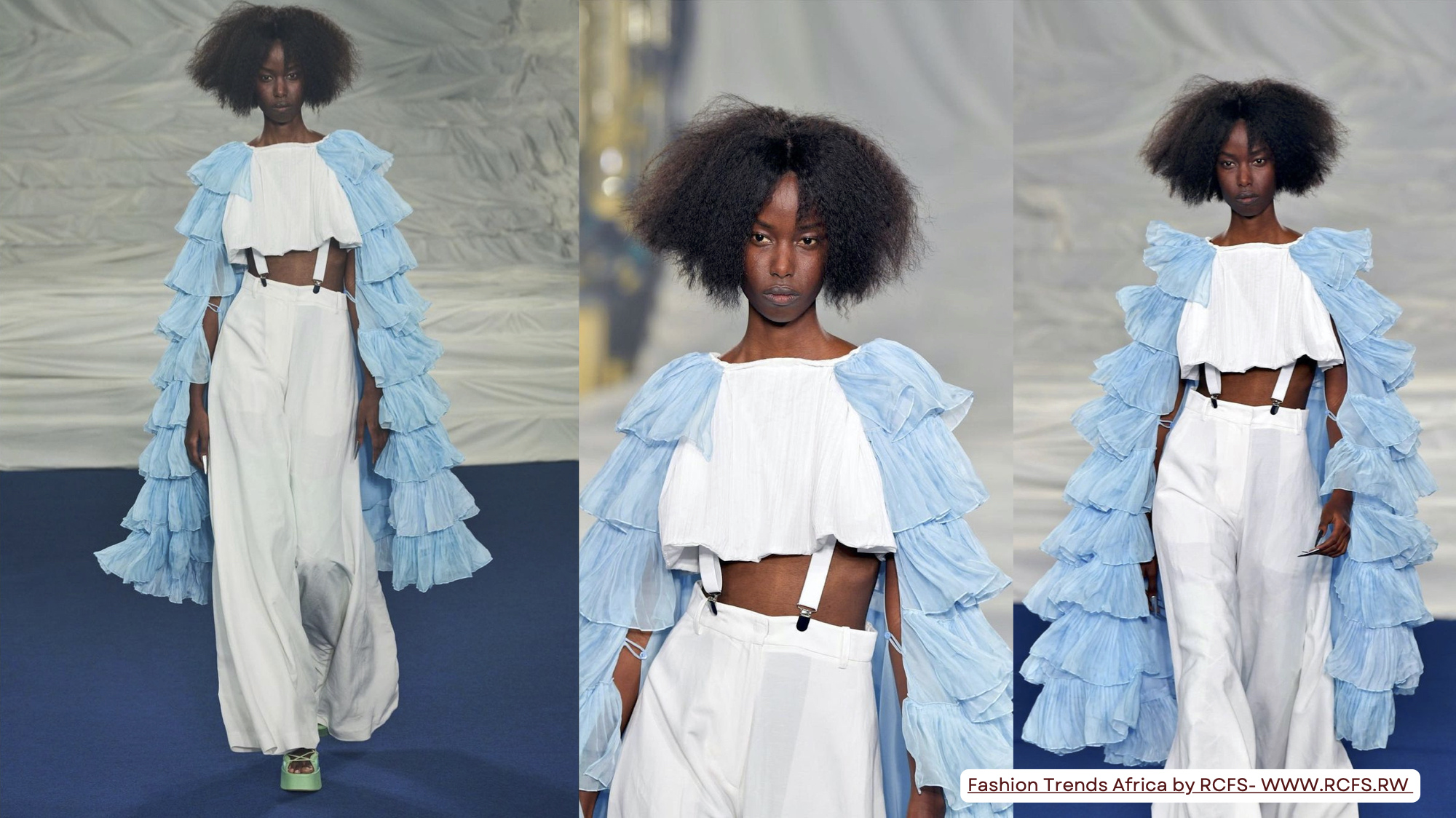
Ines Pamela: Pamela's journey began in 2021 with the help of 'We Best Models Management'. Pamela has since graced prestigious runways for Louis Vuitton, Balmain, Bottega Veneta, and Alexander McQueen.
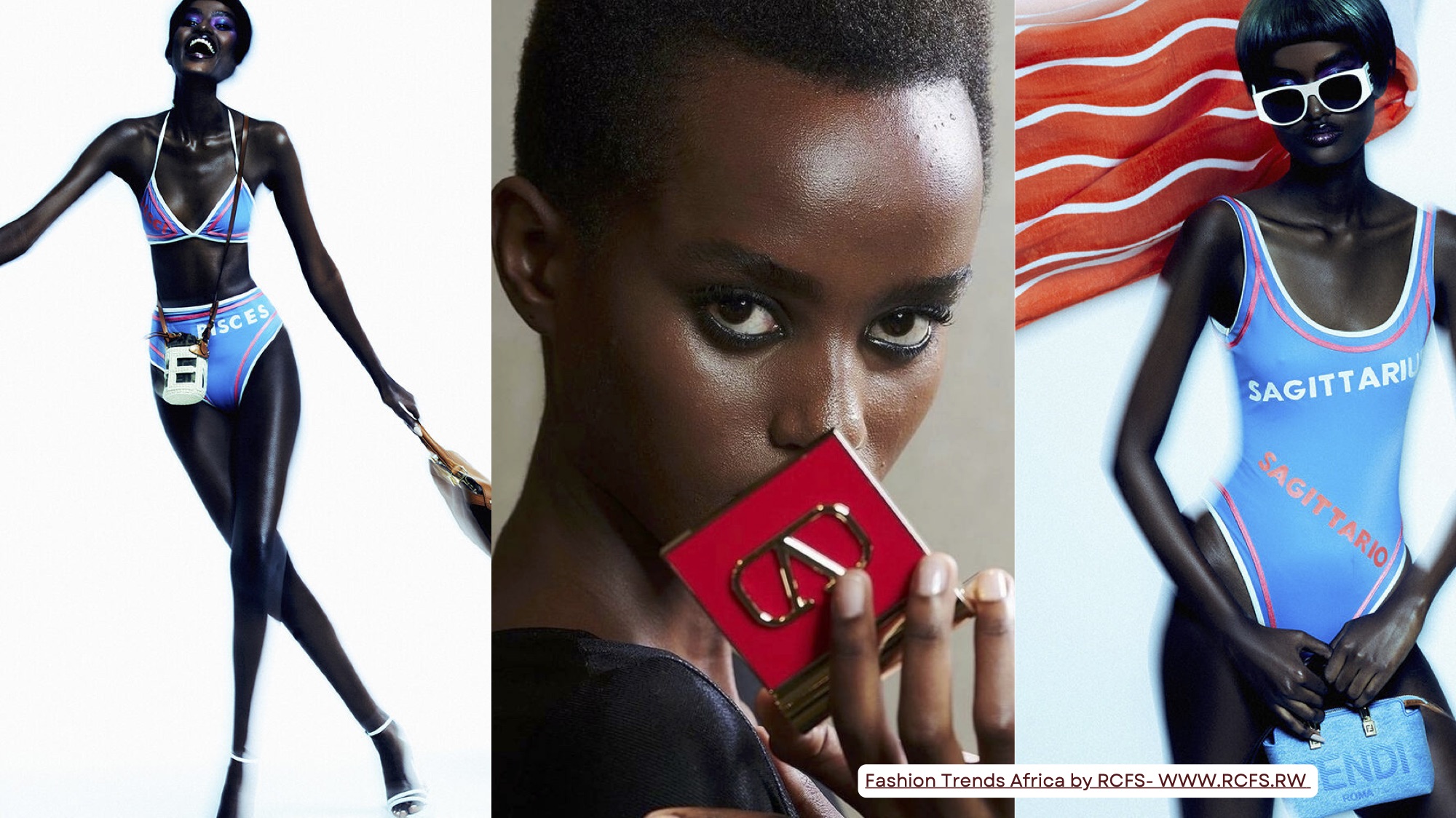
Morella Isheja: One of the youngest Rwandan models making waves internationally, Isheja has impressed at London Fashion Week and Paris Fashion Week, representing brands like Courreges and Giambattista Valli.
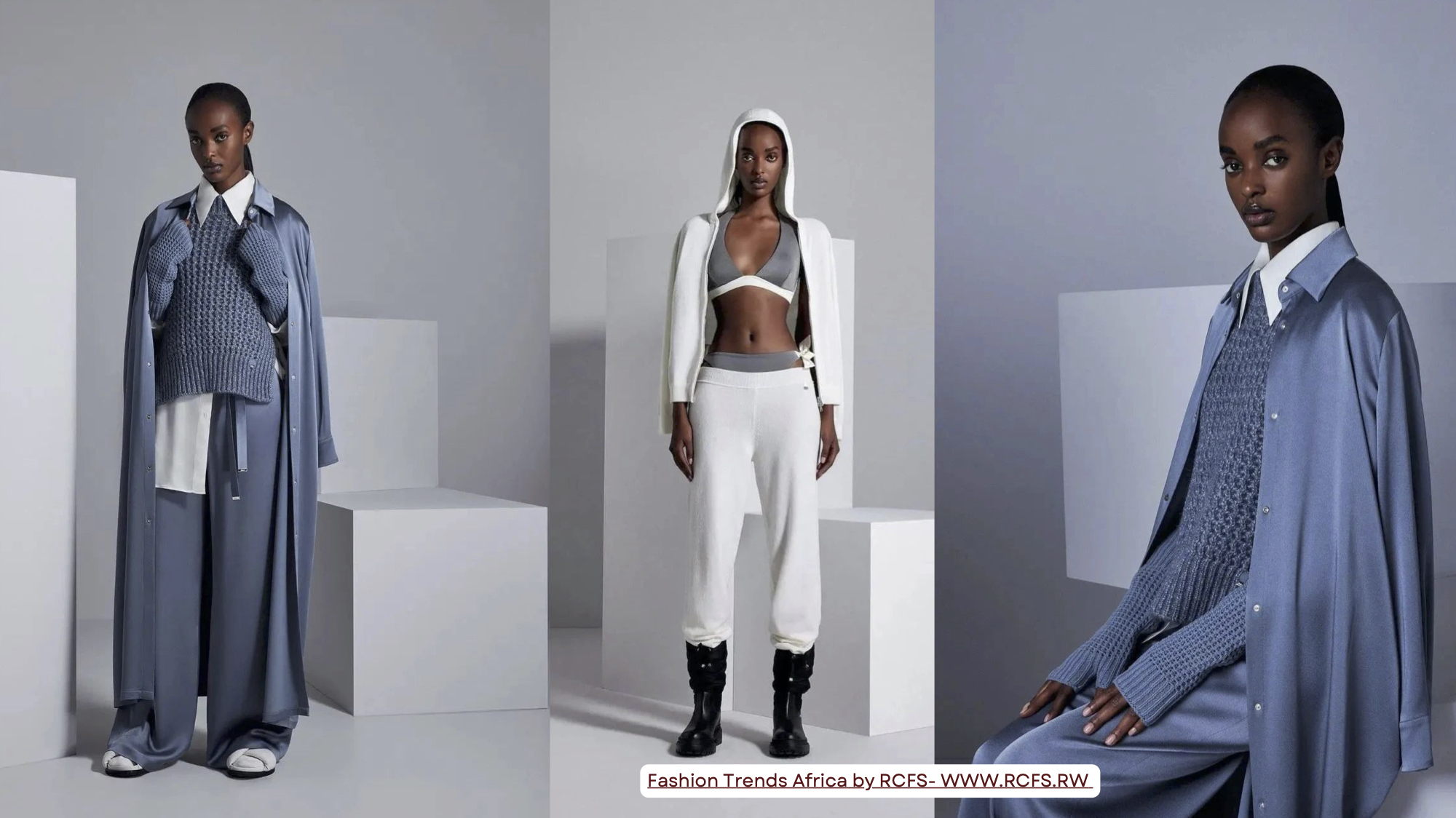
Kentha Kirezi: Isheja's sister, Kirezi, is part of the emerging talent in the fashion industry. She has walked alongside industry icons like Naomi Campbell and Winnie Harlow at London Fashion Week.
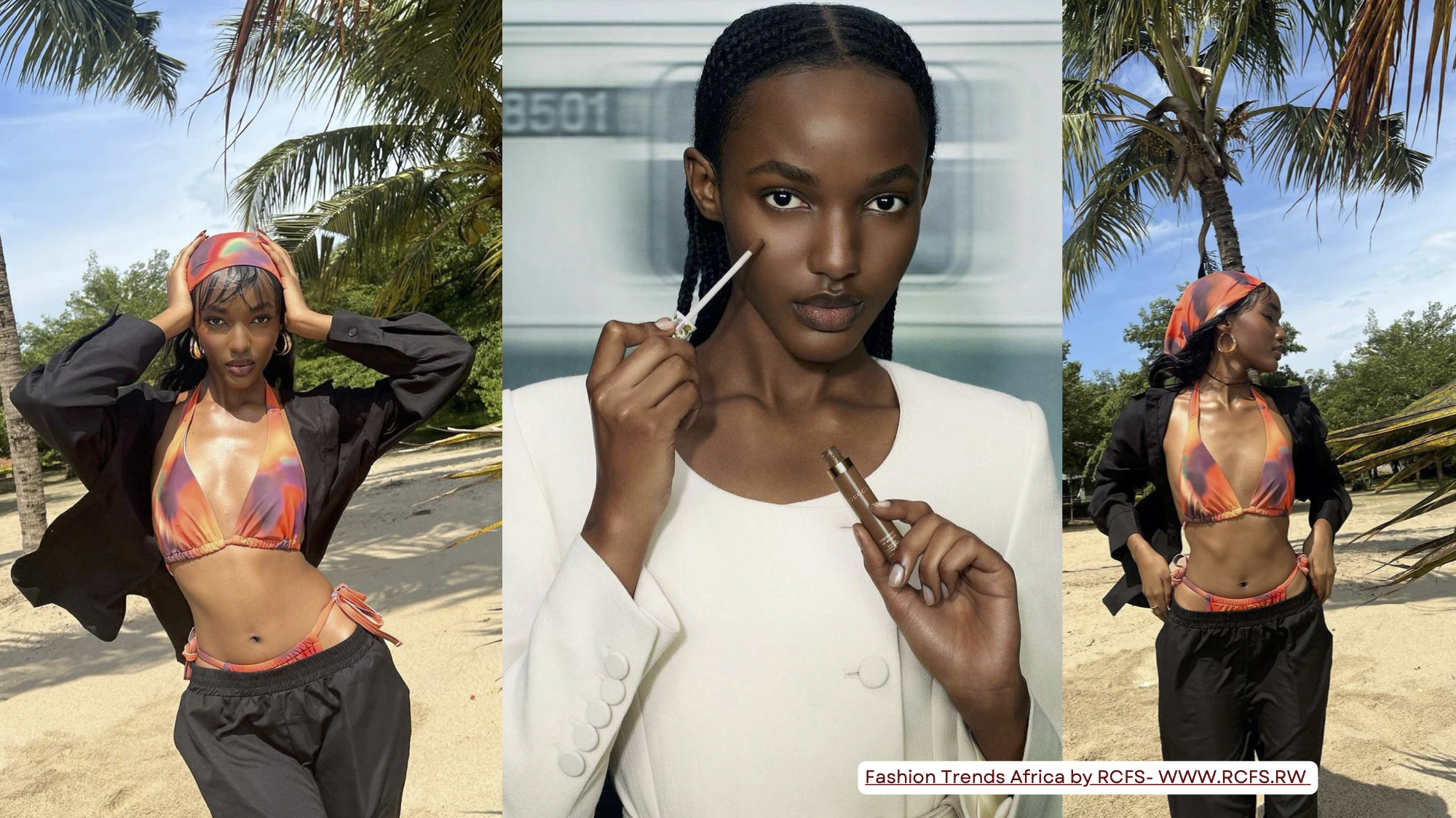
The Spirit of Ndabaga: Courage and Determination
The success of these Rwandan models on the international stage can be seen as a modern embodiment of the spirit of Ndabaga, a legendary figure in Rwandan history. Ndabaga's story is one of sacrifice, determination, and breaking gender barriers.
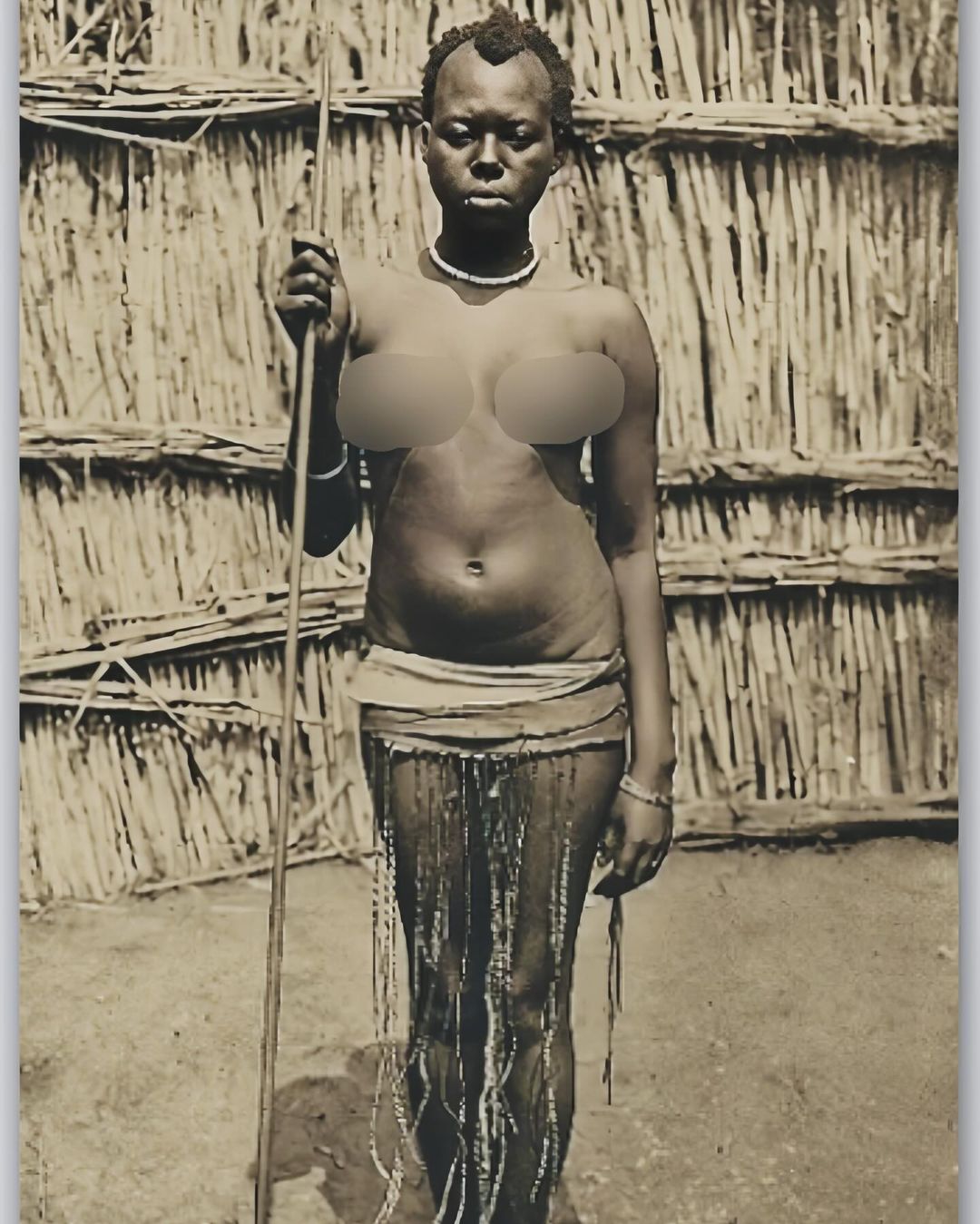 Rwanda's female holding a spear earlier in 1880 [Photo Credit: MR]
Rwanda's female holding a spear earlier in 1880 [Photo Credit: MR]
According to legend, Ndabaga was a young woman who disguised herself as a man to replace her father in the king's army, as there was no son to take his place. She trained rigorously in warrior skills and even went to the extreme of removing her breasts to maintain her disguise. Although eventually discovered, Ndabaga's bravery and skill impressed the king and led to changes in the military service system.
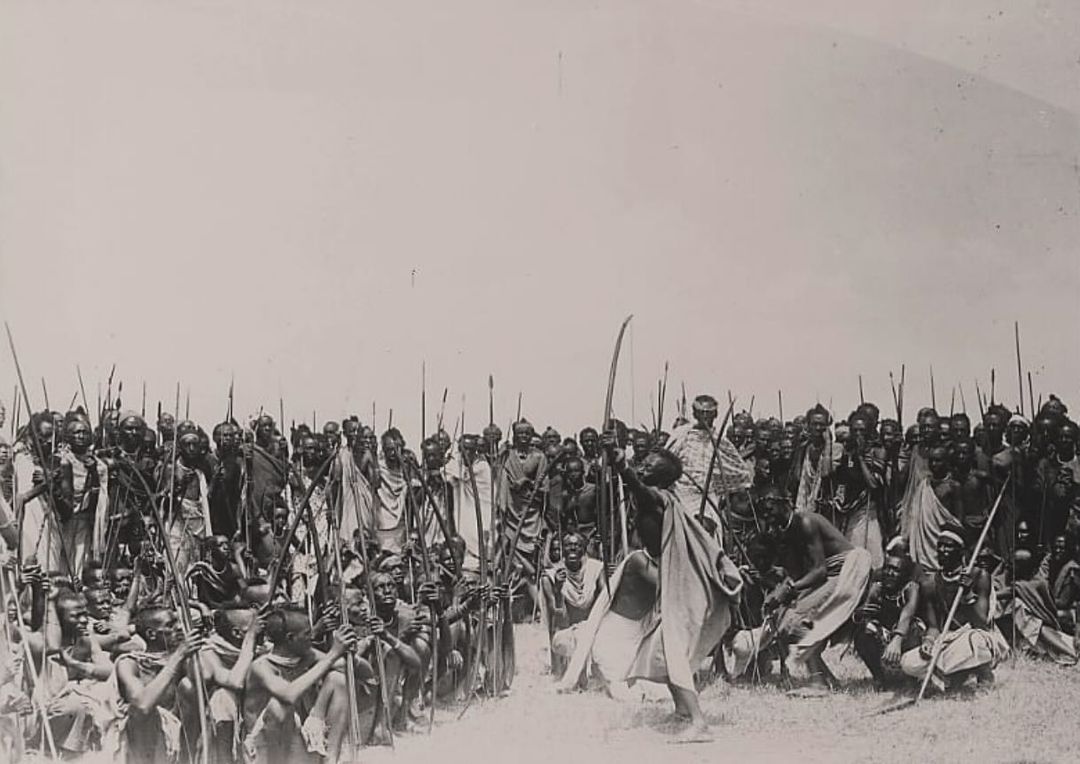 Rwanda's King Yuhi V Musinga and his warriors [Photo Credit: MR]
Rwanda's King Yuhi V Musinga and his warriors [Photo Credit: MR]
Like Ndabaga, these modern Rwandan models have shown incredible determination and courage in pursuing their dreams. They have overcome cultural barriers, skepticism, and fierce competition to make their mark in the global fashion industry. Their success challenges traditional notions of women's roles in Rwandan society and opens up new possibilities for future generations.
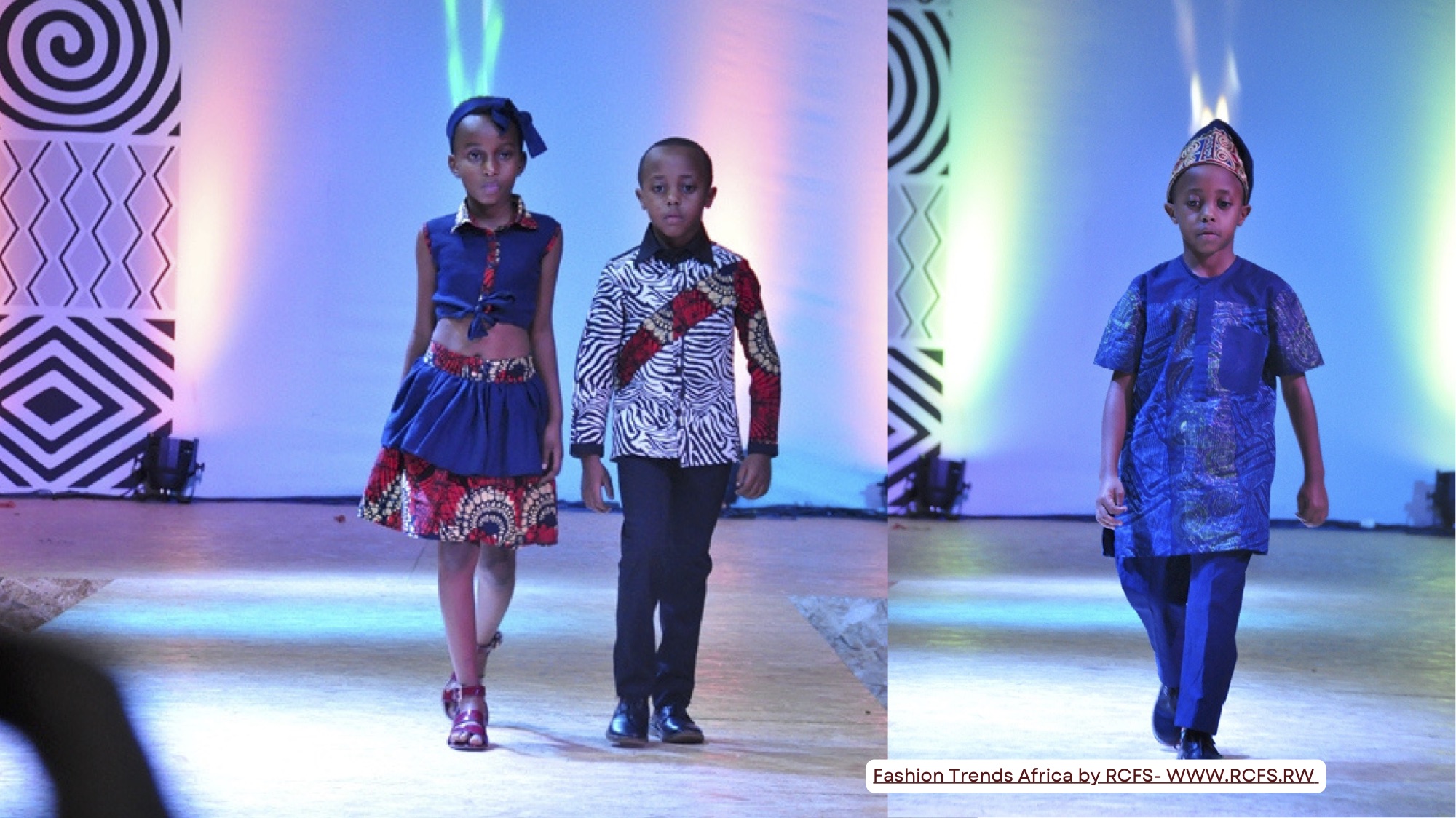 Kids on the runway in a fashion show in Kigali [Photo Credit: RCFS]
Kids on the runway in a fashion show in Kigali [Photo Credit: RCFS]
Factors Contributing to Rwand’s Models Success
Several factors have contributed to the success of Rwandan models on the international stage and these include; Natural Beauty and Unique Looks: Rwandan women are known for their striking features, which stand out in the diverse world of international fashion.
It also includes; Height and Physique: Many Rwandan women possess the tall, lean physique prized in the modeling industry, Cultural Shift: The changing attitudes towards women's roles in Rwandan society have opened up new opportunities in fields like modeling, Government Support: Rwanda's government has been supportive of initiatives that showcase the country's talent on the global stage.
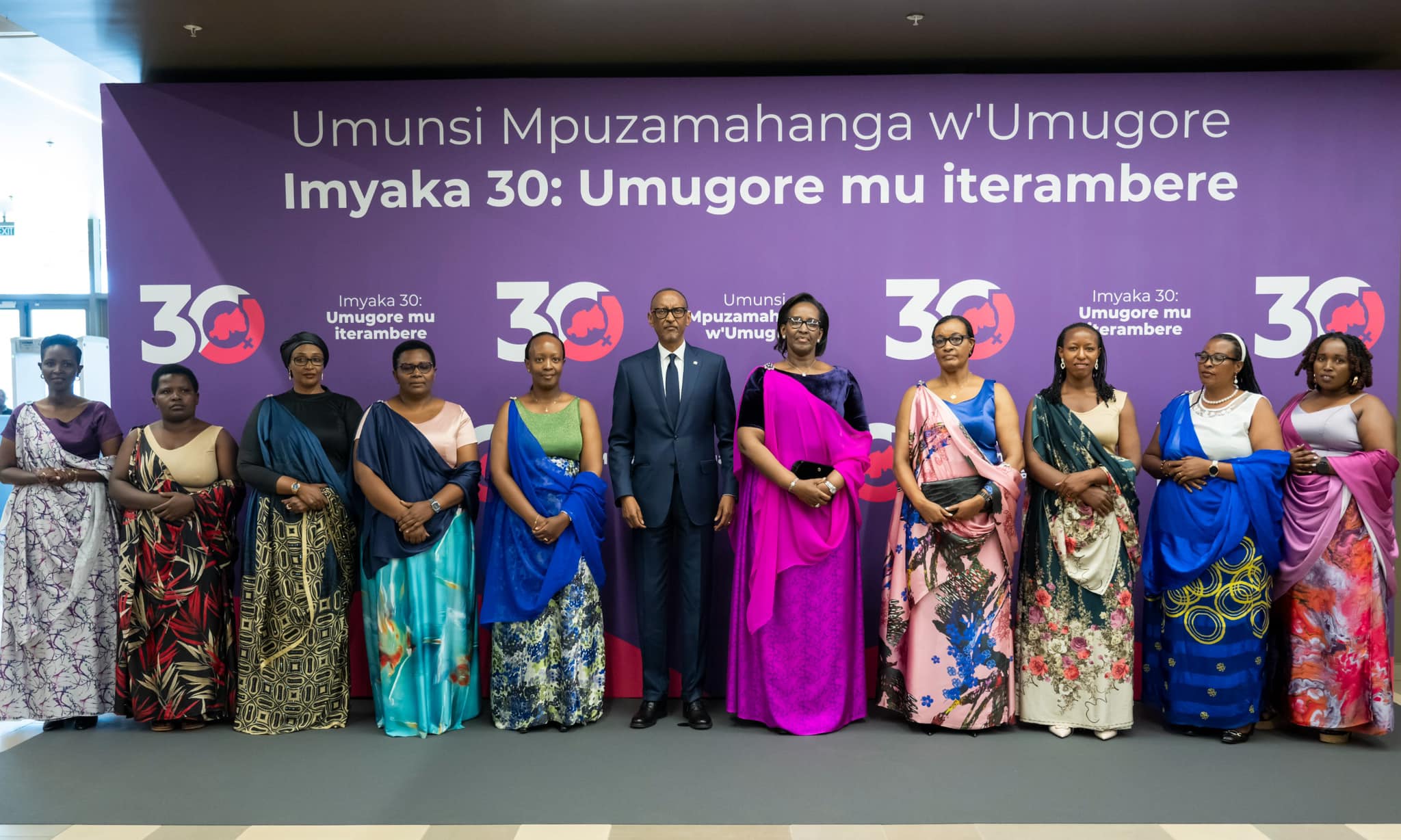 “Women are an important pillar of the development of our country,” President of Rwanda H.E Paul Kagame | International Women’s Day [Photo Credit: PO]
“Women are an important pillar of the development of our country,” President of Rwanda H.E Paul Kagame | International Women’s Day [Photo Credit: PO]
ALSO READ: Official Launch: What should models expect from the Rwanda Fashion Models Union?
There are other factors such as International Exposure: As Rwanda becomes more connected to the global community, opportunities for its models to be discovered by international agencies have increased, Persistence and Hard Work: The success stories of these models are marked by their dedication, resilience, and willingness to seize opportunities.
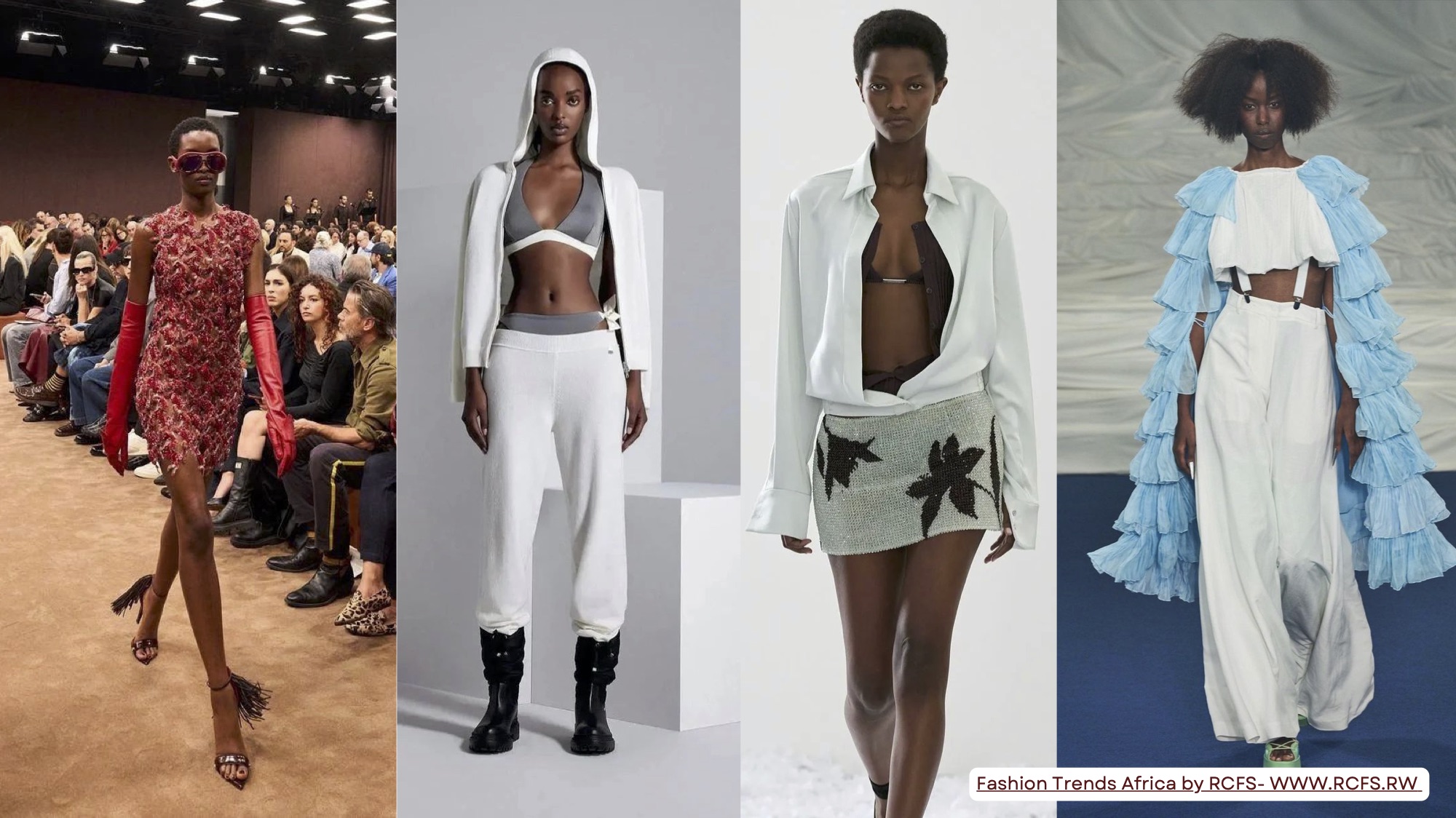 In the photo models: Denyse Mushikiwabo, Isheja Morella, Anifa Umufite, and Jennifer Girukwishaka [Photo credit: IG Models]
In the photo models: Denyse Mushikiwabo, Isheja Morella, Anifa Umufite, and Jennifer Girukwishaka [Photo credit: IG Models]
The rise of Rwandan models on the international fashion stage is a witness to the changing face of Rwanda and the determination of its women. Like Ndabaga of legend, these modern-day heroines have broken barriers and challenged societal norms. Their success not only brings recognition to Rwanda but also inspires future generations of Rwandan women to dream big and pursue their ambitions, regardless of the field.
9 Rwanda's Female Models Continue to Shine on International Fashion Stage 2024: Here's Why
In recent years, Rwanda's female models have been making waves on the international fashion scene, gracing runways from New York to Paris, Milan, and London. Their success raises intriguing questions: How have these Rwandan models managed to break into the competitive global fashion industry? And do they embody the spirit of Ndabaga, a legendary figure in Rwandan history known for her bravery and defiance of traditional gender roles?
The Rise of Rwandan Models on the Global Stage
The journey of Rwandan women in modeling is a relatively recent phenomenon, especially when viewed against the backdrop of the country's cultural history. Traditionally, Rwandan women were known for their beauty, secrecy, and responsibility in taking care of family and home. However, their roles were often limited, with certain jobs and activities considered off-limits.
 Rwanda's women earlier in 1880 [Photo Credit: MR]
Rwanda's women earlier in 1880 [Photo Credit: MR]
The 1994 Tutsi Genocide marked a turning point for women's roles in Rwandan society. In the aftermath, women played a crucial role in helping the country recover from this tragedy. Gradually, societal norms began to shift, allowing women to enter previously male-dominated fields, including modeling.
Initially, modeling was viewed with skepticism by many Rwandans, often dismissed as a frivolous or even disreputable profession. However, through the efforts of pioneering individuals and agencies, modeling has gained recognition and respect as a legitimate career path.
 Models: Anifa Umufite, Isheja Morella, and Christine Munezero [Photo credit: IG Models]
Models: Anifa Umufite, Isheja Morella, and Christine Munezero [Photo credit: IG Models]
Spotlight on Rwanda's International Models
Let's take a closer look at some of the Rwandan models who have made their mark on the international fashion stage:
Anipha Umufite: Known professionally as Anipha Kay, she has walked for prestigious brands like Prada, Fendi, Dior, Hermes, and Dolce & Gabbana. In 2022, Umufite landed a deal with Kanye West's 'Yeezy Gap' collection and featured alongside supermodel Naomi Campbell. In May 2024, she appeared in Vogue Italia.

Mushikiwabo Denyse: She has showcased collections for Tommy Hilfiger, Balmain Paris, Victoria Beckham, Carven, Gucci, and Prada, among others. Mushikiwabo's talent has been recognized by agencies like The Wave, Select Models Paris, and Muse Model NYC.

Christine Munezero: A regular at major fashion weeks in Milan, Paris, London, and New York, Munezero has worked with renowned brands such as Maison Valentino, Maison Margiela, Chloé, Dior, Versace, and Gucci.

Umutoni Ornella: She presented designs for Loewe, Hermes, and MIU MIU at the Paris Fashion Week in February 2024. Umutoni is signed with agencies in the USA, Italy, France, Barcelona, and Greece.

Esther Niyirera: Making her debut at Paris Fashion Week in early 2024, Niyirera has quickly risen to prominence, working with fashion brands from the UK, Italy, and France.

Jennifer Girukwishaka: Since her international debut in Paris in October 2021, Girukwishaka has become a familiar face on global fashion stages, represented by agencies in Italy, England, France, USA, and Spain.

Ines Pamela: Pamela's journey began in 2021 with the help of 'We Best Models Management'. Pamela has since graced prestigious runways for Louis Vuitton, Balmain, Bottega Veneta, and Alexander McQueen.

Morella Isheja: One of the youngest Rwandan models making waves internationally, Isheja has impressed at London Fashion Week and Paris Fashion Week, representing brands like Courreges and Giambattista Valli.

Kentha Kirezi: Isheja's sister, Kirezi, is part of the emerging talent in the fashion industry. She has walked alongside industry icons like Naomi Campbell and Winnie Harlow at London Fashion Week.

The Spirit of Ndabaga: Courage and Determination
The success of these Rwandan models on the international stage can be seen as a modern embodiment of the spirit of Ndabaga, a legendary figure in Rwandan history. Ndabaga's story is one of sacrifice, determination, and breaking gender barriers.
 Rwanda's female holding a spear earlier in 1880 [Photo Credit: MR]
Rwanda's female holding a spear earlier in 1880 [Photo Credit: MR]
According to legend, Ndabaga was a young woman who disguised herself as a man to replace her father in the king's army, as there was no son to take his place. She trained rigorously in warrior skills and even went to the extreme of removing her breasts to maintain her disguise. Although eventually discovered, Ndabaga's bravery and skill impressed the king and led to changes in the military service system.
 Rwanda's King Yuhi V Musinga and his warriors [Photo Credit: MR]
Rwanda's King Yuhi V Musinga and his warriors [Photo Credit: MR]
Like Ndabaga, these modern Rwandan models have shown incredible determination and courage in pursuing their dreams. They have overcome cultural barriers, skepticism, and fierce competition to make their mark in the global fashion industry. Their success challenges traditional notions of women's roles in Rwandan society and opens up new possibilities for future generations.
 Kids on the runway in a fashion show in Kigali [Photo Credit: RCFS]
Kids on the runway in a fashion show in Kigali [Photo Credit: RCFS]
Factors Contributing to Rwand’s Models Success
Several factors have contributed to the success of Rwandan models on the international stage and these include; Natural Beauty and Unique Looks: Rwandan women are known for their striking features, which stand out in the diverse world of international fashion.
It also includes; Height and Physique: Many Rwandan women possess the tall, lean physique prized in the modeling industry, Cultural Shift: The changing attitudes towards women's roles in Rwandan society have opened up new opportunities in fields like modeling, Government Support: Rwanda's government has been supportive of initiatives that showcase the country's talent on the global stage.
 “Women are an important pillar of the development of our country,” President of Rwanda H.E Paul Kagame | International Women’s Day [Photo Credit: PO]
“Women are an important pillar of the development of our country,” President of Rwanda H.E Paul Kagame | International Women’s Day [Photo Credit: PO]
ALSO READ: Official Launch: What should models expect from the Rwanda Fashion Models Union?
There are other factors such as International Exposure: As Rwanda becomes more connected to the global community, opportunities for its models to be discovered by international agencies have increased, Persistence and Hard Work: The success stories of these models are marked by their dedication, resilience, and willingness to seize opportunities.
 In the photo models: Denyse Mushikiwabo, Isheja Morella, Anifa Umufite, and Jennifer Girukwishaka [Photo credit: IG Models]
In the photo models: Denyse Mushikiwabo, Isheja Morella, Anifa Umufite, and Jennifer Girukwishaka [Photo credit: IG Models]
The rise of Rwandan models on the international fashion stage is a witness to the changing face of Rwanda and the determination of its women. Like Ndabaga of legend, these modern-day heroines have broken barriers and challenged societal norms. Their success not only brings recognition to Rwanda but also inspires future generations of Rwandan women to dream big and pursue their ambitions, regardless of the field.
What is Working and What Needs to Change in Rwanda's Fashion Scene?
Rwanda's fashion industry encompasses a broader perspective than many realize. While the term "fashion" often evokes images of designers creating clothing, it also includes tailors, photographers, promoters, bloggers, journalists, and private investors. To thoroughly answer the question of what's working and what needs to change, we must examine all aspects of the industry.
Over the past six years, numerous fashion entrepreneurs across Rwanda have attempted to address this question, albeit without definitive answers. However, their efforts have not gone unnoticed. Currently, initiatives like Kuza Africa are working to provide solutions.
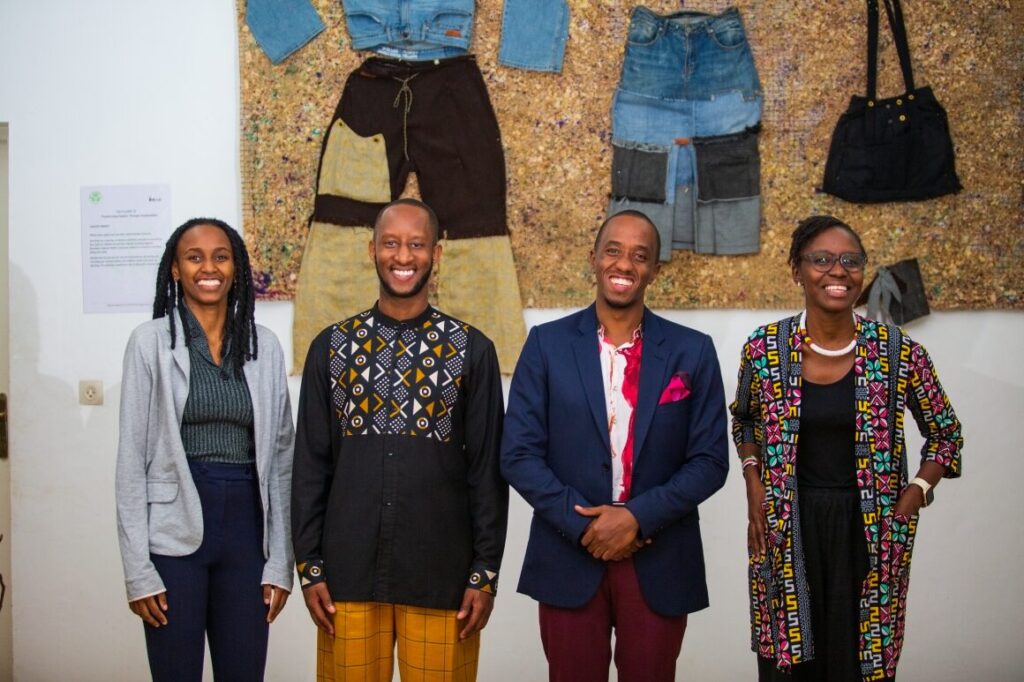 Team member of Kuza Africa, A hub that empowers aspiring fashion and creative entrepreneurs in Africa based in Rwanda [Photo Credit: Kuza Africa]
Team member of Kuza Africa, A hub that empowers aspiring fashion and creative entrepreneurs in Africa based in Rwanda [Photo Credit: Kuza Africa]
Kuza Africa's Contribution
Kuza Africa offers mentorship and training programs to equip aspiring African fashion entrepreneurs and creatives with the tools, skills, and opportunities necessary for building sustainable, successful businesses. Recently, the organization in partnership with Noverlity Fashion Week 2024 hosted discussions revisiting the question: "What is working and what needs to change in Rwanda's Fashion Scene?" This effort aims to contribute to building a sustainable fashion industry in Rwanda.
On September 4th, 2024, at the Institut Français in Kigali, in partnership with Noverlity Fashion Week 2024, Kuza Africa organized a panel discussion titled "Empowering Rwandan Fashion." The event brought together fashion designers, experts, and entrepreneurs, including models, to identify challenges and opportunities for growth and development.
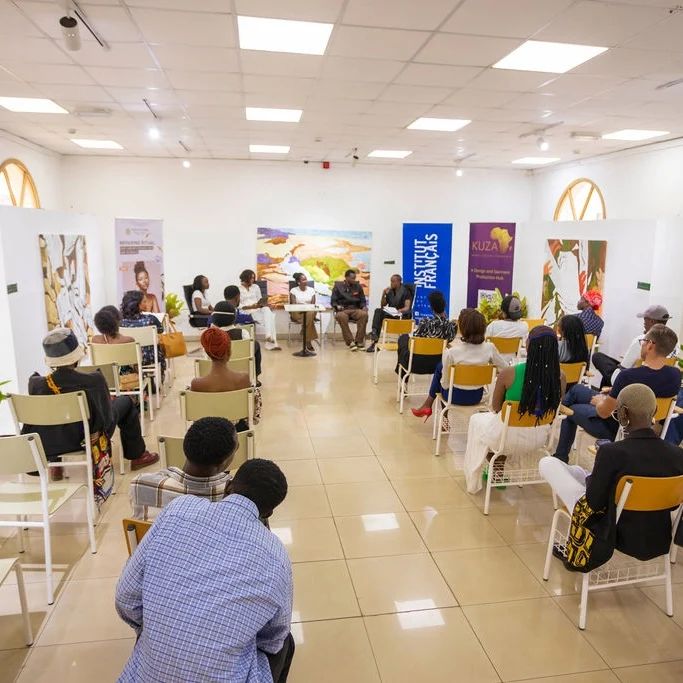 Participants during the discussions at the Institut Français in Kigal [Photo Credit: Kuza Africa]
Participants during the discussions at the Institut Français in Kigal [Photo Credit: Kuza Africa]
Moderated by Maximilien Kolbe Uwayo Hategekimana, the panel featured: Chris Manzi, Co-Founder of Wear Fragile, Fiona Uwamahoro, PhD Researcher at London College of Fashion, Gikundiro Jo, Founder of KONI Clothing and Cleo, Founder of Charmille Couture
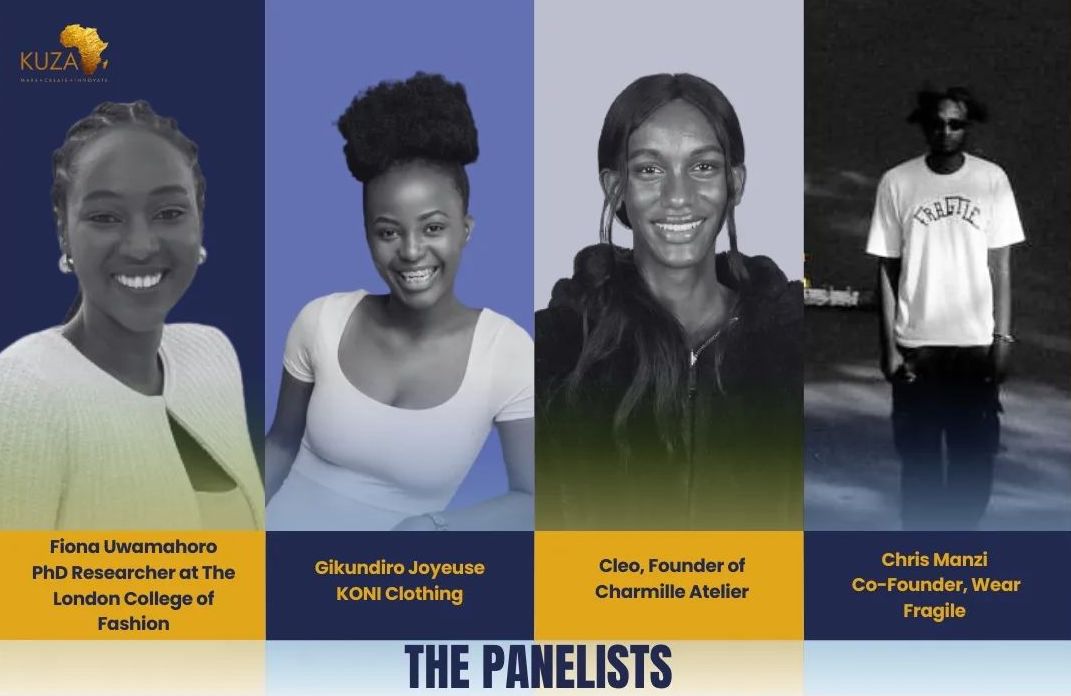
Current Landscape and Personal Journeys
The panel began by exploring the current state of Rwanda's fashion industry. While acknowledging the emerging talent pool, panelists emphasized challenges that hinder growth, such as limited access to high-quality materials, funding, and essential business skills. They also highlighted the uniqueness of Rwandan fashion, particularly its potential to blend traditional elements with contemporary designs.
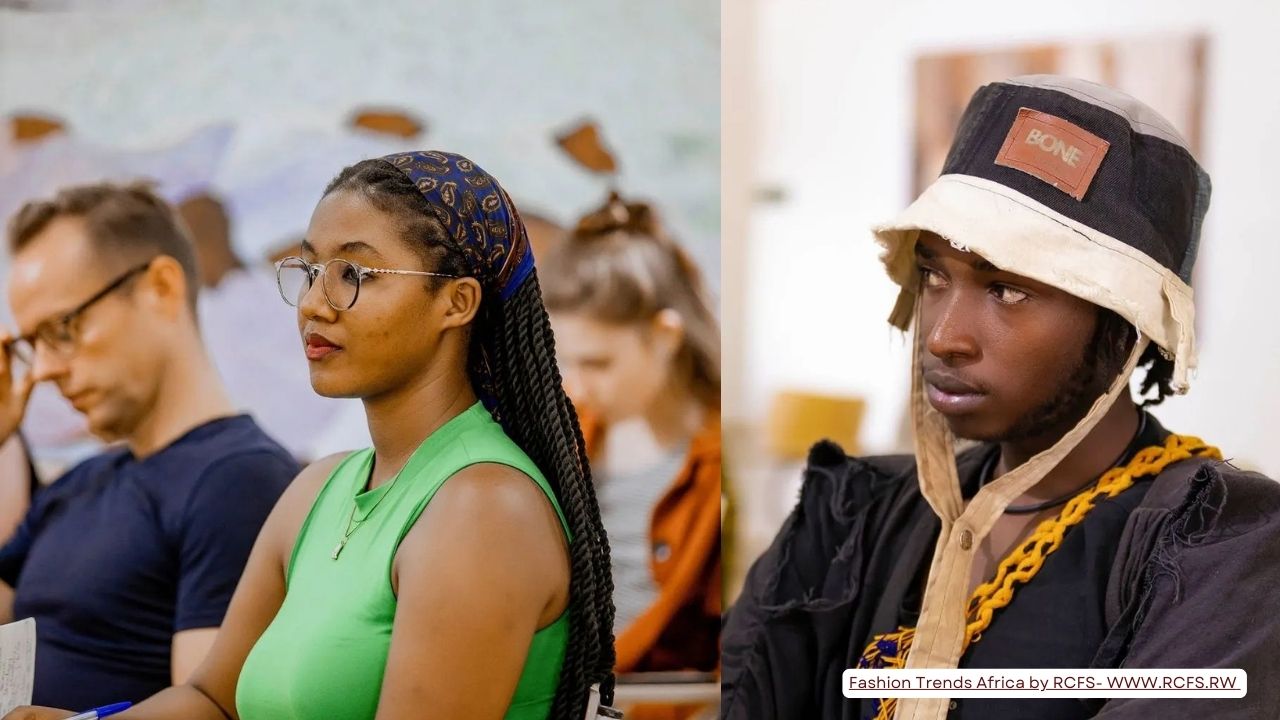 Participants during the discussions at the Institut Français in Kigal [Photo Credit: Kuza Africa]
Participants during the discussions at the Institut Français in Kigal [Photo Credit: Kuza Africa]
Each panelist shared their personal journey in the fashion industry:
Chris Manzi discussed how hip-hop culture and skateboarding influenced Wear Fragile's designs, creating a niche market in Rwanda. He emphasized that Wear Fragile is more than a fashion brand; it's a movement for artists and creatives to express themselves through documentaries, pop-up events, and costume design for musicians.
Fiona Uwamahoro provided an academic perspective on the industry's development, expressing admiration for designers who have achieved much with limited resources.
Gikundiro Jo shared her experiences as a woman in Rwanda's fashion industry, discussing the challenges of starting her brand and co-founding Novelty Fashion, a platform for emerging designers to gain industry exposure.
Cleo explained how international exposure shaped Charmille's approach to fashion and business, emphasizing the importance of gaining experience and understanding business intricacies before launching a brand.
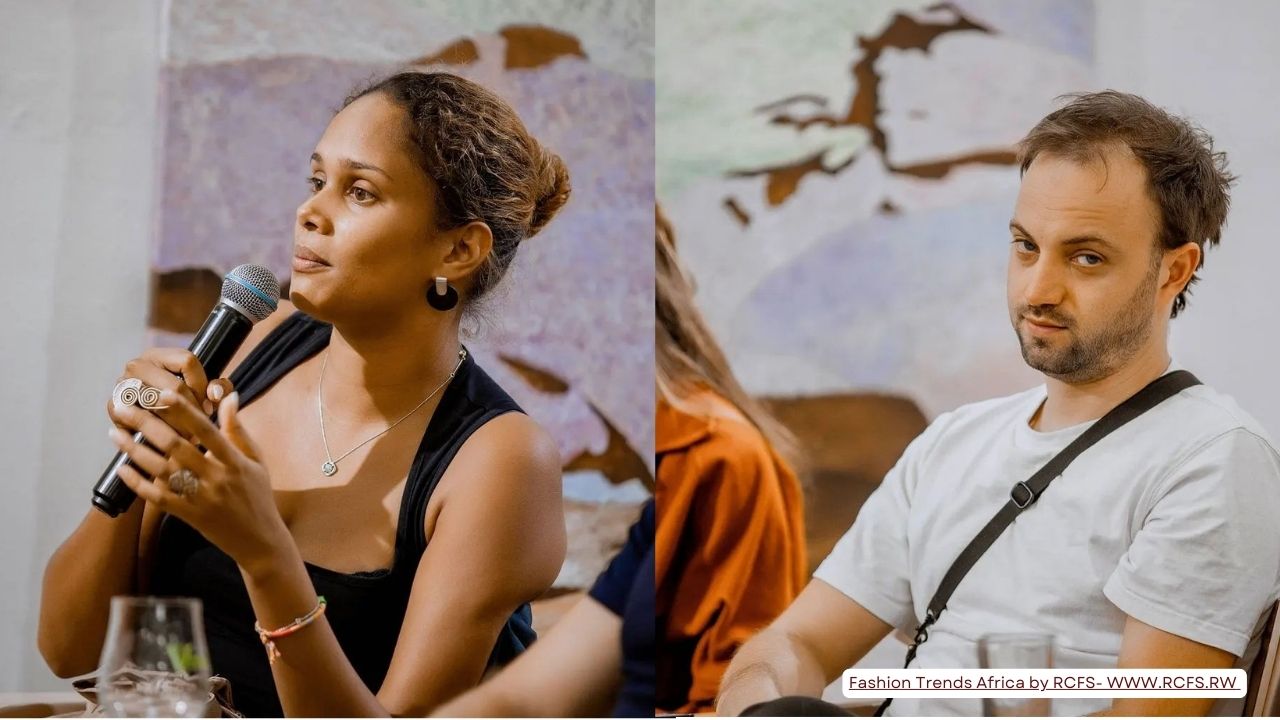 Participants during the discussions at the Institut Français in Kigal [Photo Credit: Kuza Africa]
Participants during the discussions at the Institut Français in Kigal [Photo Credit: Kuza Africa]
Challenges Facing Rwanda's Fashion Industry
Access to Resources: Panelists agreed that obtaining high-quality materials remains a significant challenge, primarily due to the lack of local textile production. They discussed strategies such as forming collaborations with local and international suppliers to overcome this obstacle.
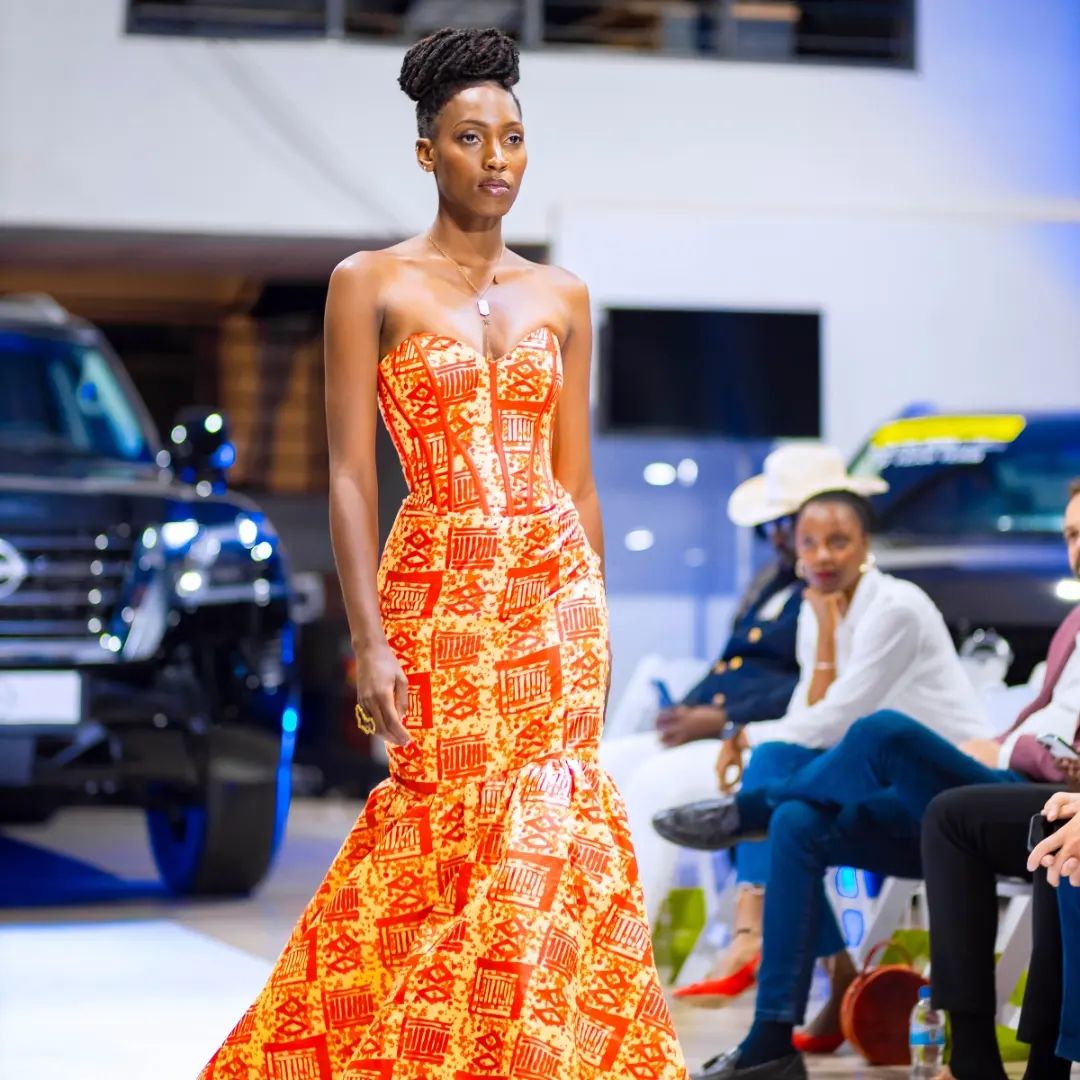 Novelty Fashion Week 2024 at Akagera Motors Showroom in Kigali [Photo Credit: NFW ]
Novelty Fashion Week 2024 at Akagera Motors Showroom in Kigali [Photo Credit: NFW ]
Funding and Financial Support: The conversation revealed the difficulties fashion designers face in securing financial backing. Panelists shared experiences of bootstrapping their businesses, with Chris emphasizing the importance of building relationships with investors who understand the fashion industry. Gikundiro Jo noted that the problem extends beyond financial institutions' lack of understanding of creative businesses; designers themselves often struggle to effectively pitch their businesses to potential investors.
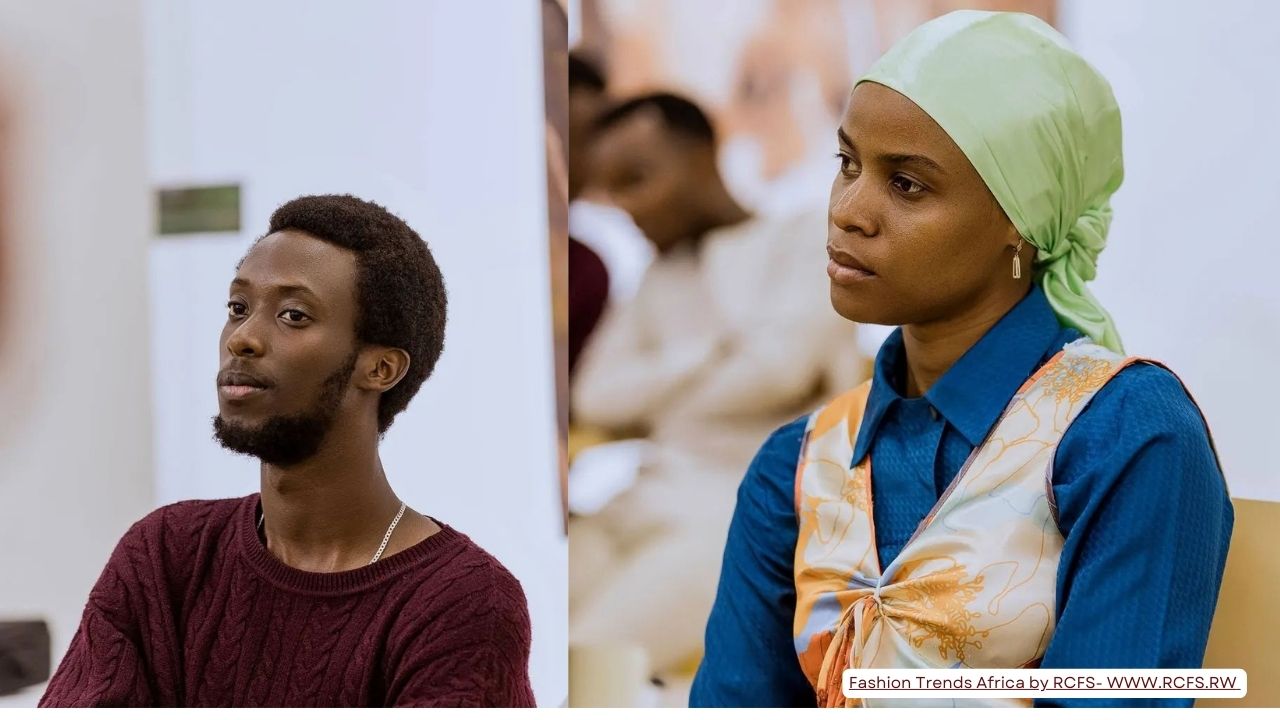 Participants during the discussions at the Institut Français in Kigal [Photo Credit: Kuza Africa]
Participants during the discussions at the Institut Français in Kigal [Photo Credit: Kuza Africa]
Business Acumen: The need for designers to develop strong business skills emerged as a critical point. Panelists discussed the importance of marketing, financial management, and strategic planning, with Fiona emphasizing the role of education and mentorship in building these skills.
Market Access: The discussion highlighted the challenges Rwandan designers face in accessing both local and international markets. Chris shared how he leveraged social media to reach a broader audience, while Cleo emphasized the need for professional networks to break into international markets.
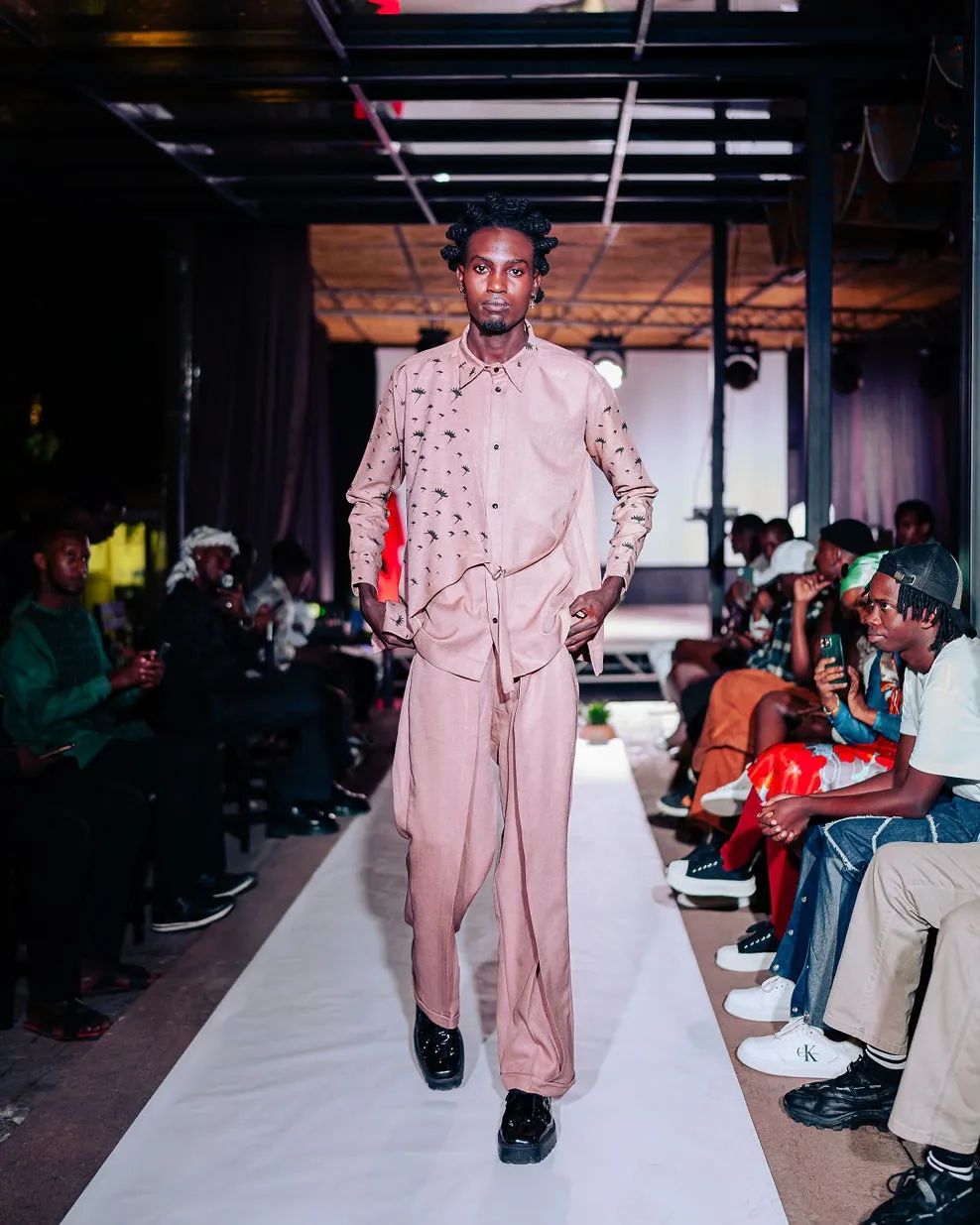 Novelty Fashion Week 2024 [Photo Credit: NFW ]
Novelty Fashion Week 2024 [Photo Credit: NFW ]
Opportunities and Solutions
Leveraging Culture and Identity: Panelists explored how incorporating Rwandan culture into fashion can create unique and marketable products. Cleo discussed how traditional Rwandan attire inspires Charmille's wedding designs, while Chris spoke about merging global subcultures with local identity. When asked about potentially overused elements like Imigongo patterns, Chris suggested innovating rather than abandoning these cultural motifs.
Technological Advancements: The conversation addressed technology's role in the fashion industry, discussing how adopting new technologies can streamline production processes and open up opportunities in e-commerce and digital marketing.
Sustainable Practices: Sustainability and circular economy principles emerged as potential solutions. Panelists discussed the need for education on sustainable practices among designers. Chris explained how Wear Fragile minimizes waste by reusing fabric scraps for accessories and creating products from 100% upcycled materials.
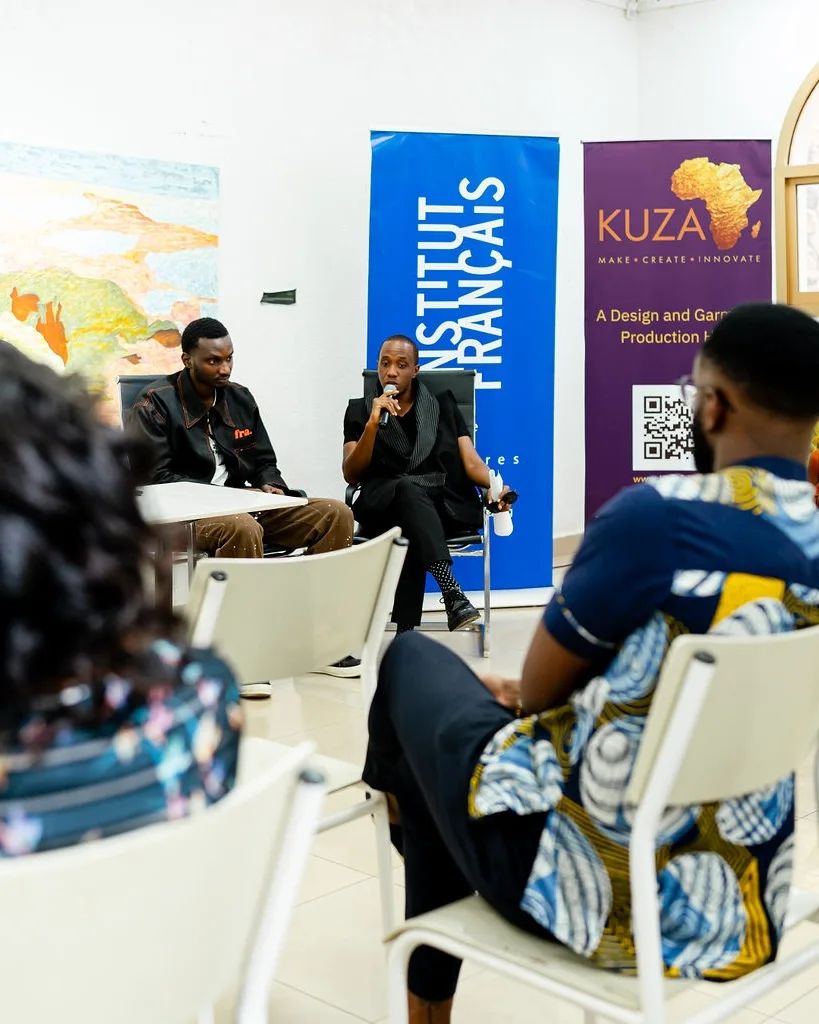 Holding the microphone is Maximilien Kolbe moderator of the discussion and Team member Kuza Africa [Photo Credit: NFW ]
Holding the microphone is Maximilien Kolbe moderator of the discussion and Team member Kuza Africa [Photo Credit: NFW ]
Future Vision for Rwandan Fashion
The discussion concluded with each panelist sharing their vision for the future of Rwandan fashion. They expressed optimism about the industry's potential, believing that with the right support, Rwandan fashion can achieve both local and international success. The conversation emphasized the need for collaboration between designers, investors, and policymakers to create a robust and supportive ecosystem.
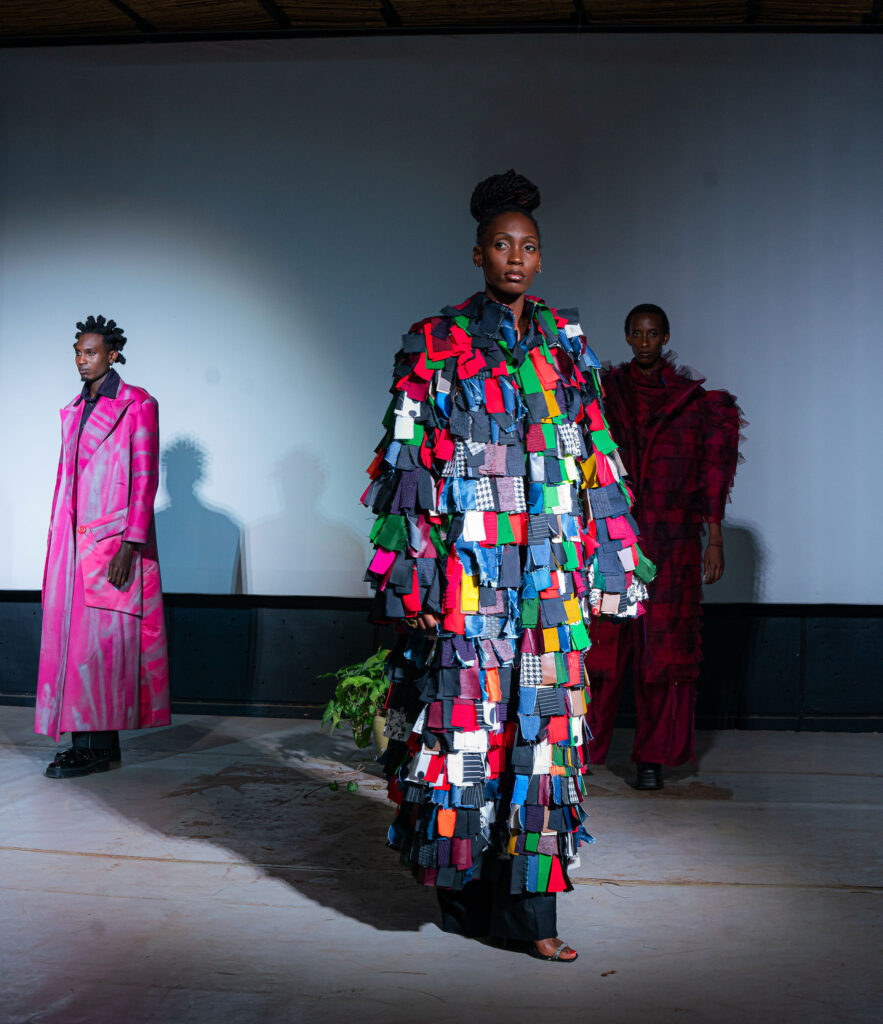 Novelty Fashion Week 2024 at Akagera Motors Showroom in Kigali [Photo Credit: NFW ]
Novelty Fashion Week 2024 at Akagera Motors Showroom in Kigali [Photo Credit: NFW ]
It's clear that networking and collaboration can help fashion entrepreneurs in Rwanda address the challenges and opportunities in their industry. According to the Kuza Africa report, encouraging ongoing collaboration among panelists and attendees is crucial to building a supportive community within the Rwandan fashion industry. All participants agreed to continue planning future discussions and workshops focused on specific challenges and opportunities identified during the panel.
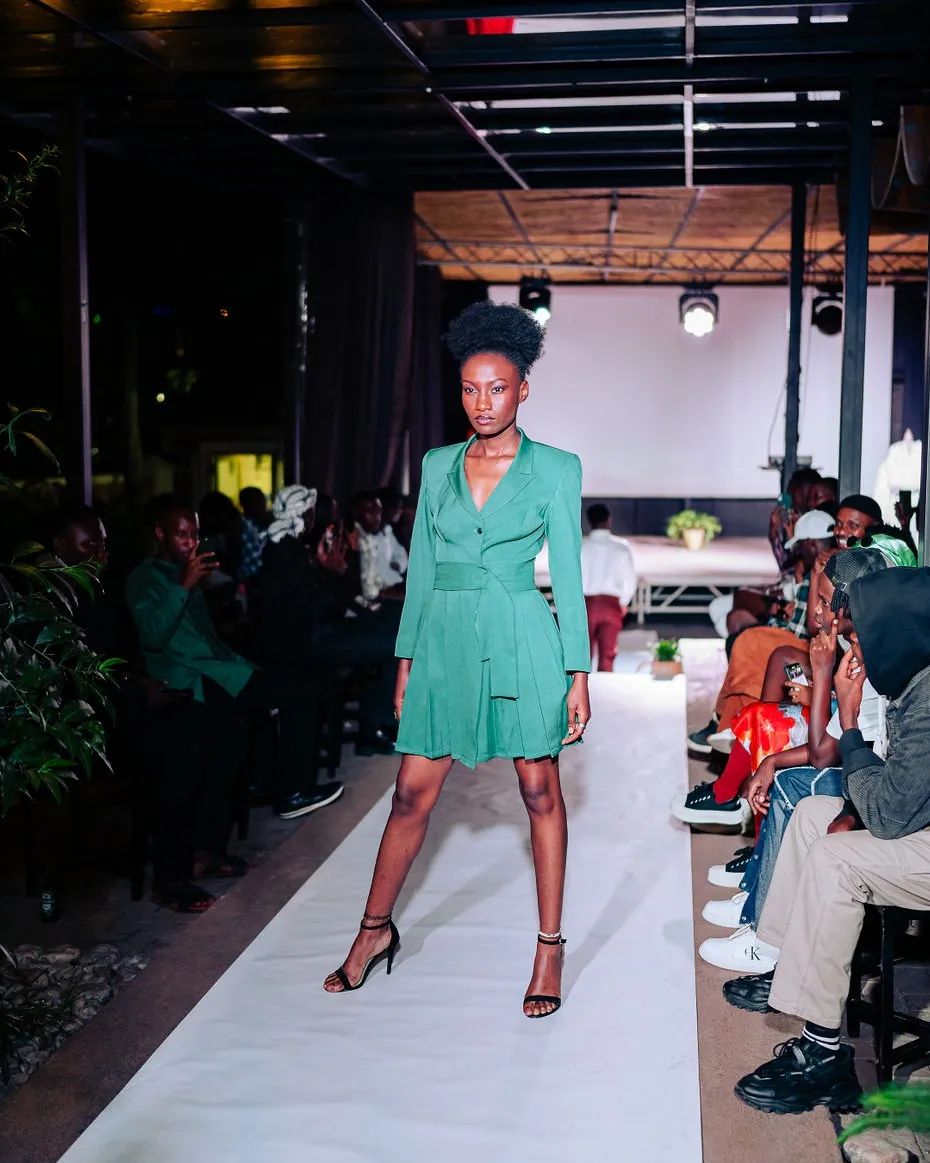 Novelty Fashion Week 2024 [Photo Credit: NFW ]
Novelty Fashion Week 2024 [Photo Credit: NFW ]
As Rwanda's fashion scene continues to evolve, addressing these key areas – access to resources, financial support, business education, market access, cultural integration, technological adoption, and sustainability – will be crucial for its growth and success on both local and international stages.
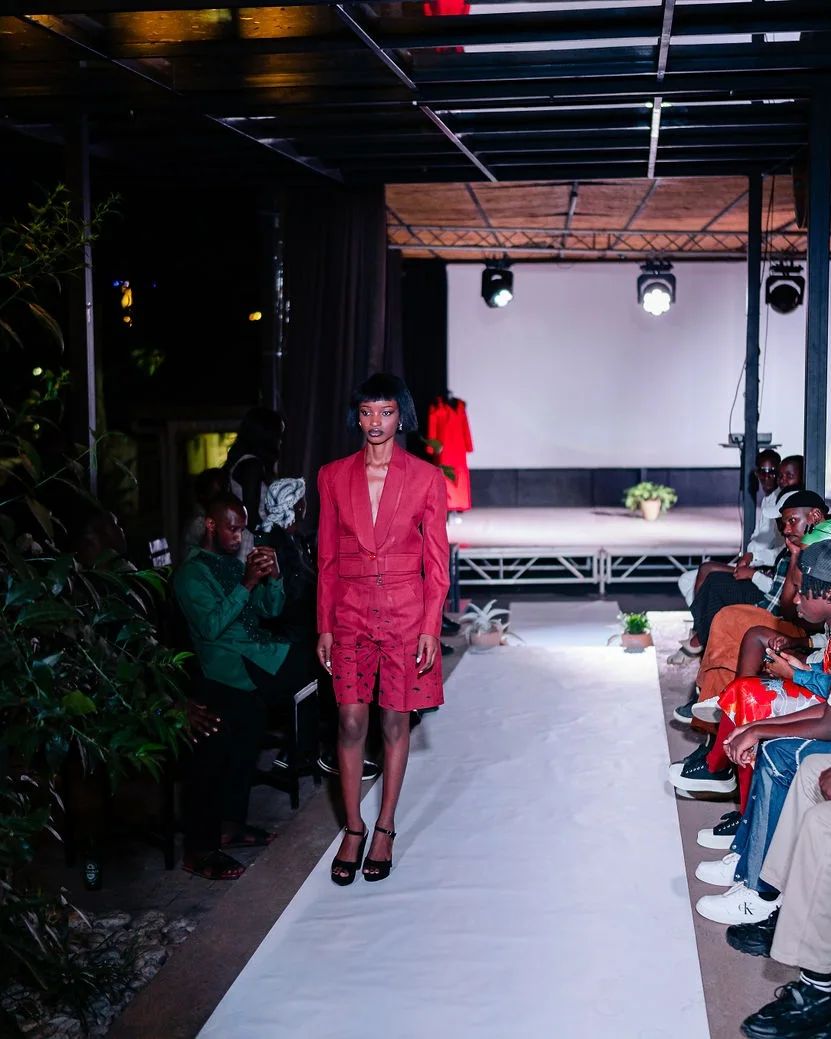 Novelty Fashion Week 2024 [Photo Credit: NFW ]
Novelty Fashion Week 2024 [Photo Credit: NFW ]
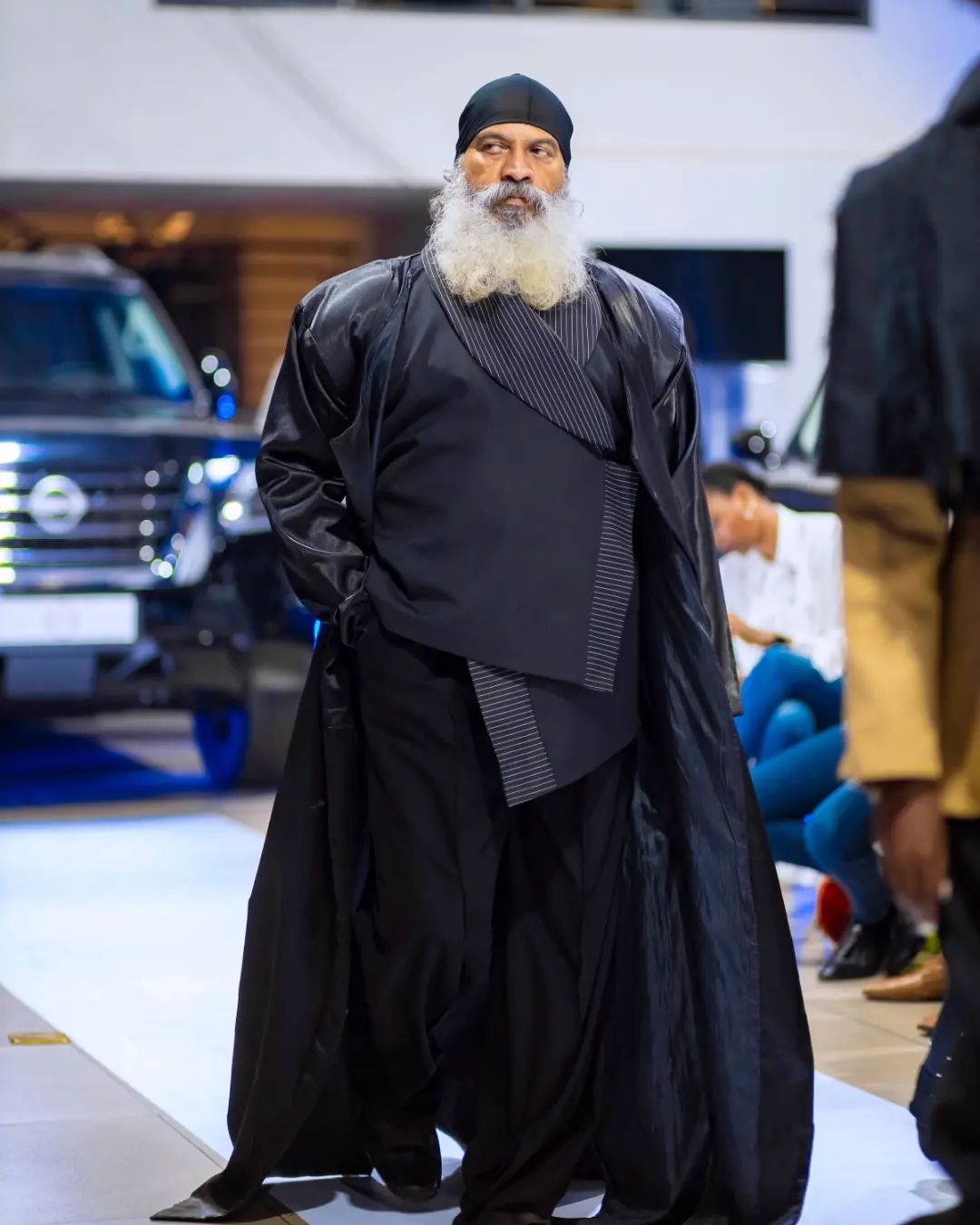 Novelty Fashion Week 2024 at Akagera Motors Showroom in Kigali [Photo Credit: NFW ]
Novelty Fashion Week 2024 at Akagera Motors Showroom in Kigali [Photo Credit: NFW ]
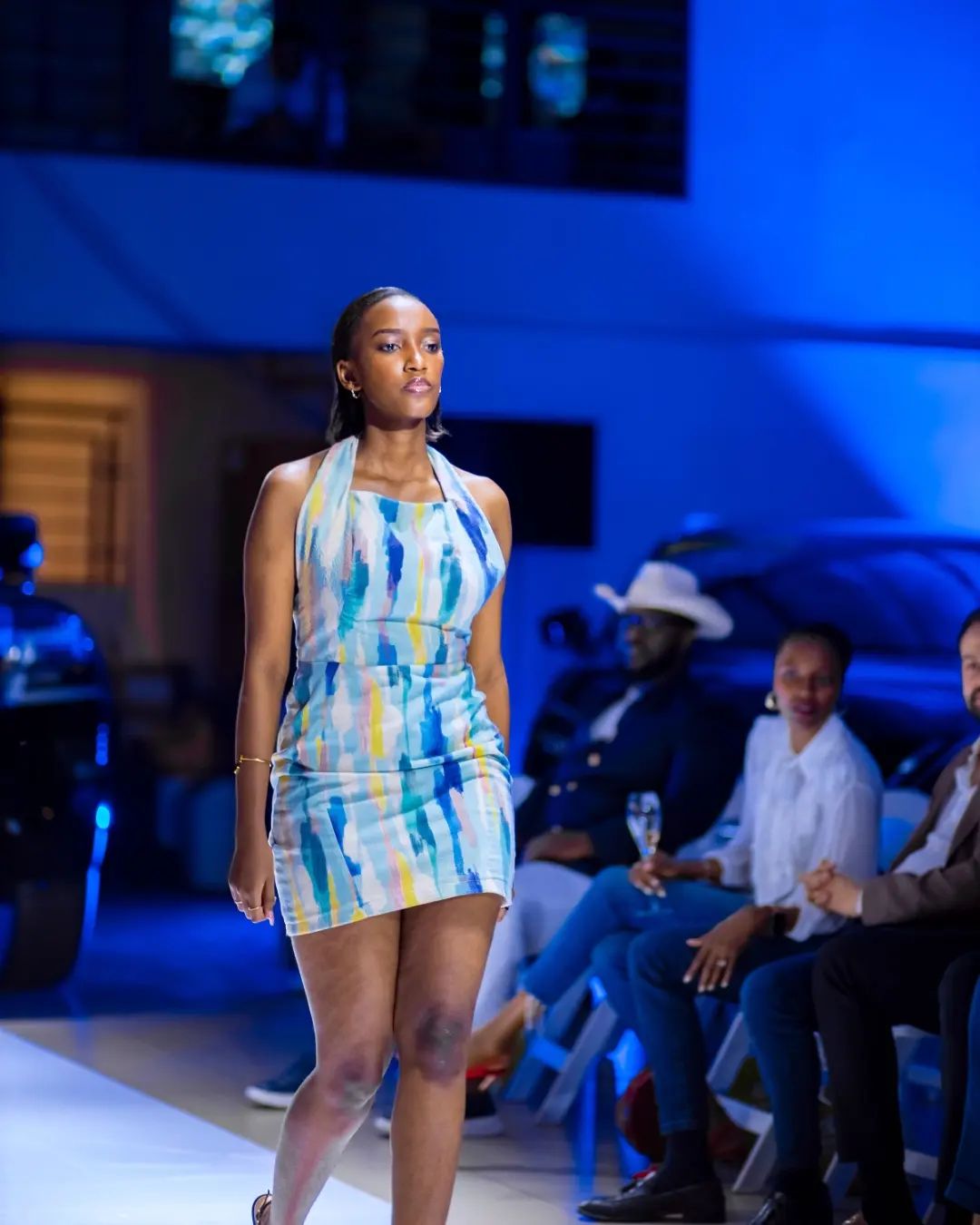 Novelty Fashion Week 2024 at Akagera Motors Showroom in Kigali [Photo Credit: NFW ]
Novelty Fashion Week 2024 at Akagera Motors Showroom in Kigali [Photo Credit: NFW ]
What is Working and What Needs to Change in Rwanda's Fashion Scene?
Rwanda's fashion industry encompasses a broader perspective than many realize. While the term "fashion" often evokes images of designers creating clothing, it also includes tailors, photographers, promoters, bloggers, journalists, and private investors. To thoroughly answer the question of what's working and what needs to change, we must examine all aspects of the industry.
Over the past six years, numerous fashion entrepreneurs across Rwanda have attempted to address this question, albeit without definitive answers. However, their efforts have not gone unnoticed. Currently, initiatives like Kuza Africa are working to provide solutions.
 Team member of Kuza Africa, A hub that empowers aspiring fashion and creative entrepreneurs in Africa based in Rwanda [Photo Credit: Kuza Africa]
Team member of Kuza Africa, A hub that empowers aspiring fashion and creative entrepreneurs in Africa based in Rwanda [Photo Credit: Kuza Africa]
Kuza Africa's Contribution
Kuza Africa offers mentorship and training programs to equip aspiring African fashion entrepreneurs and creatives with the tools, skills, and opportunities necessary for building sustainable, successful businesses. Recently, the organization in partnership with Noverlity Fashion Week 2024 hosted discussions revisiting the question: "What is working and what needs to change in Rwanda's Fashion Scene?" This effort aims to contribute to building a sustainable fashion industry in Rwanda.
On September 4th, 2024, at the Institut Français in Kigali, in partnership with Noverlity Fashion Week 2024, Kuza Africa organized a panel discussion titled "Empowering Rwandan Fashion." The event brought together fashion designers, experts, and entrepreneurs, including models, to identify challenges and opportunities for growth and development.
 Participants during the discussions at the Institut Français in Kigal [Photo Credit: Kuza Africa]
Participants during the discussions at the Institut Français in Kigal [Photo Credit: Kuza Africa]
Moderated by Maximilien Kolbe Uwayo Hategekimana, the panel featured: Chris Manzi, Co-Founder of Wear Fragile, Fiona Uwamahoro, PhD Researcher at London College of Fashion, Gikundiro Jo, Founder of KONI Clothing and Cleo, Founder of Charmille Couture

Current Landscape and Personal Journeys
The panel began by exploring the current state of Rwanda's fashion industry. While acknowledging the emerging talent pool, panelists emphasized challenges that hinder growth, such as limited access to high-quality materials, funding, and essential business skills. They also highlighted the uniqueness of Rwandan fashion, particularly its potential to blend traditional elements with contemporary designs.
 Participants during the discussions at the Institut Français in Kigal [Photo Credit: Kuza Africa]
Participants during the discussions at the Institut Français in Kigal [Photo Credit: Kuza Africa]
Each panelist shared their personal journey in the fashion industry:
Chris Manzi discussed how hip-hop culture and skateboarding influenced Wear Fragile's designs, creating a niche market in Rwanda. He emphasized that Wear Fragile is more than a fashion brand; it's a movement for artists and creatives to express themselves through documentaries, pop-up events, and costume design for musicians.
Fiona Uwamahoro provided an academic perspective on the industry's development, expressing admiration for designers who have achieved much with limited resources.
Gikundiro Jo shared her experiences as a woman in Rwanda's fashion industry, discussing the challenges of starting her brand and co-founding Novelty Fashion, a platform for emerging designers to gain industry exposure.
Cleo explained how international exposure shaped Charmille's approach to fashion and business, emphasizing the importance of gaining experience and understanding business intricacies before launching a brand.
 Participants during the discussions at the Institut Français in Kigal [Photo Credit: Kuza Africa]
Participants during the discussions at the Institut Français in Kigal [Photo Credit: Kuza Africa]
Challenges Facing Rwanda's Fashion Industry
Access to Resources: Panelists agreed that obtaining high-quality materials remains a significant challenge, primarily due to the lack of local textile production. They discussed strategies such as forming collaborations with local and international suppliers to overcome this obstacle.
 Novelty Fashion Week 2024 at Akagera Motors Showroom in Kigali [Photo Credit: NFW ]
Novelty Fashion Week 2024 at Akagera Motors Showroom in Kigali [Photo Credit: NFW ]
Funding and Financial Support: The conversation revealed the difficulties fashion designers face in securing financial backing. Panelists shared experiences of bootstrapping their businesses, with Chris emphasizing the importance of building relationships with investors who understand the fashion industry. Gikundiro Jo noted that the problem extends beyond financial institutions' lack of understanding of creative businesses; designers themselves often struggle to effectively pitch their businesses to potential investors.
 Participants during the discussions at the Institut Français in Kigal [Photo Credit: Kuza Africa]
Participants during the discussions at the Institut Français in Kigal [Photo Credit: Kuza Africa]
Business Acumen: The need for designers to develop strong business skills emerged as a critical point. Panelists discussed the importance of marketing, financial management, and strategic planning, with Fiona emphasizing the role of education and mentorship in building these skills.
Market Access: The discussion highlighted the challenges Rwandan designers face in accessing both local and international markets. Chris shared how he leveraged social media to reach a broader audience, while Cleo emphasized the need for professional networks to break into international markets.
 Novelty Fashion Week 2024 [Photo Credit: NFW ]
Novelty Fashion Week 2024 [Photo Credit: NFW ]
Opportunities and Solutions
Leveraging Culture and Identity: Panelists explored how incorporating Rwandan culture into fashion can create unique and marketable products. Cleo discussed how traditional Rwandan attire inspires Charmille's wedding designs, while Chris spoke about merging global subcultures with local identity. When asked about potentially overused elements like Imigongo patterns, Chris suggested innovating rather than abandoning these cultural motifs.
Technological Advancements: The conversation addressed technology's role in the fashion industry, discussing how adopting new technologies can streamline production processes and open up opportunities in e-commerce and digital marketing.
Sustainable Practices: Sustainability and circular economy principles emerged as potential solutions. Panelists discussed the need for education on sustainable practices among designers. Chris explained how Wear Fragile minimizes waste by reusing fabric scraps for accessories and creating products from 100% upcycled materials.
 Holding the microphone is Maximilien Kolbe moderator of the discussion and Team member Kuza Africa [Photo Credit: NFW ]
Holding the microphone is Maximilien Kolbe moderator of the discussion and Team member Kuza Africa [Photo Credit: NFW ]
Future Vision for Rwandan Fashion
The discussion concluded with each panelist sharing their vision for the future of Rwandan fashion. They expressed optimism about the industry's potential, believing that with the right support, Rwandan fashion can achieve both local and international success. The conversation emphasized the need for collaboration between designers, investors, and policymakers to create a robust and supportive ecosystem.
 Novelty Fashion Week 2024 at Akagera Motors Showroom in Kigali [Photo Credit: NFW ]
Novelty Fashion Week 2024 at Akagera Motors Showroom in Kigali [Photo Credit: NFW ]
It's clear that networking and collaboration can help fashion entrepreneurs in Rwanda address the challenges and opportunities in their industry. According to the Kuza Africa report, encouraging ongoing collaboration among panelists and attendees is crucial to building a supportive community within the Rwandan fashion industry. All participants agreed to continue planning future discussions and workshops focused on specific challenges and opportunities identified during the panel.
 Novelty Fashion Week 2024 [Photo Credit: NFW ]
Novelty Fashion Week 2024 [Photo Credit: NFW ]
As Rwanda's fashion scene continues to evolve, addressing these key areas – access to resources, financial support, business education, market access, cultural integration, technological adoption, and sustainability – will be crucial for its growth and success on both local and international stages.
 Novelty Fashion Week 2024 [Photo Credit: NFW ]
Novelty Fashion Week 2024 [Photo Credit: NFW ]
 Novelty Fashion Week 2024 at Akagera Motors Showroom in Kigali [Photo Credit: NFW ]
Novelty Fashion Week 2024 at Akagera Motors Showroom in Kigali [Photo Credit: NFW ]
 Novelty Fashion Week 2024 at Akagera Motors Showroom in Kigali [Photo Credit: NFW ]
Novelty Fashion Week 2024 at Akagera Motors Showroom in Kigali [Photo Credit: NFW ]
LATEST NEWS
9 Years Milestone: Moses Turahirwa and His Moshions Brand Rwanda-Based
25 October 2024 328 hits9 Years Milestone: Moses Turahirwa and His Moshions Brand Rwanda-Based Over the past decade, Rwanda's fashion industry has emerged as…
What to Expect in Lagos Heineken Fashion Week 2024: Runways Kick off Today
23 October 2024 431 hitsWhat to Expect in Lagos Heineken Fashion Week 2024: Runways Kick Off Today The prestigious Heineken Lagos Fashion Week (LagosFW),…
Storytelling Meets High Fashion at The Kenya Fashion Story 2024
23 October 2024 483 hitsStorytelling Meets High Fashion at The Kenya Fashion Story 2024 The convergence of narrative and haute couture takes center stage…
Why Former Model Franco Kabano Is Backing the Stage Fashion Showcase's Founder
23 October 2024 441 hitsWhy Former Model Franco Kabano Is Backing the Stage Fashion Showcase's Founder In Rwanda's fashion industry, Franco Kabano and Sandrine…
The Stage Fashion Showcase 2024 Pre-Event Highlights Emerging and Established Talents: Main Event Set for November 1
20 October 2024 407 hitsThe Stage Fashion Showcase 2024 Pre-Event Highlights Emerging and Established Talents: Main Event Set for November 1 The fashion scene…
Adopting Sustainable Fashion Practices and Understanding the Market's Needs
17 October 2024 1008 hitsAdopting Sustainable Fashion Practices and Understanding the Market's Needs Fashion Trends Africa by RCFS recently organized a virtual conference bringing…
FASHION SHOPS
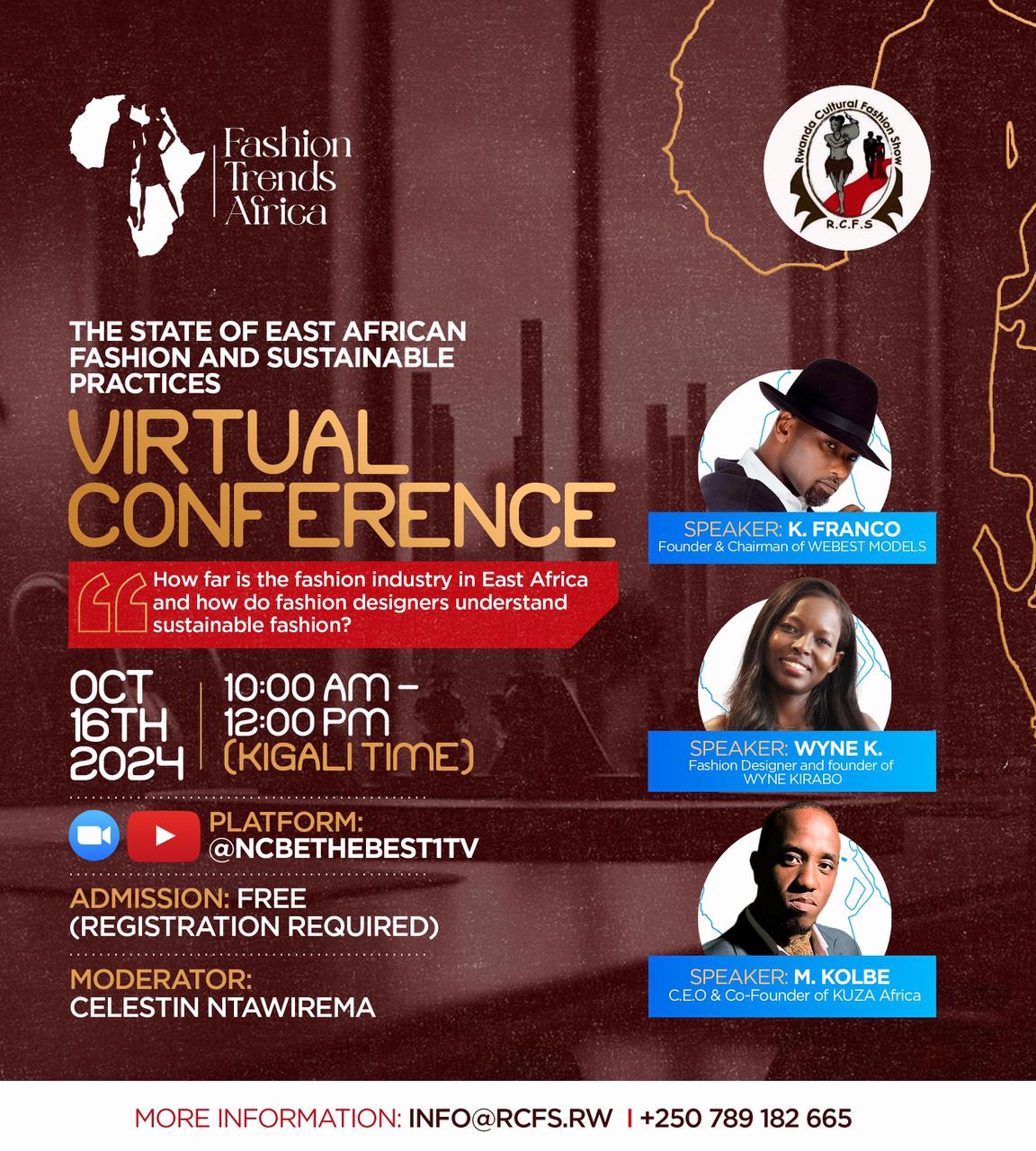



![In the photo from right is Moses Turahirwa Creative Designer of Moshions on the runway during the Inzozi Fashion Experience 2024, 14 September , in Italy [Photo Credit: KS1]](/media/k2/items/cache/4653e069ed7369840191e8bf38ab8dc9_Generic.jpg)
![In the photo from right is Moses Turahirwa Creative Designer of Moshions on the runway during the Inzozi Fashion Experience 2024, 14 September ,in Italy [Photo Credit: KS1]](/media/k2/items/cache/963c54073e784a324883122381877c85_Generic.jpg)
![In the photo, second from the right is Dr. Alice Ikuzwe, Deputy Principal in Charge of Academics and Training at RP-IPRC Kigali, and Mr. Maximilien Kolbe Uwayo Hategekimana, Chief Executive Officer of Kuza Africa Ltd after signing the MOU [Photo Credit: Kuza Africa]](/media/k2/items/cache/d26f2d3a8ff5583681ac68eec63fdc44_Generic.jpg)
![In the photo, second from the right is Dr. Alice Ikuzwe, Deputy Principal in Charge of Academics and Training at RP-IPRC Kigali, and Mr. Maximilien Kolbe Uwayo Hategekimana, Chief Executive Officer of Kuza Africa Ltd after signing the MOU [Photo Crediti: Kuza Africa]](/media/k2/items/cache/1519e954ae6bd629544356cae3e51766_Generic.jpg)
![[In photo; Collection made by Italian fashion designer DIDA, then a collection made by Ethiopian fashion designer Jesacudo, and collection made by Tanzanian fashion brand BK Brands]](/media/k2/items/cache/37e725efe26e0487bc83287a1c350936_Generic.jpg)
![[In photo; Collection made by Italian fashion designer DIDA, then a collection made by Ethiopian fashion designer Jesacudo, and collection made by Tanzanian fashion brand BK Brands]](/media/k2/items/cache/2d535442c2c0b0669d8f5a051ed00bcc_Generic.jpg)
![In the photo models: Denyse Mushikiwabo, Isheja Morella, Anifa Umufite and Jennifer Girukwishaka [Photo credit: IG Models]](/media/k2/items/cache/6cdb4ac6ccf86fc9922b1b1ecf5faa0d_Generic.jpg)
![In the photo models: Denyse Mushikiwabo, Isheja Morella, Anifa Umufite and Jennifer Girukwishaka [Photo credit: IG Models]](/media/k2/items/cache/3119c7be2ab58173062c39c6b8c72ed7_Generic.jpg)
![[In the photo; the first two collections were made by Matheo, then, a collection made by Umuheto Creative, and the last wedding dress was made by Tanga Designs]](/media/k2/items/cache/85217272b4e7187cce0880e98f060661_Generic.jpg)
![[In the photo; the first two collections were made by Matheo, then, a collection made by Umuheto Creative, and the last wedding dress was made by Tanga Designs]](/media/k2/items/cache/00c636e00bee0ba03b364841363f738b_Generic.jpg)
